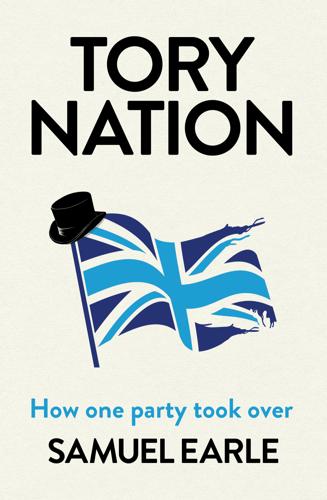
Tory Nation: The Dark Legacy of the World's Most Successful Political Party
by
Samuel Earle
Published 3 May 2023
James Baldwin, interviewed by Paul Gilroy, 1985 On Sunday 8 November 2015, more than 11 million people in the UK tuned in to watch the series finale of Downton Abbey, ITV’s hit drama about the eponymous estate, its upper-class inhabitants and their small army of servants. The story is set in the early 1900s, at a time of aristocratic decline and social instability. But amid all the change and uncertainty, Downton Abbey evokes a utopian, quintessentially English idyll: a world where people are polite, the rich recognise their responsibilities and the poor gratefully accept their lot in life. In one scene from Downton Abbey: The Movie (2019), the eldest of the Countess’ daughters, Lady Mary Crawley, ponders whether the time has come for the family to downsize.
…
Stately homes are a cornerstone of Britain’s tourism industry, frequented by citizens and tourists alike, and represent the dream location for most couples planning a wedding. Besides Downton Abbey, which at its peak was watched by over a seventh of the total population, the nation’s other favourite television shows typically offer pleasing escapes into quaint hierarchies: The Crown, Poldark, Bridgerton, the endless adaptations of Charles Dickens and Jane Austen, and so on. In 2019 alone, there were more than thirty new series of period dramas, either produced or set in the UK.3 This vision of Britain is also one of our finest exports. Downton Abbey gained an audience of 120 million worldwide, making it the most successful British television show of all time.4 But even Downton Abbey’s success pales next to the popularity of Britain’s most beloved period drama, one that is confoundingly contemporary: the British monarchy.
…
Downton Abbey gained an audience of 120 million worldwide, making it the most successful British television show of all time.4 But even Downton Abbey’s success pales next to the popularity of Britain’s most beloved period drama, one that is confoundingly contemporary: the British monarchy. In 2011, over a third of the British population – about 24 million people – tuned in to watch the marriage of Britain’s future King and Queen, Prince William and Kate Middleton. As with Downton Abbey, support for the royal family – described by pollsters in 2011 as ‘probably the most stable trend we have ever measured’5 – offers another clue to how the Conservative cause can be at once elitist yet populist, quaint yet disarmingly modern.
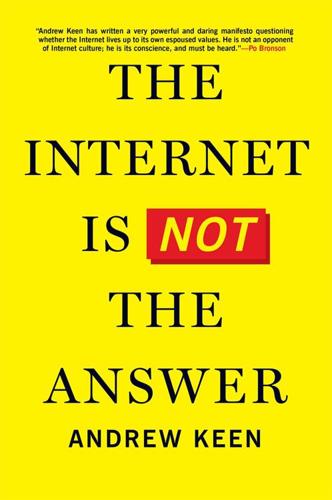
The Internet Is Not the Answer
by
Andrew Keen
Published 5 Jan 2015
But there is one important difference between Downton Abbey and Silicon Valley, Freeland reminds us. “With their lavish lifestyles, the aristocrats of ‘Downton Abbey’ may seem like a 20th-century version of our own plutocrats, but they are not,” she says, because today’s “aristocracy of talent” have “all the perks and few of the traditional values” of the old Downton Abbey aristocracy.”66 And so, in the Silicon Valley of 2014, there are all the social and economic hierarchies of 1914 without any of what Freeland calls “the social constraints” of the old aristocracy. We have Downton Abbey reinvented as the Battery.
…
No, not the England of Winston Churchill’s exclusive gentleman’s clubs or Downton Abbey’s bucolic aristocracy and their unnaturally cheerful servants. Rather than a nostalgic costume drama, my England was London. And my London was Soho—the square-mile district in London’s West End that is not only the historic center of the city’s fashion business, but also the heart of its independent movie and music industries. As a kid growing up in the swinging London of the late sixties and seventies, I got to see a much more entertaining show in Soho than anything a Downton Abbey–style TV drama could muster. My family was in the rag trade and owned a store on the edge of Soho, so I had the good fortune to spend much of my adolescence wandering around its abundant clubs, cafés, and records stores, and its other, more adult attractions.
…
Chrystia Freeland, the author of Plutocrats64 and an authority on the rise of the new global superrich and the fall of everyone else, has a compelling explanation of why fantasists like Fulk find nostalgic dramas like Downton Abbey so seductive. It’s a contemporaneous show, she argues, because there is a “profound similarity between the vast economic, social, and political changes that drive the action in ‘Downton Abbey’ and our own time.”65 In our digital age of perpetual creative destruction, Freeland says, technology companies like Google, Uber, and Facebook are, on the one hand, enabling the vast personal fortunes of twenty-first-century Internet plutocrats like Mark Zuckerberg and Travis Kalanick; and, on the other, wrecking the lives of a woman like Pam Wetherington, the nonunionized worker at Amazon’s Kentucky warehouse who was fired after suffering stress fractures in both feet after walking for miles on the warehouse’s concrete floor.
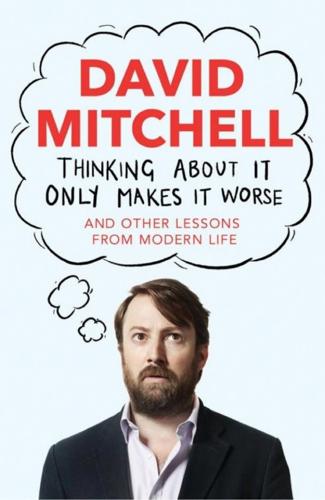
Thinking About It Only Makes It Worse: And Other Lessons From Modern Life
by
David Mitchell
Published 4 Nov 2014
Utterly inept with regard to these elements of television production which I previously considered vital to a drama’s success – or certainly its enjoyability. Yet I undoubtedly do enjoy Downton Abbey, and not “because it’s so terrible”. I unironically enjoy it despite how bad it is. Is that what they call cognitive dissonance? Or is it just really liking footage of a stately home? So Laura Carmichael deserves much credit for turning the implausible words and actions in the script into a believable character. Lady Edith is the second daughter of the Earl of Grantham, who owns Downton Abbey (which is where Downton Abbey is set – it is not a real abbey, so he is not an abbot), and she has a very rough time.
…
* Laura Carmichael deserves to be congratulated. Few actors have achieved her kind of success. Her portrayal of Lady Edith in Downton Abbey is so effective, and so affecting, that the character has started to become real. Not just to seem real to people watching television, but actually to be. The fact that this became clear on the occasion of her West End debut playing another role in no way diminishes the achievement. You may not be familiar with Lady Edith, or with Downton Abbey at all. Even if you are, you may pretend not to be. It’s not a particularly respectable show to admit to watching. Or is that nonsense?
…
DAVID MITCHELL THINKING ABOUT IT ONLY MAKES IT WORSE AND OTHER LESSONS FROM MODERN LIFE To Mum and Dad CONTENTS Title Page Dedication Introduction 1 Taking Offence, Demanding Apologies, Making People Do Things and Stopping People Doing Things – A Guide to Modern Hobbies With less money around, people have to make their own entertainment these days, which has been a boon for those who enjoy the sensation of righteous anger. 2 Just Turn On Your Television Set and Stay In and Do Something More Boring Instead Go on! Enjoy it while it lasts! After all, websites are only really entertaining when you’re supposed to be working. And just look at the wonders of the old media’s Jurassic ecosystem: from daytime TV to Downton Abbey, from Harry Potter to Homer Simpson, from Lewis to Endeavour, there’s never been more to doze off in front of. 3 Don’t Expect Too Much of Robots To my mind, corporations are like giant robots which have been programmed to make money at all costs. So they’re quite dangerous to live around, but at the same time there’s no more point in getting cross with them than there is in blaming a satnav for never changing the oil. 4 Saying You Want to Make a Difference Makes No Difference Politicians will go to unreasonable lengths in order to seem reasonable.
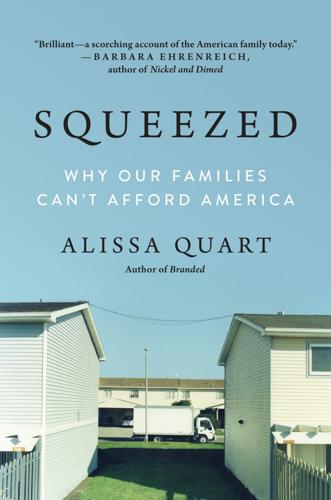
Squeezed: Why Our Families Can't Afford America
by
Alissa Quart
Published 25 Jun 2018
What was popular back then was the 1 percent TV heritage drama Downton Abbey, which featured the Crawleys, an aristocratic British family in the earlier part of the twentieth century whose dramatic entrances in frock coats and devoré dresses distracted me from my physical discomfort and scattered future. The sting of monetary deprivation drew me to these overwrought spectacles of early-twentieth-century British aristocratic life: I could almost smell their byzantine meals and the nursery where future regents were looked after by governesses while their parents partied and dined. (And I was not alone: the final episode of Downton Abbey drew 9.6 million American viewers.)
…
(And I was not alone: the final episode of Downton Abbey drew 9.6 million American viewers.) On Downton Abbey, the “downstairs” servant class is unruly and often downright evil: in the first season, I watched, while pregnant, a male servant and a lady’s maid conspire to harm their fellow servants and that same maid plot to have her pregnant mistress trip on a bar of soap so that she would lose the baby. In contrast, the aristocrats are benign. Downton Abbey turned the elaborately set tables of yesteryear’s Upstairs, Downstairs, a PBS hit and British import that ran in the 1970s and was fonder of the inhabitants of “downstairs”—the bluff, friendly maids and cooks—than television is today.
…
“Those who are nitpicking this probably suffer from Rich Envy,” wrote one Billions citizen reviewer on Amazon about any commenters who might cast aspersions on that show and its central character, a twisted billionaire. “Awesome show! You feel like you get a ‘real’ glimpse into an uber-intelligent (though morally flawed) super-rich hedge funder,” wrote another. As one citizen reviewer of Downton Abbey with the fitting handle workingmom29609 put it, “It’s wonderful to escape to the life of the landed rich.” I like to watch 1 percent shows because I want to watch privileged people behaving badly. Yet I desperately want to see the ultra-rich find their comeuppance too. That comeuppance never comes.
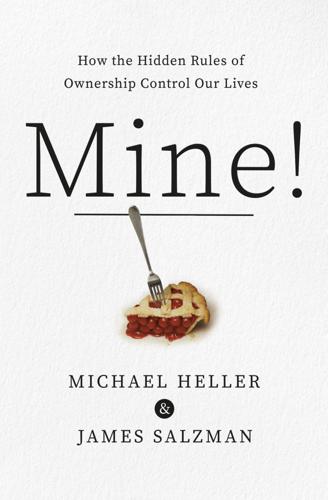
Mine!: How the Hidden Rules of Ownership Control Our Lives
by
Michael A. Heller
and
James Salzman
Published 2 Mar 2021
Historically, aristocrats like Robert could not vary this outcome by writing a will. Because Robert has three daughters but no son, upon his death Downton Abbey will go automatically to Matthew Crawley, a distant third cousin and closest male heir who is (horror!) a middle-class lawyer in Manchester. Even worse, Lady Grantham (Robert’s wealthy American-born wife, Cora) has been caught up in the family ownership dilemma. The large dowry she brought from New York has become inextricably part of the Downton Abbey estate under old “coverture” rules (noted in Chapter 5). When Robert dies, Cora’s money, necessary for the estate’s upkeep, goes to Matthew as well.
…
Wealthy “owners” were merely their generation’s guardian of family estates, obligated to transmit their ancestors’ landholdings down to descendants. Though this may be hard to imagine today, in an important sense, the family was the owner, not any individual member. Think about the popular TV series Downton Abbey. Set in England just before World War I, the story centers on Robert Crawley, Earl of Grantham, whose landed estate supports his family’s refined lifestyle and the dependent economy of the local tenant farmers and villagers. Life is good as lord of the manor, but Robert faces a problem. Under England’s family ownership rules, his hands are tied.
…
A million Irish people starved to death; an exodus of survivors came to America. England’s primogeniture rules also punished women—they were married off. And it left out younger brothers—they were shipped away to the military and the ministry. The rules even affected Julian Fellowes, the creator of Downton Abbey. Fellowes’s wife, Emma Kitchener, could not inherit her uncle Earl Kitchener’s title. Because the earl had no male descendants, the title would die with him. “I find it ridiculous,” said Fellowes, “that a perfectly sentient adult woman has no rights of inheritance whatsoever when it comes to a hereditary title—I think it’s outrageous, actually.”
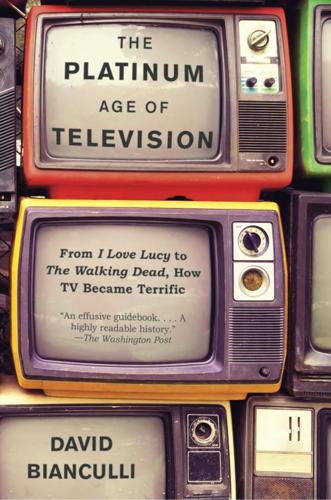
The Platinum Age of Television: From I Love Lucy to the Walking Dead, How TV Became Terrific
by
David Bianculli
Published 15 Nov 2016
PBS also imported The Lost Prince, an outstanding period drama written and directed by Stephen Poliakoff, in 2004; Bleak House, starring Gillian Anderson as Lady Dedlock in a flawless version of the Charles Dickens novel, in 2005; and, beginning in 2011, Downton Abbey, the lavish miniseries that brought the whole genre full circle, back to the earliest days of The Forsyte Saga and Upstairs, Downstairs. DOWNTON ABBEY 2010–15, ITV (U.K.); 2011–16, PBS. Creator and writer: Julian Fellowes. Stars: Hugh Bonneville, Elizabeth McGovern, Maggie Smith, Michelle Dockery, Jim Carter, Brendan Coyle, Joanne Froggatt, Dan Stevens, Lily James, Lesley Nicol, Rob James-Collier, Sophie McShera.
…
That film was written by Julian Fellowes and starred not only Michael Gambon of The Singing Detective but Maggie Smith, who would act out the words and actions of Fellowes again, nine years later, when she was featured in his newest TV costume drama, Downton Abbey. By the time Downton came to television, the once-ubiquitous period dramas were all but a thing of the past, in more ways than one. But Downton Abbey, whose narrative began in 1912 with news of the sinking of the Titanic and ended six TV seasons later with the arrival of New Year’s Day 1926, was an instant, constant, and talked-about hit, on both sides of the Atlantic.
…
Brooks Profile Garry Shandling 10 Splitcoms The Andy Griffith Show The Dick Van Dyke Show The Bob Newhart Show Seinfeld Louie Profile Carl Reiner Profile Bob Newhart Profile Larry David Profile Louis C.K. 11 Single Working Women Sitcoms The Mary Tyler Moore Show The Days and Nights of Molly Dodd Murphy Brown Sex and the City Girls Profile Judd Apatow 12 Sci-Fi/Fantasy/Horror The Twilight Zone Star Trek The X-Files Buffy the Vampire Slayer The Walking Dead 13 Westerns Gunsmoke Maverick Rawhide Lonesome Dove Deadwood Profile David Milch 14 Spies The Avengers Mission: Impossible Alias Homeland The Americans 15 General Drama Twin Peaks The West Wing Six Feet Under The Wire Mad Men Profile David Simon Profile Aaron Sorkin Profile Matthew Weiner 16 War Combat! M*A*S*H China Beach Band of Brothers Generation Kill 17 Miniseries Roots The Singing Detective Lonesome Dove The Civil War Downton Abbey Profile Ken Burns 18 Topical Comedy That Was the Week That Was The Daily Show with Jon Stewart The Colbert Report Last Week Tonight with John Oliver The Nightly Show with Larry Wilmore Profile Larry Wilmore Conclusion Acknowledgments Bibliography INTRODUCTION If you’re going to look at the history and evolution of television—quality TV in particular—there may be no better place to start than Mel Brooks.
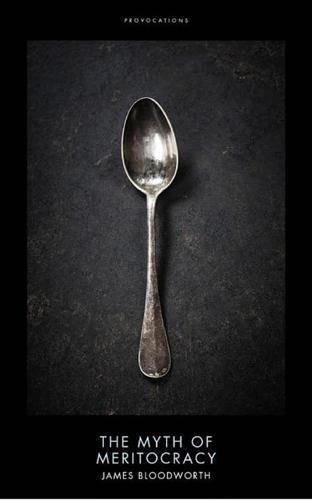
The Myth of Meritocracy: Why Working-Class Kids Still Get Working-Class Jobs (Provocations Series)
by
James Bloodworth
Published 18 May 2016
From this apparently unimpeachable set of assumptions, several things are commonly deduced: social mobility has stalled or is in reverse; there was a higher level of social mobility after the Second World War; and the way to reverse this trend is to improve things like education for poorer pupils. It is mostly the left that makes the broader argument about social mobility going into reverse, though some on the right have hit upon the same point too. So Frances O’Grady, the General Secretary of the TUC, has described Britain as a ‘Downton Abbey-style society’ in which social mobility ‘has hit reverse’.23 The former New Labour minister Alan Milburn, chair of the government’s Child Poverty and Social Mobility Commission, similarly argued in 2009 that certain professions were a ‘closed shop’ where ‘birth, not worth, has become more and more a determinant of people’s life chances’.
…
According to the OECD,36 Britain has some of the lowest rates of social mobility in the developed world. In the UK, a person’s earnings are more likely to reflect their father’s than in any other country. Whether this is a feature of the last thirty years or the last 300, it is no less shameful. 23 ‘Britain “becoming like Downton Abbey” says TUC leader’, Justin Parkinson, bbc.co.uk, 8 September 2014. 24 ‘Unleashing Aspiration: The Final Report of the Panel on Fair Access to the Professions’, 21 July 2009. 25 ‘“Truly shocking” that the private-school educated and affluent middle class still run Britain, says Sir John Major’, Christopher Hope, Daily Telegraph, 10 November 2013. 26 ‘Intergenerational Mobility in Europe and North America’, Jo Blanden, Paul Gregg and Stephen Machin, Centre for Economic Performance, LSE, April 2005. 27 ‘Has social mobility in Britain decreased?
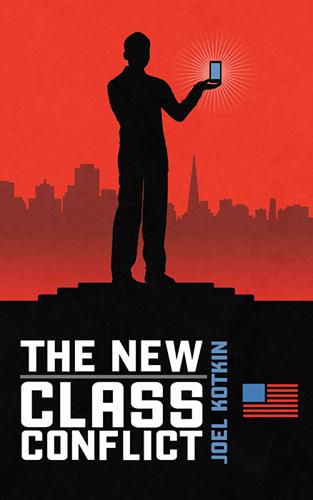
The New Class Conflict
by
Joel Kotkin
Published 31 Aug 2014
Ray Fisman “The New Artisan Economy,” Slate, July 16, 2012, http://www.slate.com/articles/business/the_dismal_science/2012/07/unemployment_manufacturing_and_construction_jobs_aren_t_coming_back_americans_need_new_skills_.html; Walter Russell Mead et al., “Is Downton Abbey the Future of the U.S. Economy?” American Interest, November 9, 2013, http://www.the-american-interest.com/blog/2013/11/09/is-downton-abbey-the-future-of-the-us-economy. 56. Pew Charitable Trusts, ““Pursuing the American Dream,” pp. 7–8; Peter Francese, “U.S. Consumer—Like No Other On the Planet,” Advertising Age, January 2, 2006; Christina Passariello, Rachel Dodes, and Stacy Meichtry, “Luxury Goods Weathering Economic Woes in U.S.,” Wall Street Journal, July 26, 2008. 57.
…
Since the 1970s, concerns about environmental constraints, noted Christopher Lasch, undermined the notion for the rising “new class” that their definition of the “good life” could be “made universally available.”54 Thus ends the romance between upward mobility and the progressive idea. Rather than be helped in the new economic order, the once independent Yeoman class is expected to accept its new role as home care providers, hairdressers, dog walkers, and toenail painters for the “innovative class.” Walter Russell Mead aptly describes this perspective as a “Downton Abbey vision of the American future.”55 If left unchecked, this trend will change not only our politics but also our consumer culture. In an environment where wealth is concentrated, companies focus on the affluent minority, as opposed to the middle-class mass, which has increasingly limited purchasing power.
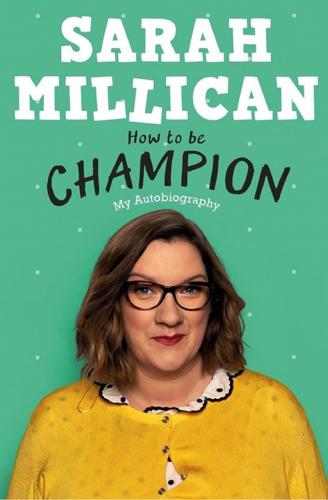
How to Be Champion: My Autobiography
by
Sarah Millican
Published 16 Apr 2018
I have a big working-class chip on my shoulder. The first time I bought a first-class train ticket it was by accident, and when the conductor came along to where I was sitting in standard class he said, ‘You should be along there,’ pointing to the first-class carriage. I said, ‘Oh no, I don’t think so.’ I thought everyone would look like Downton Abbey and I was putting my make-up on out of a sandwich bag. He pointed to the ticket and said, ‘It says first class, look.’ I said, ‘Oh no, I don’t think I’d feel comfortable in first class,’ to which he replied, ‘Oh no, there’s plenty of your sort down there.’ Cheeky fucker. I’m quite dull. I had a hash cake in Amsterdam and fell asleep complaining the cake was rubbish.
…
• Wear lens-free glasses as the brilliantly impressive photographer couldn’t take photos of me in my glasses because of the reflection. I’ve had my photo taken a million times and this has only once come up. My dad can take a photo of me with an iPhone and you can’t see the reflection. • Stand with my hands on my hips (classic Millican pose). • Dress up like Downton Abbey holding a pug in a bonnet (my idea). • Stare wistfully out of the window on a train – for Who Do You Think You Are? • Eat a muffin (my idea). • Hold an axe over a child’s head (my idea). • Sit in front of a squirrel on a plate (my idea). • Laugh in a fake-fur coat outside (I did it inside)
…
His show was so good that I cried when he won, which my agent took as losing sadness and patted me on the arm. (Geraint Lewis/Edinburgh Comedy Awards) The photo shoot for my second tour, ‘Thoroughly Modern Millican’, was one of my favourites. I was very clear about what I wanted. ‘Can I look like I’m in Downton Abbey? But be holding a dog in a bonnet that looks nonplussed?’ FOR NO REASON AT ALL. (Andy Hollingworth) The first time I ever thought I could look glamorous. Turns out I rock a 1950s headscarf. This was for my ‘Typical Woman’ Fringe show, and the poster was inspired by Rosie the Riveter and won some award for best poster.
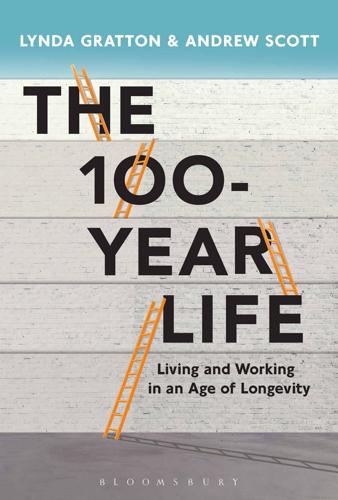
The 100-Year Life: Living and Working in an Age of Longevity
by
Lynda Gratton
and
Andrew Scott
Published 1 Jun 2016
But if Keynes was right and people are working less, why do so many feel so time-poor? The Downton Abbey effect One part of the explanation is that while on average the hours of work have declined, not everyone is working fewer hours. Over the last century there has been an interesting switch. A century ago, the poor and the low-skilled worked longer hours. It was they who toiled in the factories created by the Industrial Revolution. In contrast, the rich and the highly skilled worked fewer hours. In its most extreme form this led to Veblen’s notion of the leisure class,3 so aptly portrayed in the popular TV series Downton Abbey. The switch between the poor and unskilled and the rich and skilled was completed by around the 1990s.
…
Index The letter f following an entry indicates a figure 3.0 scenarios here–here, here, here, here 3.5 scenarios here–here, here, here 4.0 scenarios here–here, here–here, here, here 5.0 scenarios here–here, here, here, here, here, here–here Acorns here activities of daily living (ADL) here adolescence here–here, here adult equivalence scales here age cognition and here–here corporations and here explorers and here–here government policy and here independent producers and here life stages and here–here, here–here portfolios and here predictability of here segregation and here–here, here–here, here, here–here age process algorithms here, here ageing process here, here ageism here, here agency here, here, here finance and here–here agriculture here–here Amazon here anxiety here appearance here Apple iPhone here reputation here Archer, Margaret here Artificial Intelligence (AI) here, here, here, here education and here human skills and here medical diagnoses and here–here, here skills and knowledge and here–here Asia here assets here, here see also intangible assets; tangible assets; transformational assets assortative mating here–here, here Astor, Brooke here Autor, David here–here, here Baby Boomers here–here beauty here Becker, Gary: ‘Treatise on the Family’ here, here–here, here behavioural nudges here Benartzi, Shlomo here benefits here–here see also welfare Bennis, Warren here birth rates, decline in here–here, here brain, the here–here, here–here cognition here Braithwaite, Valerie here Brontë, Charlotte: Jane Eyre here Buffett, Warren here–here Calico (California Life Company) here Calment, Jeanne here careers breaks and here changes and here–here dual careers here, here, here cell aging here centenarians here, here–here change here–here catalysts for here–here corporations and here–here, here education and here–here government policy and here–here, here identity and here–here inequalities and here–here mastery and here–here planning and experimentation and here–here rate of here–here Cherlin, Andrew here chess here children here, here–here, here Christensen, Clayton here Cloud Robotics here cohort estimate of life expectancy here, here, here companies here, here–here, here–here Amazon here Apple here–here change and here–here, here creative clusters here–here economies of scale and here–here Facebook here flexibility here–here, here–here reputation and here–here research and here small business ecosystems here–here technology and here–here Twitter here value creation here–here WhatsApp here compression of morbidity here–here computing power here–here, here–here see also Moore’s Law connectivity here–here consumerism here, here consumption complementarities here–here consumption levels here, here continuums here corporations here–here, here–here see also companies creative clusters here–here independent producers and here–here creativity here cross-age friendships here crucible experiences here–here Deep Learning here dementia here depreciation here developing countries life expectancy and here–here, here state pensions and here Dickens, Charles: Old Curiosity Shop, The here diet here Dimson, Elroy here disabilities here discounting here discretionary time here diverse networks here, here–here Doctorow, Corey: Makers, The here Downton Abbey effect, the here–here Doyle, Arthur Conan here driverless cars here, here dual career households here, here, here Dweck, Carol here–here dynamic/diverse networks here, here–here Easterlin’s Paradox here economy, the here–here agriculture and here–here gig economy here job creation and here–here leisure industry and here service sector and here sharing economy here, here stability and here education here, here–here, here–here see also mastery experiential learning here–here, here, here human skills and judgement and here ideas and creativity and here institutions here–here learning methods here mental flexibility and agility and here–here multi-stage life and here specialization here–here, here, here technology and here, here, here training here efficacy here, here, here–here elasticity here–here emerging markets life expectancy and here state pensions and here emotional spillover here employers here–here, here employment see also companies; employment changes age and here, here–here, here–here changes and here, here, here–here, here–here city migration and here–here creation here–here demographics and here, here–here diverse networks and here–here elasticity and here–here environmental concerns and here–here, here family structures and here–here, here, here–here, here, here, here–here flexibility and here–here, here, here–here, here–here, here–here, here hollowing out of work here–here, here, here home and here job classification here–here knowledge and skills and here levels here, here matches here–here mobility here multi-stage life and here office-based here paid leave here participation rates here–here, here pay here–here, here psychological contract here satisfaction here–here self-employment here–here specialization and here–here statistics here status and here supply and here–here technology and here, here–here, here–here, here, here, here–here, here unique human skills here–here, here vacancies here–here women and here–here working hours here–here, here working week here–here employment changes here, here, here–here companies and here–here industry sectors and here–here, here entrepreneurship here–here see also independent producers equity release schemes here experiential learning here–here, here, here experimentation here, here–here, here–here explorers here–here, here–here adventurers here age and here–here assets and here crucible experiences and here–here options and here–here searchers here, here exponential discounting here exponential growth here–here Facebook here families here, here, here–here, here children here, here–here, here dual career households here, here, here marriage here–here work and here, here finance here, here–here see also pensions age process algorithms here, here agency and here–here automation and here–here costs here–here efficacy and here–here equity release schemes here flexibility here governments and here–here, here, here–here health and here housing and here–here hyperbolic discounting here–here inheritances here–here investment here, here–here, here–here, here, here old age and here–here pay here–here, here pension replacement rates here–here, here, here–here portfolios here–here psychology and here–here retirement and here–here fitness and health here–here see also health Fleming, Ian here flexibility here, here–here, here, here–here, here–here, here corporations and here–here government policy and here–here working patterns and here flexibility stigma here, here Ford, Henry here Foxconn here Frey, Carl here Friedman, Stewart here–here, here Fries, James here, here Future of Work Consortium here future selves here–here future selves case studies Jane here–here, here–here Jimmy here–here, here galumphing here–here gender here, here see also women inequality here–here, here–here, here, here, here specialization of labour here, here–here, here, here, here–here Generation Y here generational attitudes here gerontology here Giddens, Anthony here, here gig economy here–here globalization here Goldin, Claudia here, here Google here governments here, here–here, here inequalities and here–here pensions and here–here rate of change and here–here Gratton, Lynda here Shift, The here growth mindset here–here Groysberg, Boris here Haffenden, Margaret here Hagestad, Gunhild here–here, here Harvard Grant Study here health here, here–here brain, the here–here chronic diseases here–here, here compression of morbidity here–here dementia here diseases of old age here–here finance and here improvements in here–here inequality here, here–here infectious diseases here public health here stress here–here healthy life expectancy here heterogeneity here hollowing out of work here–here, here, here home, work and here household here–here see also home economies of scale and here–here relationships here, here–here, here, here housing here–here imputed rent here, here ownership here HR policies here–here human skills here–here, here, here, here hyperbolic discounting here–here Ibarra, Herminia here identity here–here, here, here–here, here–here see also self-control; self-knowledge improvisation here–here imputed rent here, here income see also welfare distribution here growth and here inequalities here–here, here–here skills and knowledge and here–here income effect here–here independent producers here–here, here–here assets and here case study here–here creative clusters and here–here learning and here–here prototyping here–here reputation and curating and here–here India here–here Individual, the here Industrial Revolution, the here–here, here, here, here inequalities here–here gender and here–here, here–here, here, here, here government policy and here–here health here, here–here income here–here, here–here life expectancy and here–here, here–here, here infant mortality here intangible assets here–here, here–here, here case studies here–here, here–here, here corporations and here–here endowed individual characteristics here, here independent producers and here marriage and here productive assets see productive assets time and here transformational assets see transformational assets transitions and here–here vitality assets see vitality assets International Labour Organization (ILO) here ‘Women and the Future of Work’ here investment here, here–here, here–here, here Japan centenarians here–here life expectancy here, here–here,here–here, here pensions and here population decline and here job classification here–here job creation here–here job satisfaction here–here juvenescence here, here–here, here Kahneman, Daniel here Kegan, Robert here Keynes, John Maynard: Economic Possibilities of Our Grandchildren here knowledge see skills and knowledge Kurzweil, Ray here labour market see employment Lampedusa, Giuseppe : Leopard, The here law (occupation) here–here leadership here learning methods here leisure class here leisure industry here, here, here–here leisure time here, here, here–here, here–here, here–here Keynes, John Maynard and here life expectancy here–here, here see also long life best practice here, here calculating here–here, here chronic diseases and here–here cohort estimate of here, here, here developing countries and here–here diseases of old age and here–here government plans and here healthy life expectancy here historical here, here, here increase in here–here, here India and here–here inequalities in here–here, here–here, here infant mortality and here Japan and here, here–here, here–here, here limit to here–here period life expectancy measure here, here–here public health innovations and here South Korea here US and here–here Western Europe here life stages here–here, here–here age and here–here experiential learning and here explorers and here–here, here–here independent producers and here–here, here–here juvenescence and here, here–here multi-stage model here, here–here, here, here, here–here, here–here, here new stages here, here see also life stages case studies portfolios and here–here, here–here three-stage model here, here–here, here–here, here–here, here–here, here–here, here–here transitions and here life stages case studies diversity and here Jane here–here Jimmy here–here, here lifetime allowances here–here, here, here liminality here Linde, Charlotte here lockstep of action here–here, here London here–here London Business School here long life see also life expectancy as a curse here, here as a gift here, here Luddites, the here machine learning here marriage here–here Marsh, Paul here Marshall, Anthony here mastery here–here matching here–here Millenials here Mirvas, Philip here Modigliani, Franco here MOOCs (Massive Open Online Courses) here, here Moore’s Law here–here, here Moravec’s Paradox here, here morbidity here–here compression of here–here Morrissey, Francis here mortality here mortality risk here multiple selves here–here National Commission on Technology, Automation, and Economic Progress here neighbourhoods here neoplasticity here neoteny here, here new experiences here occupations here–here old age dependency ration here–here, here Ondine, curse of here options here, here–here Osborne, Michael here paid leave here Parfit, Derek here participation rates here–here, here peers here–here pension case studies Jack here, here–here, here, here Jane here, here, here–here, here, here, here, here, here–here Jimmy here–here, here, here–here, here, here, here–here, here three-stage life model here–here, here–here, here–here pension replacement rate here–here, here, here–here pensions here, here–here, here see also pension case studies amount required here–here funded schemes here goals and here government policy and here–here investment and here, here occupational pensions here–here Pay As You Go schemes here–here, here, here pension replacement rate here–here, here, here–here reform and here state pensions here–here, here period life expectancy measure here, here–here personal brands here pharmacy (occupation) here planning here plasticity here–here play here–here politics, engagement with here Polyani’s Paradox here–here, here population here–here, here–here portfolios (financial) here–here portfolios (life stage) here–here, here–here switching costs here transitions and here–here posse here–here, here possible selves here, here–here possible selves case studies Jane here–here Jimmy here–here, here Preston, Samuel here production complementarities here, here–here, here productive assets here–here, here case studies here, here, here–here, here, here, here, here–here, here, here marriage and here transitions and here professional social capital here–here prototyping here–here psychology here, here–here see also self-control age process algorithms here, here automation and here–here behavioural nudges here saving and here–here pure relationships here, here pyramid schemes here re-creation and recreation here–here, here–here recruitment here reflexive project, the here regenerative community here, here, here Relation P here relationships here–here, here, here children and here–here divorce and here–here, here dual career households here families and here–here, here–here friendships here, here–here household here, here–here, here, here marriage and here–here, here–here matches and here–here multi-generational living here–here, here options and here–here pure relationship here switching roles here, here, here, here–here reputation here–here, here–here, here–here retirees here–here retirement see also pensions age of here, here, here, here, here–here, here consumption levels and here corporations and here, here government policy and here–here stimulation in here, here risk here risk pooling here robotics here, here, here, here see also Artificial Intelligence role models here routine here routine activities here routine-busting here routine tasks here–here Rule of here here Sabbath, the here sabbaticals here–here Save More Tomorrow (SMarT plan) here–here Scharmer, Otto here second half of the chessboard here–here segregation of the ages here–here, here–here, here, here–here self-control here–here, here–here age process algorithms here, here automation and here behavioural nudges here self-employment here–here self-knowledge here–here, here finance and here–here service sector here sexuality here–here Shakespeare, William King Lear here sharing economy here–here, here, here short-termism here–here skills and knowledge here, here–here, here see also human skills earning potential and here professional social capital and here–here technology and here–here valuable here–here Slim, Carlos here smart cities here–here independent producers and here–here social media here, here–here society here spare time here see also leisure time standardized practices here–here Staunton, Mike here strategic bequest motive, the here–here substitution effect here switching here, here, here, here–here tangible assets here–here, here, here, here, here see also housing; pensions case studies here, here, here, here, here, here transitions and here taxation here, here–here Teachers Insurance and Annuity Assurance scheme here technology here, here see also Artificial Intelligence computing power here–here, here–here see also Moore’s Law driverless cars here–here, here education and here, here, here employment and here, here–here, here–here, here, here, here–here, here human skills and here, here innovation and here matching and here relationships and here teenagers here–here, here–here, here, here Thaler, Richard here thick market effects here–here Thomas, R. here time here, here–here see also sabbaticals discretionary time here flexibility and here–here, here Industrial Revolution, the here–here, here–here, here intangible assets and here leisure and here, here, here–here, here–here, here–here restructuring here, here spare time here working hours here–here, here, here–here working hours paradox here–here, here working week, the here–here, here time poor here–here trade unions here transformational assets here, here–here, here–here, here, here, here case studies here–here, here–here, here–here, here–here, here, here, here, here crucible experiences and here corporations and here transitions here, here–here, here–here, here corporations and here financing here–here government policy and here, here nature of here–here portfolios and here–here re-creating here recharging here–here tribal rituals here Twitter here Uhlenberg, Peter here–here, here UK, occupational pension schemes and here–here Unilever here universities here US here–here compression of morbidity and here occupational pension schemes and here Valliant, George here value creation here vitality assets here, here–here, here case studies here, here–here, here, here, here–here, here, here, here, here transitions and here–here website here week, the here–here weekend, the here, here weight loss here welfare here–here see also benefits Wharton School of the University of Pennsylvania here–here, here WhatsApp here Wolfran, Hans-Joachim here women see also gender children and here–here relationships and here, here, here work and here–here Women and Love here work see employment working hours here–here, here, here–here working week, the here–here, here Yahoos here–here youthfulness here–here Bloomsbury Information An imprint of Bloomsbury Publishing Plc 50 Bedford Square 1385 Broadway London New York WC1B 3DP NY 10018 UK USA www.bloomsbury.com BLOOMSBURY and the Diana logo are trademarks of Bloomsbury Publishing Plc First published 2016 © Lynda Gratton and Andrew Scott, 2016 Lynda Gratton and Andrew Scott have asserted their right under the Copyright, Designs and Patents Act, 1988, to be identified as Author of this work.
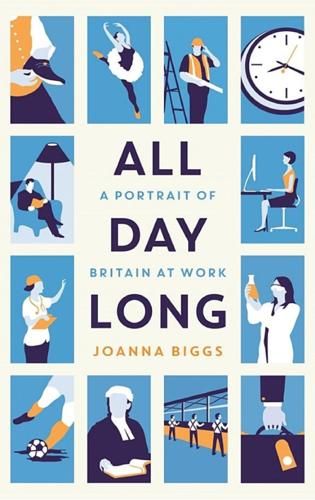
All Day Long: A Portrait of Britain at Work
by
Joanna Biggs
Published 8 Apr 2015
He wouldn’t necessarily want to see the government, which is ‘stuffed for money like everyone else’, change: ‘To be fair, Tony Blair might have bankrupted us but he was certainly no enemy of people like me in the way that Miliband might be.’ Almost exactly three years after the run on Northern Rock, Downton Abbey, a TV series about an English country estate in the early twentieth century, aired on ITV in September 2010. The soothing Sunday evening soap opera made the country estate into a metaphor for the nation: the indebted Earl of Grantham must modernise; the kitchen maid must upskill; the rebellious daughter who crosses class lines must die of puerperal fever.
…
The soothing Sunday evening soap opera made the country estate into a metaphor for the nation: the indebted Earl of Grantham must modernise; the kitchen maid must upskill; the rebellious daughter who crosses class lines must die of puerperal fever. For Lord Somerleyton, with his belief in the traditional class structures with layers high and low, the get-stuck-in values of his parents’ time have ‘been washed away, pretty much’, but for the TUC, the Bullingdon Club elite is bringing a Downton Abbey-style society back to twenty-first-century Britain. If the nation is a family, and the family a nation, where does that leave women? Lord Somerleyton didn’t know until he was 18 that his father would endow the estate according to primogeniture. Why would he know? He has four older sisters. ENTERTAINING dancer footballer giggle doctor Nathalie Harrison, 29, dancer, Covent Garden In the £13 seats of the Royal Opera House in Covent Garden, rules no longer apply.
…
I’ve taken statistics about Lowestoft from ‘England’s Seaside Towns: A “benchmarking” study’ from November 2008 by Christina Beatty, Steve Fothergill and Ian Wilson at Sheffield Hallam University for the Department for Communities and Local Government, as well as from reports in the Lowestoft Journal, and Waveney Health Profile 2012, compiled with NHS data and English Public Health Observatories. Frances O’Grady’s comments about a ‘Downton Abbey-style society’ were reported by the BBC in an article by Justin Parkinson of 8 September 2014. Entertaining The Royal Ballet 2013–14 season was announced on its website, where you’ll also find figures on how both resident companies are funded in the online version of the Royal Opera House’s annual review.
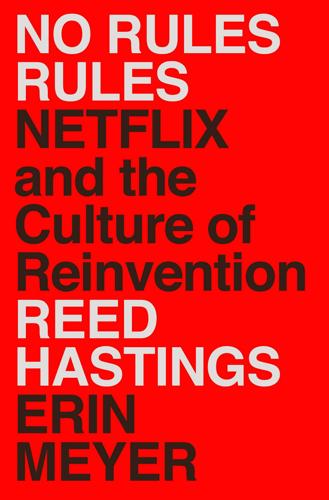
No Rules Rules: Netflix and the Culture of Reinvention
by
Reed Hastings
and
Erin Meyer
Published 7 Sep 2020
If you have a responsible child, option 2 may sound like the obvious answer. Who wants to be an overbearing parent and why would you not want a teenager to assume responsibility for his own safety? But in many situations the choice is not so clear-cut. Consider this scenario: You are the matriarch of a modern-day Downton Abbey (aristocratic family with snooty accents, loads of drama, and lots of money). Your adult children are coming to your house for a month of holidays and you have hired someone to cook dinner. Your family is complicated when it comes to food. One person is diabetic, another is a vegetarian, and a third is on a low-carbohydrate diet.
…
Loose coupling works only if there is a clear, shared context between the boss and the team. That alignment of context drives employees to make decisions that support the mission and strategy of the overall organization. This is why the mantra at Netflix is HIGHLY ALIGNED, LOOSELY COUPLED To understand what this involves, let’s return to Downton Abbey, where your family members are waiting for their dinner. If you have spent enough time ensuring you and your cook are aligned on exactly what types of foods will make the family happy, who eats what and why, the portions she should make, and which types of foods should be cooked rare, medium, or well, your high-performing chef will be ready to select and cook her meals without oversight.
…
A Academy Awards, xvii, 165, 233 “accept or discard” feedback guideline, 31, 33 accidents and safety issues, management style and, 213–14, 269–71 “actionable” feedback guideline, 30, 31, 33, 36, 193, 257 “adapt” feedback guideline, 264 “aim to assist” feedback guideline, 30, 31, 33, 36 Airbnb, 136 Alexa and Katie, 145 alignment, 217–18, 231 on a North Star, 218–21 as tree, 221–31 Allmovie.com, 87 Amazon, 3, 81, 97, 136, 208, 232 Prime, 146, 148 amygdala, 21 Anitta, 97 annual performance reviews, 191 Antioco, John, xi–xii AOL, xviii, 236 Apple, xvii, 77, 97 “appreciate” feedback guideline, 31, 33 Arc de Triomphe, 268–69 Ariely, Dan, 83 Armstrong, Lance, 207, 232–33 Aronson, Elliot, 124 Aspen Institute, 107–8 autonomy, 133 see also decision-making; decision-making approvals, eliminating Avalos, Diego, 151 B Ballad of Buster Scruggs, The, xviii Ballmer, Steve, 122–23 Baptiste, Nigel, 64–66, 68 Bazay, Dominique, 223, 224, 227–31 Bde Maka Ska, 267, 268 Becker, Justin, 35–36 belonging cues, 24–25 bet-taking analogy, 138–40, 153–57, 225–27 Bird Box, 165 Blacklist, The, 26 Black Mirror, 157–59 Blitstein, Ryan, 52 Blockbuster, 3, 171, 236 bankruptcy of, xii, xviii late fees of, 3 Netflix’s offer to, xi–xii size of, xi, xii bonuses, 80–84 Booz Allen Hamilton, 81 brain: feedback and, 20, 21 secrets and, 103 Branson, Richard, xxiv, 50 Brazil, 137, 150, 224–26, 243, 247, 249–51, 257, 264 Brier, David, xxiv brilliant jerks, 34–36, 200 Brown, Brené, 123 Bruk, Anna, 123–24 Bull Durham, 169 Bullock, Sandra, 165 bungee jumping, 194–95 C Canada, 241 candor, 18–21, 141, 175 cultural differences around the world, 250-55, 260, 263–64 culture of, 22–23 dentist visits compared to, 190–91 as disliked but needed, 20–22 failure to speak up, 18, 27, 141 increasing, xx, xxi, 1, 12–37, 72, 100–127, 188–205 jerks and, 34–36 misuse of, 29, 30, 36 “only say about someone what you will say to their face,” 15, 189–90 performance and, 17–20 and readiness to release decision-making controls, 133–35 saying what you really think with positive intent, 13–37 see also feedback; transparency Carey, Chris, 181 Caro, Manolo, 137 Caruso, Rob, 113–14 Casa De Papel, La, xviii celebrating wins, 140, 152 Chapman, Jack, 86 Chase, Chevy, 222 cheating, 62–64 Chelsea, 115–16 children’s programming, 144–45, 226–31 Choy, Josephine, 252–54, 257 Christensen, Nathan, 51 circle of feedback (360-degree assessments), 26–27, 189–205 benefits of, 202–3 discussion facilitated by, 194 in Japan, 256 live, 197–203 stepping out of line during, 200–201 tips for, 199–200 written, names used in, 191–97 Cobb, Melissa, 221–27, 231 Coen, Joel and Ethan, xii Coherent Software, 101, 104 collaboration, 170, 178 Colombia, 251 Comparably, xvii competitiveness, internal, 177–78 compliments and praise, 21, 23 computer software, 77–78, 216 conformity, 141–42 connecting the dots, xxiv first dot, 10–11 second dot, 36 third dot, 69 fourth dot, 98 fifth dot, 125 sixth dot, 160 seventh dot, 185 eighth dot, 203–4 ninth dot, 233 last dot, 264–65 consensus building, 149 contagious behavior, 8–10 context, see leading with context, not control contract signing, 149–51 control, leadership by, 209 ExxonMobil example of, 213–14 leading with context versus, 209–12 see also leading with context, not control controls, removing, xx, xxi, 1, 38–72, 128–61, 206–36 decision-making approvals, 129–61 bet-taking analogy in, 138–40, 153–57, 225–27 Informed Captain model in, 140, 149–52, 216, 223, 224, 231, 248 and picking the best people, 165–66 readiness for, 133–35 signing contracts, 149–51 travel and expense approvals, 55–72 cheating and, 62–64 company’s best interest and, 58, 59, 61, 66, 68–69 context and, 59–62 Freedom and Responsibility ethos and, 60–62 frugality and, 64–69 vacation policy, xv, 39–53, 56, 69–70 freedom and responsibility and, 52–53 Hastings’ nightmares about, 40–41, 42, 44 Hastings’ vacations, 44, 45, 47 Japanese workers and, 46–47 leaders’ modeling and, 42–47 loss aversion and, xv–xvi and setting and reinforcing context to guide employee behavior, 48–49 value added by, 50–52 see also leading with context, not control corporate culture, xiii of Netflix, xiii, xxii, xxiii, 45 Netflix Culture Deck, xiii–xvi, 172–73 Costa, Omarson, 150–51 coupling: alignment and, 218 loose versus tight, 215–17 Coyle, Daniel, 24 creative positions, 78–79, 83–84 criticism (negative feedback), 19–21, 23 belonging cues and, 24 brain and, 20, 21 cultural differences around the world, 251, 261 as disliked but needed, 20–22 language used in, 251–52 responding to, 24, 31 upgraders and downgraders in, 251–52 see also feedback Crook-Davies, Danielle, 19–20 Crown, The, xvii Cryan, John, 82–83 Cuarón, Alfonso, xii, 165 cultural differences around the world, see global expansion and cultural differences Culture Code, The (Coyle), 24 culture map, 242–50 Culture Map, The (Meyer), xxii, 19, 242–50 culture of freedom and responsibility, see Freedom and Responsibility D Daring Greatly: How the Courage to Be Vulnerable Transforms the Way We Live, Love, Parent, and Lead (Brown), 123 Dark, xvii days off, 39–40 see also vacation policy, removing decision-making: dispersed, 216–17 innovation and, 130, 131, 135, 136 and leading with context, 210, 216, 217 to please the boss, 129–30, 133, 152–53 pyramid structure for, 129, 221–23 spreadsheet system and, 143–44 talent density and, 131 transparency and, 131 decision-making approvals, eliminating, 129–61 bet-taking analogy in, 138–40, 153–57, 225–27 Informed Captain model in, 140, 149–52, 216, 223, 224, 231, 248 and picking the best people, 165–66 readiness for, 133–35 signing contracts, 149–51 Del Castillo, Kate, 138 Del Deo, Adam, 207–9, 232–33 Disney, 144, 221, 222, 226, 227 dissent, farming for, 140–44, 158 diversity, 241 Dora the Explorer, 145 Dormen, Yasemin, 157–59 dot-com bubble, 4 dots, see connecting the dots downloading, 146–48 dream teams, 76 DreamWorks, 145, 221, 226 driver feedback, 22 Dutch, Netherlands, 242, 243, 246, 248, 251, 261–63 DVDs, 3–4, 5, 129 Qwikster and, 140–42 shift to streaming from, xii, xvii, 140–41, 236 E Edmondson, Amy, xv Eichenwald, Kurt, 176 Eisner, Michael, 195 elephants, penguins versus, 174 Elite, xvii Emmy Awards, xvii, 145 “Emperor’s New Clothes” syndrome, 23–29 empowerment, 109, 133, 134 see also decision-making; decision-making approvals, eliminating; Freedom and Responsibility Engadget, 158 Enron, xiii entrepreneurship, 138 error prevention, and management style, 213–14, 220, 269–71 Escobar, Pablo, 132 Estaff meetings, 218–19, 243 Evening Standard, 25 Eventbrite, 50 expenses, see travel and expenses; travel and expense approvals, removing experimentation, 138 Explorer project, 154–55, 157 Express, 158 ExxonMobil, 213–14 F Facebook, xiii, 77, 97, 130, 137, 195 failures, 140, 152–59 asking what learning came from the project, 153, 155 not making a big deal about, 153–55 sunshining of, 153, 155–59 family business metaphor, 166–68 moving to sports team metaphor from, 168–70, 173–74 farming for dissent, 140–44, 158 Fast Company, xxiv, 213 fear of losing one’s job, xv, 178–80, 183–84 Fearless Organization, The (Edmondson), xv FedEx, 139 feedback, 14–17, 139, 175, 190, 240 annual performance reviews and, 191 belonging cues and, 24 brain’s response to, 20, 21 circle of (360-degree assessments), 26–27, 189–205 benefits of, 202–3 discussion facilitated by, 194 in Japan, 256 live, 197–203 stepping out of line during, 200–201 tips for, 199–200 written, names used in, 191–97 cultural differences and, 250-57, 260, 261–64 for drivers, 22 “Emperor’s New Clothes” syndrome and, 23–29 failure to speak up with, 18, 27, 141 4A guidelines for, 29–36, 255, 264 accept or discard, 31, 33 actionable, 30, 31, 33, 36, 193, 257 adding 5th A to (adapt), 264 aim to assist, 30, 31, 33, 36 appreciate, 31, 33 cultural differences and, 260 for giving feedback, 30 for receiving feedback, 31 frequency of, 18 Hastings and, 26–29 honesty in, 18; see also candor Japanese culture and, 251–57 loop of, 22–23 Meyer and, 19, 32 negative (criticism), 19–21, 23 belonging cues and, 24 brain and, 20, 21 cultural differences around the world, 251, 261 as disliked but needed, 20–22 language used in, 251–52 responding to, 24, 31 upgraders and downgraders in, 251–52 positive, brain and, 21 responding to, 24, 31 and speaking and reading between the lines, 253 spreadsheet system for gathering, 143–44 survey on, 21–22 teaching employees how to give and receive, 29–32 from teammates, 199 when and where to give, 31–34 see also candor Felps, Will, 8–9 firing, see letting people go Fisher Phillips, 50 five-year plans, 219–20 Flint, Joe, 178 flexibility, and leading with context or control, 220, 221 Fogel, Bryan, 207–8, 233 4K ultra high definition televisions, 65–66 Fowler, Geoffrey, 65–66 Fox, 221 France, 240, 251 Paris, 268–69 Freedom and Responsibility (F&R), xx–xxi, 191, 236, 267, 268 expenses and, 60–62 first steps to, 1–72 Informed Captain model in, 140, 149–52, 216, 223, 224, 231, 248 next steps to, 73–161 techniques to reinforce, 163–236 vacations and, 52–53 weight of responsibility in, 150–52 Friedland, Jonathan, 196 Fuller House, 145 G Game of Thrones, 131–32 Garden Grove, Calif., 22 Gates, Bill, 78 General Electric (GE), 177–78 Germany, 147–48, 250–51 Gizmodo, 178 Gladwell, Malcolm, 142 Glassdoor, xv, 50 global expansion and cultural differences, 237–65, 239–65 adjusting your style for, 257–61 Brazil, 137, 150, 224–26, 243, 247, 249–51, 257, 264 candor and, 250–55, 260, 263–64 culture map, 242–50 feedback and, 250–57, 260, 261–64 Google and, 240–41 Japan, 46–47, 183, 224, 225, 257, 261 in culture map, 243, 247, 248 feedback and criticism in, 251–57 Japanese language, 252–53 360 process and, 256 Netherlands, 242, 243, 246, 248, 251, 261–63 Schlumberger and, 240–41 Singapore, 243, 246, 248, 251, 257–59, 261, 264 trust and, 248, 249 Golden Globe Awards, xvii, 76 Goldman Sachs, 177 Golin, 50 Google, xvii, 77, 94–96, 98, 136 global expansion of, 240–41 gossip, 189 Guillermo, Rob, 207 H Handler, Chelsea, 115–16 happiness, xvii Harvard Business Review, xxii Hastings, Mike, 87 Hastings, Reed: childhood of, 10, 13 at Coherent Software, 101, 104 downloading issue and, 146–48 feedback and, 26–27 interview with, 173–80 in leadership tree, 224–25 marriage of, 13–15 Meyer contacted by, xxii–xxiii Netflix cofounded by, xi, 3–4 in Netflix’s offer to Blockbuster, xi–xii in Peace Corps, xxii, xxiii, 14, 101, 239–40 Pure Software company of, xviii–xix, xxiv, 3, 4, 6, 7, 13–14, 55, 64, 71, 101, 122, 123, 236 Qwikster and, 140–42 HBO, 113–14, 208 Hewlett-Packard (HP), 66–67 hierarchy of picking, 165–66 Hired, xvii hiring: hierarchy of picking and, 165–66 talent density and, see talent density honesty, xvi, xxiii, 178 and spending company money, 58–59 see also candor; transparency hours worked, 39 House of Cards, xvii, 65, 75, 171, 236 HubSpot, xvii, 50 Huffington Post, xxii Hulu, 208, 232 humility, 123 Hunger Games, The, 176 Hunt, Neil, 41, 45, 94, 98, 154, 196 downloads and, 146, 148 and Netflix as team, not family, 173–74 360s and, 197, 198 vacations of, 41 I Icarus, 207–8, 232–33 India, 83, 84, 147–48, 224–26 Mighty Little Bheem in, 228–31 industrial era, 269, 271 industry shifts, xvii–xviii, xix Informed Captain model, 140, 149–52, 216, 223, 224, 231, 248 innovation, xv, xix, xxi, 84, 135–36, 155, 271–72 decision-making and, 130, 131, 135, 136 and leading with context or control, 214–15, 217 Innovation Cycle, 139–40 asking what learning came from the project, 153, 155 celebrating wins, 140, 152 failures and, 140, 152–59 farming for dissent, 140–44, 158 not making a big deal about failures, 153–55 placing your bet as an informed captain, 140, 149–52 socializing the idea, 140, 144–45, 158, 159 spreadsheet system and, 143–44 sunshining failures, 153, 155–59 testing out big ideas, 140, 146–48 International Olympic Committee, 232 internet, 146–48, 154 internet bubble, 4 iPhone, 130 Italy, 131–32 J Jacobson, Daniel, 166–68 Jaffe, Chris, 153–57 Japan, 46–47, 183, 224, 225, 257, 261 in culture map, 243, 247, 248 feedback and criticism in, 251–57 Japanese language, 252–53 360 process and, 256 jerks, 34–36, 200 Jobs, Steve, xxiv, 130 Jones, Rhett, 178 K karoshi, 46 kayaking, 180 Keeper Test, xiv, 165–87, 240, 242 Keeper Test Prompt, 180–83 Key Performance Indicators (KPIs), 81, 191, 209 Kilgore, Leslie, 14–15, 81, 94, 171 expense reports and, 61–62 on hiring and recruiters, 95–96 “lead with context, not control” coined by, 48, 208–9 new customers and, 81–82 signing contracts and, 149–50 360s and, 192, 193, 197, 198 King, Rochelle, 27–29 Kodak, xviii, 236 Korea, 224, 225 Kung Fu Panda, 221 L Lanusse, Adrien, 148 Latin America, 136, 241, 249 Brazil, 137, 150, 224–26, 243, 247, 249–51, 257, 264 Lawrence, Jennifer, 176 lawsuits, 175 layoffs at Netflix, 4–7, 10, 77, 168 leading with context, not control, 48, 207–36 alignment in, 217–18, 231 on a North Star, 218–21 as tree, 221–31 control versus context, 209–12 decision-making in, 210, 216, 217 Downton Abbey-type cook example, 211–12, 218 error prevention and, 213–14, 220, 269–71 ExxonMobil example, 213–14 Icarus example, 207–8, 232–33 innovation and, 214–15, 217 Kilgore’s coining of phrase, 48, 208–9 and loose versus tight coupling, 215–17 Mighty Little Bheem example, 228–31 parenting example, 210–11 spending and, 59–62 talent density and, 212, 213 Target example, 213–15 lean workforce, 79 letting people go, 173–76 “adequate performance gets a generous severance,” xv, xxii, 171, 175–76, 242 employee fears about, xv, 178–80, 183–84 employee turnover, 184–85 in Japan, 183 Keeper Test, xiv, 165–87, 240, 242 Keeper Test Prompt, 180–83 lawsuits and, 175 at Netflix, 185 Netflix layoffs in 2001, 4–7, 10, 77, 168 post-exit communications, 117–20, 183–84 quotas for, 178 LinkedIn, 50, 51, 137 Little Prince, The (Saint-Exupéry), 215 loose versus tight coupling, 215–17 Lorenzoni, Paolo, 131–33, 135, 138 loss aversion, xv–xvi Low, Christopher, 258–60 M Mammoth, 51 Management by Objectives, 209 Man of the House, 222 Massachusetts Institute of Technology, 83 McCarthy, Barry, 14–15, 56 McCord, Patty, 4–7, 9, 10, 15, 27–28, 41, 53, 71, 173 all-hands meetings and, 108 departure from Netflix, 171 expense policy and, 55, 60–61 financial data and, 110 salary policy and, 78, 81, 94, 96 team metaphor and, 169 360s and, 197–99 vacation policy and, 40, 43, 45, 52–53 Memento project, 156, 157 Mexico, 136–38 Meyer, Erin, xxii The Culture Map, xxii, 19, 242–50 Hastings’ message to, xxii–xxiii keynote address of, 19, 32 Netflix employees interviewed by, xxiii, 19–20 in Peace Corps, xxii micromanaging, 130, 133, 134 Microsoft, 78, 122, 176–78 Mighty Little Bheem, 228–31 Mirer, Scott, 200–201 mistakes, 121–25, 271–72 distancing yourself from, 157 management style and, 213–14, 220, 270 sunshining of, 157 see also failures Morgan Stanley, 123 Moss, Trenton, 50–51 Mr.
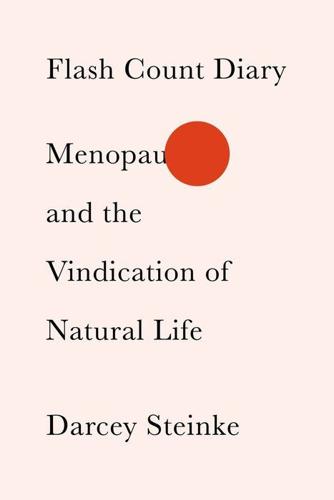
Flash Count Diary: Menopause and the Vindication of Natural Life
by
Darcey Steinke
Published 17 Jun 2019
The thrift-store plates, the mismatched silver, the paper napkins, the terrible blankness of the white enamel tabletop. The rawness of the table continues to haunt me. For our last meal, couldn’t I have used my good plates and put a cloth on the table? After dinner she wanted to watch the television show Downton Abbey, about a lord and his family in the early 1900s. She’d always loved everything about rich people. To my mother, money, which she never had much of, was an object of adoration. This adoration was not tainted by greed but was pure, almost religious in nature. I didn’t have a TV, only my laptop. I suggested we watch the Will Ferrell movie Elf.
…
I knew for a fact that there was no way my pubic hair could be showing. “It’s just a shadow in the material,” I said. My mother shook her head and said, “I don’t think so.” She stuck the photo inside the slit of her purse. I felt light-headed, numb, furious. She continued to complain about the loss of Downton Abbey until Elf was over and we both went to bed. I’ve come out of my mother’s body three times. Once when I was born; once in adolescence, a baby woman breaking out of the maternal crust; and when she died, I came out a final time. The times before this last time, though I was outside, I was also partly inside her.
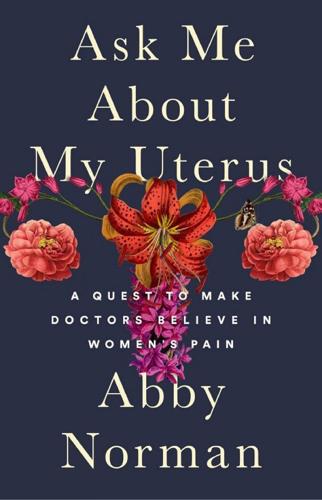
Ask Me About My Uterus: A Quest to Make Doctors Believe in Women's Pain
by
Abby Norman
Published 6 Mar 2018
Once medical science discovered and began to actively crusade against transmissible infection, childbed fever all but evaporated. But there were still risks to childbirth, many of which were silent and pernicious. Eclampsia, a dangerous rise in blood pressure, can cause fatal seizures after a baby is born and may come on quite suddenly. The youngest daughter of the Crawley family on the beloved period drama Downton Abbey died of this when the two male doctors who were charged with treating her couldn’t agree on her course of treatment: a storyline that, unfortunately, is based on fact. Of course, for the vast majority of human history, women gave birth virtually anywhere but in a hospital: at home, at work in the fields, in a hut or a cave—and certainly these places weren’t the most sterile and safe environments.
…
Our ancestors didn’t have to confront these numbers, because they rarely lived into what we now consider to be middle age. The high end of their life expectancy topped out long before menstruation begins to taper off as women of the modern age enter perimenopause in their early fifties. The historical trend for menarche, meanwhile, has slunk downward. It wasn’t unheard of for young women of the Downton Abbey era to not begin menstruating until the age of fifteen or sixteen. A woman would likely only have a few years of her “monthlies” before she would marry and begin to have children. The reasons for the declining age at menarche are not yet fully understood, but if you can imagine it—diet, environment, genetics, plastic—someone, somewhere, has likely implicated it.
…
I’m not sure if the connections are abundant or if I’m just unusually good at seeing them, but those breaths of splendid fortuity have saved my life on more than one occasion. Certainly they are always welcome, always enchanting. I met Lorraine on the Internet because we both were part of an online group that faithfully watched Downton Abbey together each week and then thoroughly critiqued it. I actually wrote the weekly recaps for The Mary Sue during the last season, which bolstered my freelance writing career and legitimized my Tumblr rants. Lorraine, a fire-haired, twenty-something nurse from New Jersey, is a magnificent cosplayer.
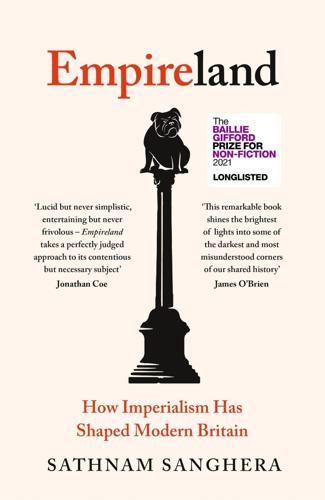
Empireland: How Imperialism Has Shaped Modern Britain
by
Sathnam Sanghera
Published 28 Jan 2021
Dirty Money Few areas of Britain feel more quintessentially English than the Cotswolds, with its thatched cottages, rolling hills, overpriced garden centres and pubs that present themselves as high-end restaurants. Meanwhile, there are few more quintessentially English things to do while you’re in the Cotswolds than to visit a country house, with their Downton Abbey associations, Farrow & Ball paint schemes and cream teas. And as you pull up to Sezincote House,1 set on high ground on a 4,500-acre estate, about a mile and a half from Moreton-in-Marsh, it feels as if you’re about to have the archetypal experience of visiting a country house in the Cotswolds.
…
They may nowadays be considered one of our most English institutions, but a recent internal audit for the National Trust, which is Europe’s largest conservation charity, one of the largest landowners in the United Kingdom and, with more than 5.6 million members, our second-largest membership after the National Union of Students, found that almost a third of its 300 houses and gardens were tainted by wealth from slavery or have treasures plundered from overseas.fn3 Stephanie Barczewski has shown in her fascinating study Country Houses and the British Empire, 1700–1930 how the global history of empire is woven into the history of our most famous houses, with around 1,100 individual landed estates in Britain being purchased by men who ‘made their money in the empire between 1700 and 1930’, accounting, depending on whose numbers you choose and how you define imperial wealth, for between 6 and 16 per cent of all the country houses in Britain. While proffering these numbers, she illustrates the complex ways empire might have influenced such houses by using the example of the fictional house at the heart of the popular TV show Downton Abbey: the family patriarch is a Boer War veteran, as is his valet; the very first dish mentioned is the Anglo-Indian creation of kedgeree; the Dowager Countess of Grantham talks about a great-aunt who ‘manned the guns at Lucknow’ during the ‘Indian Rebellion of 1857’; after Lord Grantham loses his wealth to a bad investment in the Canadian Grand Trunk Railway, his cousin and heir saves Downton by inheriting a fortune because the person ahead of him in line dies while tea-planting on the subcontinent; money problems compel another character to flog his Scottish estate and become the Governor of Bombay.
…
M. 136 Dickens, Charles 143 Dicker, Samuel 139 Dictionary of National Biography 79 Diego Garcia (island) 198 discrimination employment 25–6 housing 26–7 racial 26 Disraeli, Prime Minister Benjamin 38, 132 Divers Voyages Touching the Discoverie of America (Hakluyt) 41 Dombey and Son (Dickens) 95 Dongte 50 Donne, John 98 Dowden, Oliver 62, 210 Downer, Alex 110–11 Downton Abbey (TV series) 128 Drake-Brockman, Brigadier-General 21 Draper, Nick 139–40 Drayton, Richard 124 Drescher, Seymour 130, 140 drugs 15 drunkenness 91–3 Duck, Anne 79 Dulwich College 177 Dunkirk 179 Dutch empire 205 Dyer, Edward Abraham 93 Dyer, General Reginald 18–19, 20, 20–21, 23 Eagle (comic) 176 East India Company 6, 22, 31, 32, 34, 134 backlash against 39 as a brand 185–6 complexity of 35 cultural integration of employees 37 downplaying of wealth 197 drunkenness of soldiers 92 growth of 35 Haileybury College 70, 104 HQ 197 interracial relationships 37–8 ‘John Company’ 35 looting by 50–51, 125 museum 54–5 offices, rise of 137 opium trade 114 opportunities for minor gentry 99 private army of 35 reforms of 37–8 Royal Charter 32, 42 shareholders 127 training 70 The East India Company at Home, 1757–1857 (Finn and Smith) 197 ‘The East India Company at Home’ project 122 East India House 6 East Indian Railway 196 The East Offering its Riches to Britannia (Roma) 6 economics 4, 133–4 Edinburgh and Northern Railway 139 Edinburgh, Duke of 185 education 94–5 colonialism and 165–70 devolution of 213 imperial amnesia of 191–8 narrowness of 171 as a tool of colonialism 171 see also history (teaching of) EEC 115 Egypt 113 Elements plc 137 Elgin Marbles 62 Eliot, George 193 Elizabeth I, Queen 42 Elizabeth II, Queen 12 Ellenborough, Lord 142–3 emails, unread 1 Emergency Ward 10 (TV series) 67 emigration 86–7, 97–9 emigration agents 98 empire see British empire Empire and Sexuality: The British Experience (Hyam) 101 empire awareness 3–4 Empire Awareness Day 1, 3, 8 Empire Day 2.0 3, 6, 7, 8, 9, 209 Empire Day (later British Commonwealth Day) 2, 3, 199, 209 Daily Express rally for 182 Empire Exhibition (1924) 7, 12 Empire Marketing Board 9–10, 12 Empire of Booze (Jeffries) 92 Empire pudding 13 The Empire Strikes Back (Thompson) 95 Emrys-Evans, Paul 159 The English and their History (Tombs) 184 Enlightenment 147, 152, 153 entrepreneurship, Asian 159 Epstein, James 167 Equiano, Olaudah 156, 200, 201 escapism 97–8 Este, Harriet 140 ethical foreign policy 109 Ethiopia 58–60 ethnic minorities 72–3 underrepresentation in leadership roles 163 Eton 166, 168–9 eugenics 9 Evans, Richard 162–3 evolution, theory of 153 exceptionalism 182–3, 208 The Expansion of England (Seeley) 42 Eyre, Edward John 143, 156–7 Eyre Defence Committee 157 Jamaica Committee 157 Facebook 35 fair play 167–8 Falklands War (1982) 106–7, 181 famines 114–15 Farage, Nigel 27, 111, 188 Ferguson, Niall 87, 176, 186 Fill in the Blanks campaign 209 Filth acronym 98–9 Financial Times 129 fingerprinting 12 Finn, Margot 201 First World War aftermath 191 British empire support for 190–91 omission of non-British contributions 191 Fitton, E.
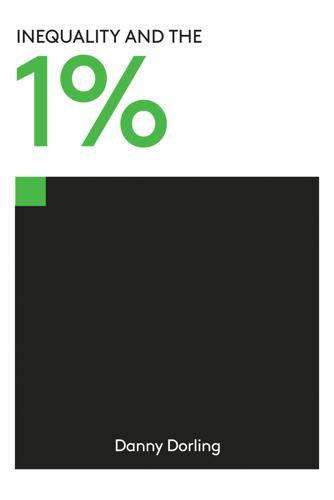
Inequality and the 1%
by
Danny Dorling
Published 6 Oct 2014
It is a message disseminated through the smiling faces on magazine covers and on primetime television. Contrast these with the miserable faces of the poor, or merely ‘normal’, that the media presents every day. Many well-known television dramas in both the UK and US have at their heart the implicit message ‘the rich only have your best interests at heart’. Think of Downton Abbey.3 Our grandparents’ generation created the National Health Service while ours came up with the National Lottery. That is a sad indictment of our times, but it does at least allow a natural experiment to be carried out to answer the question of what happens to people if they are simply given a large amount of money.
…
Schalansky, Pocket Atlas of Remote Islands: Fifty Islands I Have Not Visited and Never Will (London: Particular Books, 2012), p. 76 (although she should have said mutinies rather than revolutions perhaps). 2. M. Taussig, Beauty and the Beast (Chicago: University of Chicago Press, 2012), pp. 11, 152. 3. G. Dines, ‘Downton Abbey and House of Cards: Dramas that Live in the World of the 1 Per Cent’, Guardian, 20 February 2014. 4. N. Powdthavee and A. J. Oswald, ‘Does Money Make People Right-Wing and Inegalitarian? A Longitudinal Study of Lottery Winners’, Warwick University Working Paper, 2014, at ideas.repec.org. 5. C.
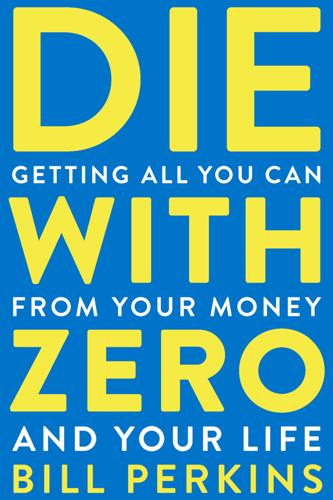
Die With Zero: Getting All You Can From Your Money and Your Life
by
Bill Perkins
Published 27 Jul 2020
And at the end of their lives, after a lifetime of pumping, they see that they’re still thirsty. What a waste! Imagine the regret you would feel if you got to the end of your days only to realize you haven’t managed to live a life full of satisfying experiences. In the wise words of Carson, the butler of Downton Abbey, “The business of life is the acquisition of memories. In the end that’s all there is.” That sounds really nice, but it’s also the sort of thought that tends to go in one ear and out the other. You hear it, maybe nod approvingly, and then go back to business as usual. Toward the end of my father’s life, though, this idea that life is about acquiring memories really hit home.
…
Buffett, Warren, 6, 34, 101 Bureau of Labor Statistics, 56 by-product argument, 47–49 C cancer treatments, cost of 57–58 careers choices and timing, 181, 183–84, 190 love my job, 47–49, 60 moving for opportunities, 185–87 slaves to our jobs, 13 starting out, 7–9 unhappiness in, 183–84 “Cat’s in the Cradle,” 90–91 Centaurus, 41 charity age and timing of, 50, 98–100 charitable foundations, 40 charitable timing, 95–100, 192 Compassion International, 101 educational causes, 98–99 Morehouse College student loans, 98 Save the Children, 101 children time with, 93–95, 120 See also inheritance, children’s; kids chiropractor story, 122–23 Cohen, Jeff, 181–82 compounding as reason to give money to children earlier, 87 of memory dividend, 30–32 of poor health, 123–25 Consumer Expenditure Survey, 56 consumption smoothing, 9–10 cookies, as example of deliberate choices, 12 costs of acquiring more money, 162–63 of survival, 157 Cuban, Mark, 177–78, 181 curve of ability to enjoy experiences, 116, 116–17 D dancer, as example of loving your job, 47 death and deterioration experiences before, 34 money at end of life, 109–10 prospect of, 2–3 spending during retirement, 52 survival instinct, 72–74 See also Life-Cycle Hypothesis (LCH); mortality risk death date, and effect on behavior, 73, 109–10 debt, for the sake of singular experiences, 105 decumulation, 53, 71, 171–74, 207m50 Spending Over Lifetime, 172 delayed gratification Ant and the Grasshopper, 16, 24 balance of, 24, 199 golden years and, 118 logic of, 3 marshmallow test, 130 senselessness of overdoing, 56, 130–32, 138, 153 Depression (era), and fear of poverty, 85 deterioration of health, 111–15 DieWithZeroBook.com, 202 “dissaving,” 47. See also decumulation. Dominguez, Joe, 10 door, as example of the value of memory, 28 Downton Abbey, 22 Duty Free Shoppers Group, 100 E Eat to Live (Fuhrman), 133 economic wisdom on annuities, 67 education spending, 27, 99 family time, 94 healthcare spending, 72 Life-Cycle Hypothesis (LCH), 46 personal choices, 170 precautionary saving, 58 timing of spending, 5, 47, 103–4 wealth transfers, 83–84 Elizabeth (working for free example), 43–45 Employee Benefit Research Institute, 52–53 energy-processing units (humans as), 16 Europe, 12, 19–21, 29, 33, 105 experience points, 25–26, 30–31, 34, 124–25, 155–56, 163–64, 189, 199–200 experiences age and timing of, 4–6, 21, 110–15, 179–80, 182–83 backpacking trip, 19–21 Central American vacation property, 32 choices, 35–37 happiness and, 13–14, 191–92, 206m33 impact of failure, 179–81 life experiences, 18, 24–25 numerical value on, 24–25 return on, 33–34 start early, 34–35, 37 See also fulfillment curve F Facebook (FB), 29–30 Farrell, Joe, 9–10, 103–7 fear as enemy of rational thinking, 84 boldness as an older person, 187–88 inaction and, 189 moving and travel, 184–87 running out of money, 14–16, 50, 85, 207m5 versus low risk tolerance, 68–69, 188–89 Federal Reserve Board, 51, 80 Feeney, Chuck, 100–101 Final Countdown (app), 74–75, 209m74 financial advisers, 34, 69–71, 104, 161–62 “finish rich,” as antithesis of Bill Perkins’s life goal, 36 FIRE movement, 10, 104 Florida, 160 Freakonomics (Levitt), 104 Friedman, Milton, 104 friends and family of Bill Perkins, stories about Arnold, John, 40–41 Baird, 88 Chris (Lara’s granddad), 112 Erin, 1 Greg, 111–112 inheritor with miserable childhood, 90 interested in giving to charity after a new business succeeds, 100 Paulie, 32 Richey, Cooper, 72 Ruffo, Jason, 19–20 Schwartz, Andy, 169–70 Staples, Jaime and Matt, 125–26 Tia (sister), 175 See also Grandma frog dissection, and underutilizing adult freedom, 36 Fuhrman, Joel, 133 fulfillment, 6, 17–35, 90, 107 fulfillment curve, 26, 31, 118, 123, 200–201 fulfillment score, 114, 203 G Gates, Bill, 6–7, 101 gifts cash gift to Grandma, 55 charitable, 96–101 to kids, 89–94 to Morehouse College, 98 go-go, slow-go, no-go years, 54–56 Golden Girls, The, 173, 212m173 golden years, 118–19, 171, 192 Goonies, The (film), 181–82 Grandma and avoiding risk, 189 plastic on furniture, 55 sweater story, 55, 115 H happiness acting on, 4–5 experiences, 13–14 travel, 110 See also fulfillment health and healthcare ability to enjoy experiences based on health, 114, 116, 119, 163, 174 age and diminished enjoyment, 110–17, 133 cancer, 1–3 health curves, 113–14 health goals betting, 125–26 insurance, 57, 59–60, 208m57 preventive care, 59, 125, 133, 174–75 unknown expenses, 56–59 value of, 121–23 weight, impact of, 122–26 Heinrich, Carolyn, 94 honorary billionaire, 6 I inertia, See autopilot inheritance, children’s afterthought or caring, 77–78, 83–84 age and timing of, 49–50, 79–82, 86–89, 99–101, 207m50 educational savings plan (529 plan), 89 give while you are alive, 78–79, 169 “in vivo” transfers, 83, 85 Probability of Inheritance Receipt, 81 randomness, 80–81, 83–84 insurance alien robot invasion insurance, 57 annuities, 65–67 health insurance, 57, 59–60, 208m57 life insurance, 65 long-term care insurance, 59, 85 you are not a good insurance agent, 65–69 investing in experiences, 19–37 in human capital, 27 return on experience versus return on equity, 33 iPad full of memories (gift), 23 J Jeopardy, 115, 173, 212m173 Joe Nose-to-the-Grindstone and Sue Spendy, 16 J.P.
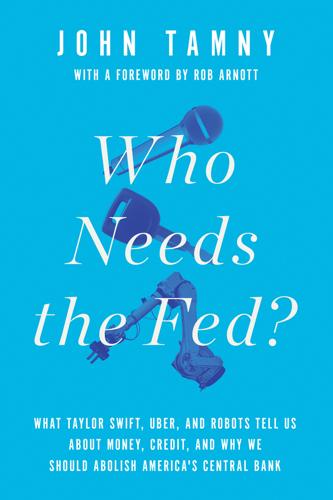
Who Needs the Fed?: What Taylor Swift, Uber, and Robots Tell Us About Money, Credit, and Why We Should Abolish America's Central Bank
by
John Tamny
Published 30 Apr 2016
Markets are information personified, and as such they are quite capable of setting the rate of interest that most meets the needs of borrowers and savers. Prices set in free markets maximize the potential for transactions, including those between savers and borrowers. In my first book, Popular Economics: What the Rolling Stones, Downton Abbey and LeBron James Can Teach You about Economics, I argued that when it comes to booming economic growth and immense prosperity, the answers are easy. That argument remains true. Also true is that just as the economics profession presents a major barrier to economic growth, its mysticism renders credit less attainable, by virtue of the credentialed presuming to set prices and intervene in markets in ways that wouldn’t take place if markets were free.
…
Alana Semuels, “Detroit’s Abandoned Buildings Draw Tourists instead of Developers,” Los Angeles Times, December 25, 2013. 11. Smith, Wealth of Nations, 370. 12. Nathan K. Lewis, Gold: The Monetary Polaris (Portland, Ore.: Create Space Independent Publishing Platform, 2013), 208. 13. John Tamny, Popular Economics: What the Rolling Stones, Downton Abbey, and LeBron James Can Teach You about Economics (Washington, D.C.: Regnery, 2015), 232–33. 14. Bret Swanson, “Permission Slips for Internet Innovation,” Wall Street Journal, August 15, 2015. 15. Isaac, “Upstarts Raiding Giants for Staff in Silicon Valley.” CHAPTER SEVENTEEN 1. James Osborne, “Price Slide Hurts Energy Deals” Dallas Morning News, December 27, 2014. 2.
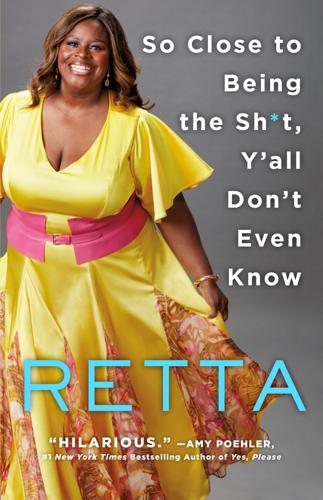
So Close to Being the Sh*t, Y'all Don't Even Know
by
Retta
Published 28 May 2018
I’m also that person who recognizes someone from another show and feels the need to let everyone know, whether it be sending a tweet or telling someone actually in the room. “Oh shit! Mrs. Patmore! Who knew she could be a crime boss?!’” said I while watching an episode of The Catch. You can call me IMDBeyotch. I luh my programs. Highbrow (Downton Abbey) and lowbrow (Laguna Beach). Antiheroes (Tony Soprano) and unlikely heroes (Walter White). Comedies (Modern Family) and especially dramedies (Freaks and Geeks, Orange Is the New Black, Shameless, Gilmore Girls, Californication, Weeds, Veronica Mars, I could go fucking onnnnn). And, ooh yes, procedural doc shows, like Grey’s Anatomy.
…
I am someone who walks the red carpet in a dress that was made for me by someone I never met (thank you Rani Zakhem).1 I am someone who Al Roker and Giuliana Rancic wish to converse with, as long as nobody better is within a few feet of me. I am someone who makes friends with the ladies from Orange Is the New Black and exchanges digits with Lena Dunham because we bond over the fact that we both have the same fake Chanel iPhone case. I am now asked to take selfies with Laura Carmichael, Lady Edith Crawley from Downton Abbey, because she … nay, the entire Downton cast are my peers. I’m part of this industry. A part of the industry, but second tier for sure. And nowhere does that become more evident than in your party invites. Not just what you do and don’t get invited to, but what time. One of the biggest Emmy parties is called “The Evening Before.”
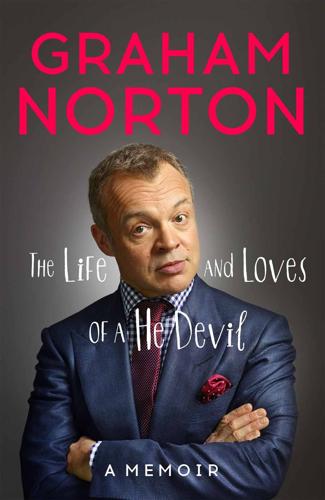
The Life and Loves of a He Devil: A Memoir
by
Graham Norton
Published 22 Oct 2014
This was a strange ritual that seems to have died out now, where, just before bed, my mother wheeled in a trolley with tea, sandwiches and various cakes and biscuits. I really do think the famine has given the Irish a fear of starving to death in our sleep. The Nicholsons feigned delight to see me and asked questions about how I was getting on in London and I politely replied, sipping my tea with all the delicacy of Maggie Smith in Downton Abbey. I suppose we chatted for about half an hour before they made their excuses and headed home. I kissed Mum and Dad goodnight and headed to my bedroom. I felt a quiet pride because, against all the odds, I had managed not to embarrass myself or my parents. This night was ending well. Very ready for bed I sat down and bent over to untie my shoes.
…
Their worlds are so different and Miriam’s candour so extreme that it might have been socially awkward or even offensive, but what we saw was the blossoming of a wonderful rapport and friendship. When Lady Gaga met EastEnders’ June Brown, a similar thing happened. The author and filmmaker John Waters still waxes lyrical about meeting Justin Bieber. One of my favourite shows of recent times had Matt Damon, Bill Murray and Downton Abbey’s Hugh Bonneville. They were on to promote a movie called The Monuments Men, directed by George Clooney. Originally we had planned a whole show that included another star of the movie, the French Oscar-winner, Jean Dujardin. The day before filming, following an unhappy time on another show in Italy, he pulled out.
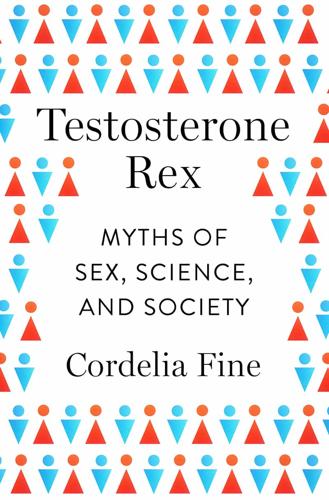
Testosterone Rex: Myths of Sex, Science, and Society
by
Cordelia Fine
Published 13 Jan 2017
The unrivalled interest of human beings as objects of examination for reality TV programming reflects the fact that, as evolutionary biologist Mark Pagel puts it, we are “a single species with a global reach and ways of life as varied as collections of different biological species.”64 The anthropological, historical, psychological records and a single episode of Downton Abbey clearly show that how women and men behave “varies greatly depending on situations, cultures, and historical periods,”65 as psychologists Wood and Eagly put it. We saw earlier in the book that even when it comes to something as basic as bringing the next generation into being, we humans have enjoyed an array of possibilities as to how to get the job done.
…
“female-end” zones in, 91–92 possible compensating function of, 94–95, 137, 179 in rats, 90–91 socio-environmental influences on, 87, 89, 90–91, 96–100 in songbirds, 95–96 stress and, 90–91 traditional view of, 15–24, 86–89, 169, 178–79, 181, 195 unknown functions of, 92–93 Brain Storm (Jordan-Young), 190 British Toxicology Society, 228n Brown, Gillian, 51 Browne, Kingsley, 129 Brown University, 86 buff-breasted sandpiper, 37 Buffett, Warren, 157 Bulgari, 63, 64, 72 bush crickets, 43, 61, 73, 185 Buston, Peter, 74 Cahill, Larry, 16–17, 104, 105, 225n California, University of: at Davis, 38 at Irvine, 16 at Los Angeles (UCLA), 72 Cambridge University, 19, 44, 167, 181, 182 canaries, 95 Cárdenas, Juan-Camilo, 157 caregiving, 178 career costs of, 155 cultural norms for, 144, 146 by males, 43, 44, 144, 145–46 by parents, 43, 44, 99 as supposedly feminine trait, 17, 107, 113 testosterone levels and, 130, 143, 144, 145, 232n traditional view of, 189 Carothers, Bobbi, 101–2, 225n Carré, Justin, 148 Carr-Gregg, Michael, 176 Casey, Patricia, 83–84, 86–87, 107 Cashdan, Elizabeth, 124 casual sex: differences in male vs. female attitudes toward, 54–60, 117, 211n–12n double standard in, 56–58, 213n, 236n importance of male vs. female orgasms in, 58–59 central nervous system, sex differences in, 93 Challenging Casanova: Beyond the Stereotype of the Promiscuous Young Male (Smiler), 52 Chancing It (Keyes), 113–15 Chicago, University of, 94 children: gender socialization in, see gender socialization males as caregivers for, 43, 44, 144, 145–46 unequal parental investment in, 14–15, 32–33, 42, 47–48 Chile, 156, 158 China, 75, 122, 124, 156, 163 choosiness, 87 in females, 32, 35, 43, 207n in males, 40–41 cichlid fish, 130–31, 139, 141, 142, 185 Clark, Russell, 54, 56, 59 Clarkin, Patrick, 61 clitoris, 85 Coates, John, 167, 168, 244n cofactors, 136 cognition, 100 Cohen, Dov, 148 coho salmon, 131 Colombia, 124, 157 Columbia University, 112 communication, 100 competitiveness, 15, 18, 19–20, 21, 23, 87, 178 cultural context and, 124–25, 147 and female reproductive success, 39, 43 in females, 39–40, 43, 127, 131–32, 140, 142, 168 intra- vs. intersexual, 30–31 and male reproductive success, 33–34, 37, 48–49, 123, 164–65 risk taking and, 110, 226n sexual displays and, 30–31 as supposedly masculine trait, 110–11, 142 testosterone and, 129–31, 143–44, 146–47, 168, 232n, 237n weak correlation between sex and, 124–25 concentration camps, gift giving in, 64 Concordia University, 57, 175 confirmation bias, 154–55, 162–63 congenital adrenal hyperplasia (CAH), 85, 181, 182–83 Conley, Terri, 56, 59, 60, 117 Cook, Hera, 76–77 Cornell University, 131 cortisol, 166, 237n, 244n Corvette, 17, 104, 105 culture: caregiving and, 144, 146 competitiveness and, 124–25, 147 risk taking and, 126, 127, 156–57 sex roles and, 178, 183 sexuality and, 65, 76, 78–79, 84, 144–45, 177–78 Cunningham, Sheila, 193 Daily Telegraph (Australia), 176 Dalhousie University, 191 Darwin, Charles, 29–31, 109, 201n, 205n Datoga, 144 Davies, Nick, 44 DC Thomson, 174 Del Giudice, Marco, 225n Delingpole, James, 175 Delusions of Gender (Fine), 103, 183 dendritic spines, 90 Denmark, 55 Descent of Man, and Selection in Relation to Sex, The (Darwin), 30 developmental plasticity, 233n–34n developmental systems: adaptive behaviors and, 186, 188–91 brain and, 186, 234n de Vries, Geert, 93, 95, 97–98 digit ratio, 163–64, 165–66, 180 DLKW Lowe, 174 DNA paternity testing, 37 domestic violence, 191–92 dominance, social, 185 of females, 40, 132 in H. burtoni cichlids, 130–31, 139, 141, 142 seen as masculine trait, 17, 102, 107, 109–10 Downey, Greg, 65, 76, 215n Downton Abbey (TV show), 99 dunnock (hedge sparrow), 44, 185 Dupré, John, 14, 20, 65–66, 73, 75, 186 Eagly, Alice, 73, 99–100, 190, 211n–12n East Africa, 130 Economist, 18 Ecuador, 72 education, biological sex and, 17–18 effect size, 101, 154 Eicher, Eva, 86 Einon, Dorothy, 47, 48, 49 Einstein, Gillian, 94 Elgar, Mark, 41 Emlen, Stephen, 74 Emory University, 140 England, 76 epigenetics, 96 brain and, 89–90, 96, 234n estrogen receptors, social information and expression of, 142 estrogens, 19, 94, 134, 136 evolution: adaptation and, 184–88, 189 risk taking and, 109–10, 122–23, 125, 152 sex differences in, 15–16, 22, 87, 184–85 and unequal parental investment, 14–15 Evolutionary Bases of Consumption, The (Saad), 175 Evolutionary Psychologists, 52, 60, 63, 71, 78, 185, 218n exaptation, 65 Exeter University, 14, 121 “failure-as-an-asset” effect, 161, 169 fallopian tubes, 85 Fast Track intervention, 147–48 Fausto-Sterling, Anne, 86, 95–96, 97, 179–80 females: aggression in, 102–3, 132 biological investment in children of, 14–15, 32–33, 42, 47–48 choosiness in, 32, 35, 43, 207n competitiveness in, 39–40, 43, 127, 131–32, 140, 142, 168 promiscuity in, 35–40 reproductive success of, see reproductive success, female risk taking by, 110, 115, 116–17, 126, 127, 239n sexual displays by, 31 sexual double standards and, 56–58 social dominance of, 40, 132 testosterone in, 137, 138, 143, 146, 166, 168, 203n feminism, 15, 34 and women’s sexuality, 78 Ferrari, 113 FIA Formula 1 World Championship, 16 finance industry: low cost of failure in, 170 risk taking in, 20, 151–52 sex inequality in, 169–70 sexual stereotyping and, 152, 244n testosterone and, 20, 151–52, 167–70 financial crisis of 2007–2009, 20, 22–24, 152, 170 Financial Times, 125, 168–69 fixedness, of traits, 188–90 Flood, Michael, 213n Flynn, James, 118 Forbes, 18 Forger, Nancy, 93, 97–98 Formula 1 racing, 16, 20 France, 55 Francis, Richard, 129, 131 fruit flies (Drosophila), 29 Bateman’s experiments with, 29, 31–32, 33–36, 39, 40, 42, 43, 48, 60, 61, 137, 177, 205n, 206n Fuentes, Augustín, 51–52, 149 funnel plots, 154–55 Gapun, 103 Geary, D.
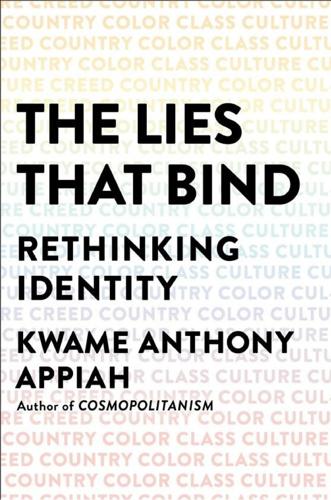
The Lies That Bind: Rethinking Identity
by
Kwame Anthony Appiah
Published 27 Aug 2018
“My good woman,” Lady Shelley replied, “this ought to be the proudest moment of your life. You have had the distinction of being shot by the great Duke of Wellington!”11 THE AMERICAN WAY Many Americans, like most English people, have a hobbyist’s knowledge of the old British class order from watching shows like Downton Abbey on television. But in America, it is regarded as quaint and even alien, like a National Geographic documentary about an unfamiliar tribe; as strange, in some respects, as the world of the Asante court. From the very beginning, the United States repudiated the very idea of a titled aristocracy.
…
P., 213, 215, 216, 218 Cecilia (Burney), 157 Central Asia, 79, 120, 193, 194 Central Europe, 77 Cervantes, Miguel de, 115 Charlemagne (Holy Roman Emperor), 193, 194, 197 Charles I (king of England), 145 Chaucer, Geoffrey, 145, 199 Childhood and Society (Erikson), 3 China, 18, 88, 90, 92, 93, 95, 96, 123, 126, 128, 129, 174 Chinatown, Singapore, 96 Chomsky, Noam, 38 Chrétien de Troyes, 187, 195, 205, 211 Christy, Henry, 189 Churchill, Winston, 126, 160 Cicero, 210 Cirencester, England, 7 Citizen of the World, The (Goldsmith), 204 Clement I (Roman pope), 52 Clermont, France, 194 Cleveland, Grover, 137 Cligès (Chrétien de Troyes), 187 Cobb, Jonathan, 168 Cobden, Richard, 83 Cockfosters (London, England), 139 Collier, John Payne, 155, 156 Colonsay, Scotland, 87 “Commentator, The” (ibn Rushd), 198 Condition of the Working Class in England, The (Engels), 158 Constantine (Roman emperor), 65 Constantine VII (ruler of Byzantium), 197 Constantinople, Byzantine Empire, 197 Córdoba, Caliphate of, 197, 199 Corinth, 54, 61 Corinthians, First Book of, 48, 52, 54–55 Cornwall, England, 77 Corsica, 5 coscienza di Zeno, La (Svevo), 84 Cotswold Hills, England, xi Crazy Rich Asians (Kwan), 162 Crenshaw, Kimberlé, 19 Crimea, 89 Crimean Peninsula, 89 Cripps, Alfred (Lord Parmoor), 7 Cripps, Joseph, 7 Cripps, Stafford, 160, 161, 175 Cromwell, Oliver, 75, 182, 183 Cuba, 140, 189 Culture and Anarchy (Arnold), 189, 190 Czechoslovakia, 77 Dahomey, Kingdom of, 26 Dalton, Hugh, 175 Danelaw, 76 Dante, 207 Darwin, Charles, xv, 118 Davis, Miles, 206 “Dead, The” (Joyce), 84 De anima, (Aristotle), 198 De jure maurorum (On the Law of the Moors; Amo), 109 De materia medica (Dioscorides), 197 De rerum natura (Lucretius), 44 Decline of the West, The (Spengler), 201 Delhi, India, 16 Delano, William Adams, 138 Democracy in America (Tocqueville), 151 Denkyira, West Africa, 123 Descartes, René, 109, 116, 122 Deuteronomy, Book of, 52 Devon, England, 137 Devonshire, Duchess of (Deborah Vivien Cavendish), 163 Devonshire, Duke of (William George Spencer Cavendish), 155, 156 Didache, 52 Dimensions of a New Identity (Erikson), 4 Diop, Cheikh Anta, 203 Dioscorides, Pedanius, 197 Doctor Thorne (Trollope), 144 Donald, David Herbert, 151 Don Quixote (Cervantes), 115 Dorset, England, 7 Doveri dell’uomo (Mazzini), 69 Downton Abbey (TV program), 149 Dream Hoarders (Reeves), 173 Dublin, Ireland, 139, 215 Du Bois, W. E. B., 124–28, 130, 132 Dunlop, Daniel, 138, 139 Dworkin, Ronald, 177 East Asia, 120 East End (London, England), 153, 154 Eastern Europe, 77, 79, 195 East Germany, 78 East Pakistan, 78 Ecclesiastes, Book of, 52 Ecclesiasticus, Book of, 50 Edinburgh, Scotland, 86, 196 Edison, Thomas, 200 Edward III (king of England), 75 Egypt, 75, 79, 125, 192, 200, 203 Einstein, Albert, 181, 182 “Elegy Written in a Country Churchyard” (Gray), 181, 182 Eliot, George, 3 Elizabeth I (queen of England), 198 Elmhirst, Dorothy, 137, 138, 160 Elmhirst, Leonard, 137, 138, 140, 160, 185 Engels, Friedrich, 158 England, 6, 7, 20, 45, 60, 61, 75, 76, 87, 88, 113, 138, 139, 142, 148, 150, 153, 158, 162, 163, 171, 189, 191, 199; see also Great Britain “English Aristocracy, The” (Mitford), 163, 164 Ephesians, Letters to, 47, 59 Erikson, Erik, 3, 4 Essay on the Inequality of the Human Races (Gobineau), 113 Esther, Book of, 52 Ethiopia, 79, 125 Euclid, 196, 207 Europe, 5, 78, 79, 87, 98, 103, 104, 107, 111, 112, 114, 117, 119, 120, 123, 125, 126, 128, 129, 133, 146, 150, 191, 192, 194, 197, 198, 201, 205, 207, 219 Eve (biblical figure), 111 Evelina (Burney), 155 Exodus, Book of, 67 Ezra, Book of, 52 Family and Kinship in East London (Young and Willmott), 153, 154, 161 Federation of Malaya, 91 Federation of Malaysia, 91 Ferguson, Missouri, 132 Filkins, England, 61 Fitzpatrick, Louisa, 138 Flanders, Michael, 21 Ford, Henry, 140 Ford, Leonard, 140 Forster, E.
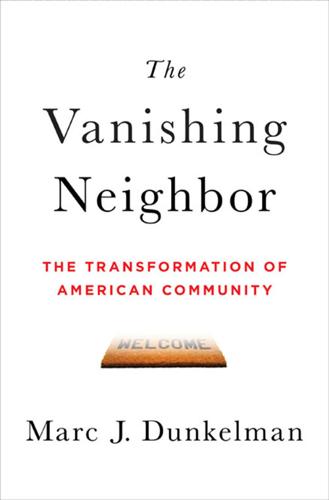
The Vanishing Neighbor: The Transformation of American Community
by
Marc J. Dunkelman
Published 3 Aug 2014
The new social architecture centered more on ties that bound together the residents of individual towns and villages. Rather than have a local nobleman keep watch over a district, as in England, the cohort of Americans living nearby took joint responsibility for their collective well-being. Many colonists had moved away from the social architecture depicted later in Downton Abbey and toward something more like that portrayed in Little House on the Prairie.5 And because that sort of community wouldn’t abide the heavy hand of a monarch—communities working collaboratively were less interested in taking orders from on high—the founding generation designed and embraced an alternative kind of government, reflected in the Constitution, that was more appropriate to colonial American life.
…
connection, 11–12, 15, 75, 79–80, 95, 103–12, 129, 213, 236–37 changes in, xi–xiii, xvii, 44–45, 48 Chinatown Bus effect and, 44–45, 48 extended community and, 168–73 global, 17, 141 global village and, 142–43 motive and, 12, 75 online, 140 Putnam’s view of, 115–16 in urban areas, 85–86, 87 conservatives (the right), 2, 11, 14, 15, 35, 47, 56, 110 political dysfunction and, 182, 183, 184, 190 social decay and, 26, 29, 31 Constitution, U.S., xiii, 194, 234 corporations, 16, 48, 101, 107, 132, 141, 165 Cowen, Tyler, 173–74 cowpox, 158, 159 creative class, 23, 83, 175 creativity, 61, 68, 158–66, 175, 237 Crick, Francis, 161–62, 173 crime, 56–57, 60, 83, 84, 87, 114, 150, 151, 216, 224 Cronkite, Walter, 188 culture wars, 69, 114 Cushing, Robert, 47–48, 147 Daily Show, The (TV show), 232 Dallas Mavericks, 8–11 data, 6–10, 13, 18, 37, 119, 161 dating services, 68–70 Davidson, Adam, 19 death, 57, 60, 199, 200, 205 premature, 58, 60 Death and Life of American Cities, The (Jacobs), 85–86, 166 debt, xv–xvi, 54 deliberative polling, 192–93, 195 democracy, 67, 179, 188, 192–95, 230 Democracy in America (Tocqueville), 80, 247n, 358n Democrats, 15, 37–38, 46, 182–86 demographics, 38, 68–69 growth of suburbs and, 129 health care and, 198, 210 shopping and, 39, 40 dependence, 29, 201, 208 de Posada, Joaquim, 215 desires, 13, 61–62, 66, 67, 71, 72, 73, 75, 120, 195, 212 affirmation and, 103, 107, 108 Detroit, Mich., 128, 175 digital revolution, xiii, 18, 20, 24–25, 50, 55, 129, 138 affirmation and, 103–4 Chinatown Bus effect and, 35–38, 41 discussion networks, 105, 119 disease, 57–60, 157–59, 199–200, 206–7 polio, 51, 52, 59 smallpox, 157–58 diversity, 72, 136, 165, 166, 171–72, 175, 217 see also social diversity divorce, 43, 69, 71, 105, 261n no-fault, 17, 30–31 Downton Abbey (TV show), xii, 247n Dr Pepper advertisement, 102–3 Drucker, Peter, 15 drug abuse, 56, 114, 215 drugs (medication), 58, 59, 147–48, 207 Dubner, Stephen, 133–34 Duckworth, Angela, 217 Dunbar, Kevin, 169 Dunbar, Robin, 91–98, 116, 142, 143, 145, 152 Dunbar’s number, 94, 98, 143, 145 Dunedin, New Zealand, 215–16 Dunham, Lena, 30 Dunkelman, Marc J.
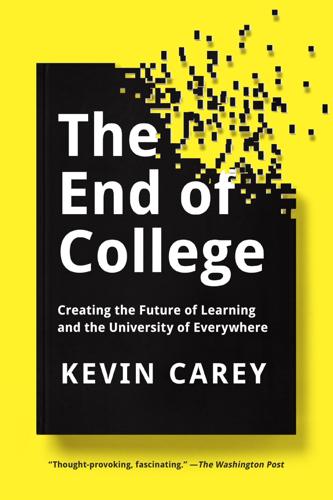
The End of College: Creating the Future of Learning and the University of Everywhere
by
Kevin Carey
Published 3 Mar 2015
A student taking an exam remotely while being simultaneously monitored by a video camera and having her keystrokes recorded, as some online students are, is being subjected to much more scrutiny than a terrestrial student who simply shows up at a large lecture hall. Accredible certs can also include testimony from peers. Sometimes the most powerful evidence you can communicate about yourself is the endorsement of other people. Anyone who’s watched Downton Abbey on PBS will recall various moments of high drama related to whether a servant will leave the household with a personal letter of recommendation from the head butler or lady of the house. That’s largely how formal credentials worked before mass higher education. They were personal recommendations from people whose positions or social class gave them authority.
…
C., 96 Clark, Jim, 129 Clinton, Bill, 177 Cognitive tutoring, 103, 105, 138, 179, 210 Cold War, 45, 54, 78, 79, 123, 167 Columbia University, 23, 56, 91, 157, 208, 250 admission to, 161 failed online course effort of, see Fathom.com Great Books courses at, 32, 44 liberal arts curriculum at, 49, 197 Comcast, 146 Community colleges, 55, 58–61, 77, 140–41, 237 bachelor’s degree programs added to, 64 enrollment in, 224 graduation rates from, 8–9 online courses offered by, 114 status anxiety of students at, 164 teaching in, 253 Computer science, 113, 125, 147, 158, 197, 218, 229 at Carnegie Mellon University, 71, 72, 79, 101, 105, 110, 153, 209–10, 216 at Massachusetts Institute of Technology, 11, 52, 148, 153 at Stanford University, 146, 153, 156, 233 Congress, U.S., 51, 56 Cornell University, 48, 204 Corporation for Public Broadcasting, 208 Council of Advisors on Science and Technology, 2 Course Hero, 133 Coursera, 153–57, 159, 170–72, 204, 223, 225, 231 Craig, Douglas B., 95 Craigslist, 132, 145 Credentials, academic, 6, 22, 46, 61, 182, 191–95, 200, 248 accreditation and, 117–18 admissions process and, 212 digital, 6, 186, 191–93, 199, 204, 218–19, 231, 234, 240 (see also Badges) labor market and, 185–86, 195, 197, 201, 246 personal recommendations and, 217 time-based, 48, 194, 209, 216 See also specific degrees Credit hours, 48, 194, 209, 237 Crick, Francis, 3, 70 Dark Ages, 17 Dartmouth College, 23, 79, 101, 147, 204 Davidson College, 243 Defense Department, U.S., 125, 148 Democratic Party, 42 Demosthenes, 25 Deoxyribonucleic acid (DNA), 2, 37, 70, 221 Dev Bootcamp, 139–41 Dickens, Charles, 17 Digital Equipment Corporation, 168 DiMaggio, Paul, 50, 117 Disney-Pixar, 208 DK Eyewitness Travel Guide: USA, 164 DNA, 2, 37, 70, 221 Doctorates, see PhDs Doerr, John, 153 Double helix, 3 Downes, Stephen, 150 Downton Abbey (television series), 217 Drucker, Peter, 107 Duke University, 140, 161 Dunster, Henry, 22, 197–99 Eaton, Nathaniel, 198 eBay, 145 Edison, Thomas, 96 Education, U.S. Department of, 9, 36, 56, 99, 157, 252 edX, 11, 143, 163, 170–72, 176–78, 214, 223, 231 certificates of course completion through, 203, 219, 233 controversy at Harvard over, 180 cost of course development for, 228 expansion of consortium of, 204, 244 forums moderated by teaching assistants on, 88 Lander’s lectures and course materials posted on, see Introduction to Biology—The Secret of Life (7.00x) process of signing up for classes on, 13 Eight-Year Study, The, 90 Einstein, Albert, 45 Elective system, 30–31, 47, 49, 54, 146, 197, 226 laissez-faire approach of, 76, 241 Eliot, Charles William, 29–32, 47, 49, 54, 65, 76, 138, 185, 239 Elite private institutions, 53–55, 134–36, 229, 241, 253 admissions process of, 161, 195, 212–13, 215, 245 high schools, 90, 195 international, 143 online sharing of resources by, 170 status competition among, 165 See also specific universities Emergence of the American University, The (Veysey), 34 Engelbart, Douglas, 122–26, 156 Engels, Friedrich, 45 Enlightenment, 26 Equifax, 200 Ericsson, K.
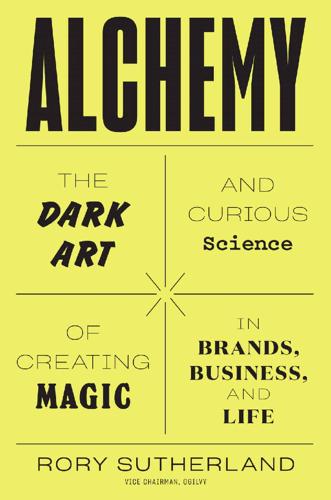
Alchemy: The Dark Art and Curious Science of Creating Magic in Brands, Business, and Life
by
Rory Sutherland
Published 6 May 2019
Are we bizarrely cherishing numbers or models over simple observation, because the former look more objective? Always Remember to Scent the Soap Over the past hundred years, huge improvements in human hygiene have resulted from better levels of sanitation and a growing urge to maintain the appearance of cleanliness, which has brought about a significant change in human behaviour. When Downton Abbey first appeared in 2010, a British newspaper interviewed a nonagenarian aristocrat to ask her whether it faithfully reproduced her memories of the pre-war British country house. ‘Well there’s one thing it doesn’t tell you,’ she explained. ‘Back then, the servants literally stank.’ And in the early twentieth century, when it was proposed to install baths for the undergraduates in one Cambridge college, an elderly fellow was having none of this: ‘What do the undergraduates need baths for?
…
Unless, of course, you can persuade another candidate to do the same. *Also known as the asymmetric dominance effect. *The two problems were quite possibly connected – the sparks and flames came from lumps of wholemeal bread that had become trapped inside. *The latter is now better known as Downton Abbey. *As well as a free bread slicer left behind by the previous occupants. *Including Buckingham Palace. *American readers of this book might like to visit the website Wright On The Market, which lists the current Frank Lloyd Wright properties for sale. *The apartment on the floor below would cost £200,000 more than ours, largely for this reason.
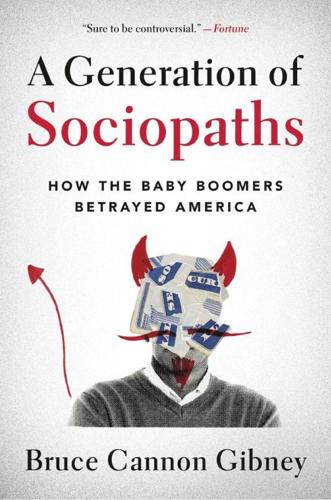
A Generation of Sociopaths: How the Baby Boomers Betrayed America
by
Bruce Cannon Gibney
Published 7 Mar 2017
CHAPTER FIFTEEN THE WAGES OF SIN From 1989 until 2007, median wealth increased for families headed by someone over age 50, rose somewhat for families headed by someone between 35–49, and stayed much the same for younger families… Marketable wealth—the measure used in this analysis—significantly understates the resources of a family that expects much of its retirement income to come from Social Security or defined benefit pension plans. —Congressional Budget Office (2016)1 One of the more curious artifacts of the Boomer decades is luxury voyeurism, a phenomenon that began in 1984 with the Lifestyles of the Rich and Famous and continued through the various Real Housewives series and Downton Abbey. The last is at least nakedly fictional, though no less bizarre for it: an antimodern melodrama of entitled toffs, stately homes, and dubious-though-usually-deferent staff, and generally celebrates the very system of antidemocratic immobility against which America had originally rebelled. Downton manages to affront both the nation’s liberal origins and, given its theme and state sponsorship (PBS), also runs counter to the muddled anti-elite, anti-government populism of the Republican proletariat.
…
The gig economy and other “alternative work arrangements” accounted for quite a lot of recent job growth, probably at least a third of all jobs created, and per preliminary findings by Harvard’s Lawrence Katz and Princeton’s Alan Krueger, perhaps “all of the net employment growth in the U.S. economy from 2005–2015 appears to have occurred in alternative work arrangements” (emphasis original; in a recent update, the authors revised “all” to a no-less-unsettling “94 percent”).17 And this returns us to Downton Abbey—before World War I, huge numbers of English were employed “in service,” thanks to social inertia, inequality, and technological change. With gigs, this is happening again, only now the chauffeur comes in the livery of Lyft’s pink moustache, not Downton’s white tails. And this time, there will be no intermarriage between passenger and driver à la Lady Sybil and Tom, especially in the coming decades when the driver becomes a robot.
…
.* When Britain decided its parasitic and antidemocratic gentry needed to go, the mechanism was “death duties.” That was a century ago; certainly twenty-first-century America can be at least as progressive as Edwardian Britain. Why, precisely, do the senior viewers of PBS care so much about how Downton Abbey will survive the predations of Lloyd George and his death duties? Because Boomers have their own McDowntons to worry about. Even before they change hands, American McDowntons are already protected by some generationally discriminatory exemptions that themselves deserve revision, especially the property tax caps enacted since the 1970s.
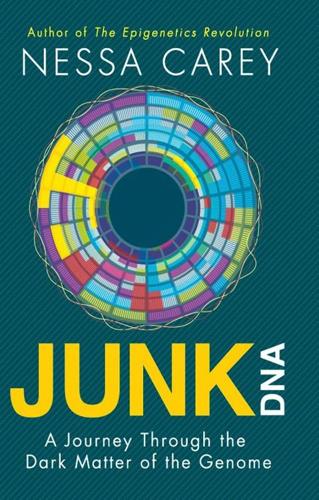
Junk DNA: A Journey Through the Dark Matter of the Genome
by
Nessa Carey
Published 5 Mar 2015
Potential versus actual The sceptics argue that at best these data indicate a potential for a region to be functional, and that this is too vague to be useful. An analogy might help here. Imagine an enormous mansion, but one where the owners have fallen on hard times and the power has been disconnected. Think Downton Abbey in the hands of a very bad gambler. There could be 200 rooms and five light switches in each room. Each switch could potentially turn on a bulb, but it may be that some of the switches were never wired up (aristocrats are not known for their electrical talents), or the associated bulb is broken.
…
We agree, many textbooks dealing with marketing, mass media hype, and public relations may well have to be rewritten.15 The main criticisms from this counter-blast centred around the definition of function, the way that the ENCODE authors analysed their data, and the conclusions drawn about evolutionary pressures. The first of these applied to the problems we have already described, using our Jackson Pollock and Downton Abbey analogies. In some ways, these problems derive in large part from difficulties in separating mathematics from biology. The ENCODE data sets were predominantly interpreted by the original authors through the use of statistical and mathematical approaches. The sceptics argue that this leads us down a blind alley, because it doesn’t take into account biological relationships, and that these are critically important.
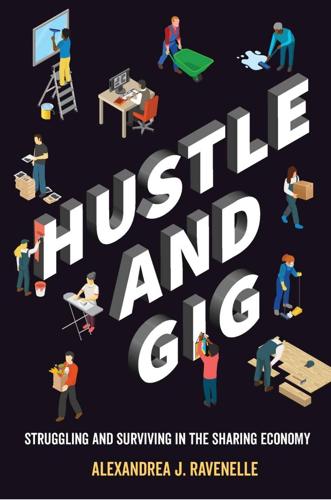
Hustle and Gig: Struggling and Surviving in the Sharing Economy
by
Alexandrea J. Ravenelle
Published 12 Mar 2019
Very successful gig economy workers may even manage to outsource their work—at least until the platforms ban such activities.23 With all of the outsourcing going on, it was perhaps just a matter of time before the criminal element also got involved. As part of the casualization of labor, work is being returned to the home. Between hiring a Kitchensurfing personal chef, using a TaskRabbit assistant to clean one’s home, and booking a driver via Uber, middle-class homes in New York City are beginning to oddly resemble the world of Downton Abbey, but with the addition of modern clothing and without the pesky need to personally house one’s servants.24 It’s true that for the wealthy, hiring help has long been a part of life, but the app-based gig economy has made it easier and cheaper for the middle class to hire servants.25 However, whereas an upper-class home with help often had multiple workers simultaneously who could share stories and advice, today’s gig economy workers are much more isolated.
…
Historically, servants were expected to keep the family’s secrets. In Not in Front of the Servants: A True Portrait of English Upstairs/Downstairs Life, Frank Dawes explains that “the upper class relied on the total discretion of those who served them, a trust that was rarely misplaced.”26 The implementation of a modern-day Downton Abbey workplace can leave workers uncertain of the protocols. What is expected of them? In modern society, many professionals are mandatory reporters, individuals who are required by law to report abuse. But in a servant economy, discretion rules the day. Where do gig workers fall in this dichotomy?
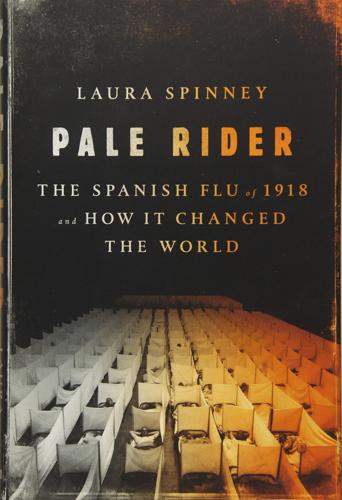
Pale Rider: The Spanish Flu of 1918 and How It Changed the World
by
Laura Spinney
Published 31 May 2017
In the twenty-first century–a century in which writers have firmly embraced illness as a subject worthy of treatment, alongside love, jealousy and battle–the Spanish flu has finally penetrated popular culture, providing plot lines for novels, movies and TV dramas.1 In the popular British TV series Downton Abbey, for example, three main characters catch Spanish flu in April 1919, and one dies of it. In 1921, American sociologist James Thompson compared the fallout of the Black Death with that of the First World War.2 The Spanish flu would arguably have been a more natural reference for comparison with the other plague, and yet only two years after it, it didn’t occur to him to use it.
…
.: ‘Social network sensors for early detection of contagious outbreaks’ 279–80 Christian Scientists 236 Christianity/Christians 115–16, 117, 134, 137, 205, 215, 224, 237, 258 see also Catholic Church; ‘Israelites, the’ chronic fatigue syndrome, post-flu 219 see also post-viral fatigue Churchill, Winston 243 cities: vulnerability to infection 202, 205 CLC see Chinese Labour Corps Clemenceau, Georges 250 Coffin, Eugene 144, 145, 147 coffins 47, 55–6, 73, 84, 110, 136, 227 ‘collective’ v. individual 98–9 ‘collective resilience’ 136, 137, 139 Collier, Richard 39, 77, 138, 230 The Plague of the Spanish Lady… 75 Columbus, Christopher 20–21 Commission on Creating a Global Health Risk Framework for the Future (GHRF) 275 Report (2016) 279 concentration camps 67, 245–6 Concepción, Chile 68 Connecticut, USA 202 Connelly, Mayme 146–7 conquistadors 21, 64 Constantinople: Hamidiye Children’s Hospital 67 Cook, Captain James 141 Cooper, John Milton, Jr 251 Copeland, Royal S. 86, 103–5, 108–9, 110, 111–12, 130, 235 Copeland, Royal S., Jr 87, 108–9 Corbusier, Le (Charles-Édouard Jeanneret) 123–4 Cordeiro, José Luís (Jamanta) 54 cordons sanitaires see ‘sanitary cordons’ Correio de Manh (newspaper) 54 Correo de Zamora, El (newspaper) 79, 81, 82, 83 Corriere della Sera (newspaper) 102 Cortés, Hernán 21, 22 cowpox vaccine 98 Crazy Horse, Chief 145 crime 100, 106, 127, 130, 136, 138, 139–40, 153, 155, 231, 233 Crosby, Alfred: America’s Forgotten Pandemic 43, 99, 262 ‘crowd diseases’ 16, 18–19, 23, 25 Cruz, Oswaldo 53, 268 Cuba 80 Cunard, Nancy 265 cytokines 192–3, 195, 217 Czechoslovakia 42, 267 Dakar, Senegal 49, 50 Dangs, the 203 Darwin, Charles: On the Origin of Species 28–9 De Beers Company 77 Defoe, Daniel: Journal of the Plague Year 136 dementia 220, 226, 242 Demerara, SS 41, 49–50 dengue fever 20, 67 Denmark 64, 201–2 depression 24, 264, 265 post-flu/post-viral 24, 218–20, 264, 265, 283 Desai, Dayalji 257, 259 De Simone, Raffaele 109–10 Diaghilev, Sergei 41 digitalis 123 Dillingham, Alaska 142, 143, 144, 146, 149, 190 disease surveillance systems 92–3, 96, 278, 279, 283 ‘disgust response’ 89–90 disinfectant, use of 97, 100 DNA 31, 184, 185, 201 Doane, Lt Philip S. 76 doctors 137–8, 240, 241, 243 Dodge, Captain Frederick 144, 145, 148 dogs 197 Don Juan 267–8 Don Juan Tenorio 267 Dos Passos, John 262 Downton Abbey (TV) 291 Doyle, Sir Arthur Conan 237 ‘drift’ 185, 196 ‘Dr Kilmer’s Swamp-Root’ 124 drugs 76, 121–3, 124 see also antibiotics Dublin 43 Duchamp, Marcel 3 ducks 18, 188–9, 199 Dujarric de la Rivière, René 172–3, 176, 177–9, 180, 181 Durban, South Africa 77, 204 Dyer, Brigadier General Reginald 259–60 dysentery 168, 169 Earhart, Amelia 218 Ebey, Adam 215 Ebey, Alice 215 Ebola 17, 18, 61, 90, 231, 275, 292 EC see European Commission Edel, Harold 105 Edgar, Robert 227 Egypt 19, 254 Einstein, Alfred 237 EL see encephalitis lethargica El Niño-Southern oscillation (ENSO) 276–7 electron microscopes 184, 190 micrograph of flu virus 272–3 electrons 184 elephants 89–90 Eliot, T.
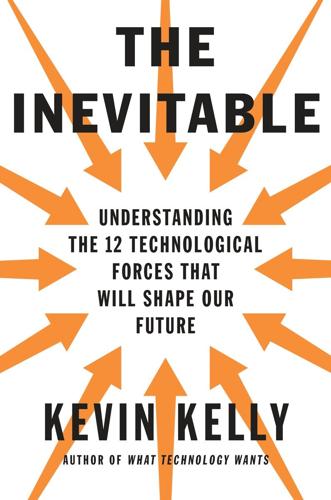
The Inevitable: Understanding the 12 Technological Forces That Will Shape Our Future
by
Kevin Kelly
Published 6 Jun 2016
Technologies that provided audiences with the ability to interact with stories and news—to time shift, play later, rewind, probe, link, save, clip, cut and paste—enabled long forms as well as short forms. Film directors started creating motion pictures that were not a series of sitcoms, but a massive sustained narrative that took years to tell. These vast epics, like Lost, Battlestar Galactica, The Sopranos, Downton Abbey, and The Wire, had multiple interweaving plotlines, multiple protagonists, and an incredible depth of characters, and these sophisticated works demanded sustained attention that was not only beyond previous TV and 90-minute movies, but would have shocked Dickens and other novelists of yore. Dickens would have marveled back then: “You mean the audience could follow all that, and then want more?
…
See also advertising commodity attention, 177–79 commodity prices, 189 communications and decentralization, 118–19, 129–31 and dematerialization, 110–11 and free markets, 146 inevitable aspects of, 3 oral communication, 204 and platforms, 125 complexity and digital storage capacity, 265–66 computers, 128, 231 connectivity, 276, 292, 294–95 consumer data, 256 content creation advertisements, 184–85 custom music, 77 early questions about, 17 and editors, 148–51, 152, 153 and emergence of user-generated content, 19, 21–22, 184–85, 269–74, 276 and Google search engines, 146–47 and hierarchical/nonhierarchical infrastructures, 148–54 impulse for, 22–23 and screen culture, 88 and sharing economy, 139 value of, 149 convergence, 291, 296 cookies, 180, 254 cooperation, 139–40, 146, 151 copper prices, 189 copying digital data and copy protection, 73 and creative remixing, 206–9 and file sharing sites, 136 free/ubiquitous flow of, 61–62, 66–68, 80, 256 generatives that add value to, 68–73 and reproductive imperative, 87 and uncopiable values, 67–68 copyright, 207–8 corporate monopolies, 294 coveillance, 259–64 Cox, Michael, 286–87 Craigslist, 145 Creative Commons licensing, 136, 139 crowdfunding, 156–61 crowdsourcing, 185 Cunningham, Ward, 135–36 curators, 150, 167, 183 customer support, 21 cyberconflict, 252, 275 dark energy and matter, 284 “dark” information, 258 Darwin, Charles, 243 data analysis and lifelogging, 250–51 “database cinema,” 200 data informing artificial intelligence, 39, 40 decentralization, 118–21 and answer-generating technologies, 289 and bottom-up participation, 154 and collaboration, 142, 143 of communication systems, 129–31 and digital socialism, 137 and emergence of the “holos,” 295 and online advertising, 182–85 and platforms, 125 and startups, 116–17 and top-down vs. bottom-up management, 153 Deep Blue, 41 deep-learning algorithms, 40 DeepMind, 32, 37, 40 deep reinforcement machine learning, 32–33 dematerialization, 110–14, 125, 131 diagnoses and diagnostic technology, 31–32, 239, 243–44 diaries and lifelogging, 248–49 Dick, Philip K., 255 diet tracking, 238 Digg, 136, 149 digitization of data, 258 directional sense, 243 discoverability, 72–73, 101 DNA sequencing, 69 documentaries, updating of, 82 domain names, 25–26 Doritos, 185 Downton Abbey (series), 282 drones, 227, 252 Dropbox, 32 drug research, 241 DVDs, 205 Dyson, Esther, 186 Eagleman, David, 225 e-banks, 254 eBay, 154, 158, 185, 263, 272, 274 ebooks and readers, 91–96 and accessibility vs. ownership, 112 advantages of, 93–95 bookshelves for, 100 fluidities of, 79 interconnectedness of, 95–96, 98, 99–100, 101–2, 104 and just-in-time purchasing, 65 liquidity of, 93 tagging content in, 98 and tracking technology, 254 echo chambers, 170 economy, 21, 65, 67–68, 136–38, 193 ecosystems of interdependent products and services, 123–24 editors, 148–51, 152, 153 education, 90, 232 Einstein, Albert, 288 electrical outlets, 253 email, 186–87, 239–40 embedded technology, 221 embodiment, 71, 224 emergent phenomena, 276–77, 295–97 emotion recognition, 220 employment and displaced workers, 49–50, 57–58 Eno, Brian, 221 entertainment costs, 190 epic failures, 278 e-retailers, 253 etiquette, social, 3–4 evolution, 247 e-wallets, 254 experience, value of, 190 expertise, 279 exports, U.S., 62 extraordinary events, 277–79 eye tracking, 219–20 Facebook and aggregated information, 147 and artificial intelligence, 32, 39, 40 and “click-dreaming,” 280 cloud of, 128, 129 and collaboration, 273 and consumer attention system, 179, 184 and creative remixing, 199, 203 face recognition of, 39, 254 and filtering systems, 170, 171 flows of posts through, 63 and future searchability, 24 and interactivity, 235 and intermediation of content, 150 and lifestreaming, 246 and likes, 140 nonhierarchical infrastructure of, 152 number of users, 143, 144 as platform ecosystem, 123 and sharing economy, 139, 144, 145 and tracking technology, 239–40 and user-generated content, 21–22, 109, 138 facial recognition, 39, 40, 43, 220, 254 fan fiction, 194, 210 fear of technology, 191 Felton, Nicholas, 239–40 Fifield, William, 288 films and film industry, 196–99, 201–2 filtering, 165–91 and advertising, 179–89 differing approaches to, 168–75 filter bubble, 170 and storage capacity, 165–67 and superabundance of choices, 167–68 and value of attention, 175–79 findability of information, 203–7 firewalls, 294 first-in-line access, 68 first-person view (FPV), 227 fitness tracking, 238, 246, 255 fixity, 78–81 Flickr, 139, 199 Flows and flowing, 61–83 and engagement of users, 81–82 and free/ubiquitous copies, 61–62, 66–68 and generative values, 68–73 move from fixity to, 78–81 in real time, 64–65 and screen culture, 88 and sharing, 8 stages of, 80–81 streaming, 66, 74–75, 82 and users’ creations, 73–74, 75–78 fluidity, 66, 79, 282 food as service (FaS), 113–14 footnotes, 201 411 information service, 285 Foursquare, 139, 246 fraud, 184 freelancers (prosumers), 113, 115, 116–17, 148, 149 Freeman, Eric, 244–45 fungibility of digital data, 195 future, blindness to, 14–22 Galaxy phones, 219 gatekeepers, 167 Gates, Bill, 135, 136 gaze tracking, 219–20 Gelernter, David, 244–46 General Electric, 160 generatives, 68–73 genetics, 69, 238, 284 Gibson, William, 214 gifs, 195 global connectivity, 275, 276, 292 gluten, 241 GM, 185 goods, fixed, 62, 65 Google AdSense ads, 179–81 and artificial intelligence, 32, 36–37, 40 book scanning projects, 208 cloud of, 128, 129 and consumer attention system, 179, 184 and coveillance, 262 and facial recognition technology, 254 and filtering systems, 172, 188 and future searchability, 24 Google Drive, 126 Google Glass, 217, 224, 247, 250 Google Now, 287 Google Photo, 43 and intellectual property law, 208–9 and lifelogging, 250–51, 254 and lifestreaming, 247–48 and photo captioning, 51 quantity of searches, 285–86 and smart technology, 223–25 translator apps of, 51 and users’ usage patterns, 21, 146–47 and virtual reality technology, 215, 216–17 and visual intelligence, 203 government, 167, 175–76, 252, 255, 261–64 GPS technology, 226, 274 graphics processing units (GPU), 38–39, 40 Greene, Alan, 31–32, 238 grocery shopping, 62, 253 Guinness Book of World Records, 278 hackers, 252 Hall, Storrs, 264–65 Halo, 227 Hammerbacher, Jeff, 280 hand motion tracking, 222 haptic feedback, 233–34 harassment, online, 264 hard singularity, 296 Harry Potter series, 204, 209–10 Hartsell, Camille, 252 hashtags, 140 Hawking, Stephen, 44 health-related websites, 179–81 health tracking, 173, 238–40, 250 heat detection, 226 hierarchies, 148–54, 289 High Fidelity, 219 Hinton, Geoff, 40 historical documents, 101 hive mind, 153, 154, 272, 281 Hockney, David, 155 Hollywood films, 196–99 holodeck simulations, 211–12 HoloLens, 216 the “holos,” 292–97 home surveillance, 253 HotWired, 18, 149, 150 humanity, defining, 48–49 hyperlinking antifacts highlighted by, 279 of books, 95, 99 of cloud data, 125–26 and creative remixing, 201–2 early theories on, 18–19, 21 and Google search engines, 146–47 IBM, 30–31, 40, 41, 128, 287 identity passwords, 220, 235 IMAX technology, 211, 217 implantable technology, 225 indexing data, 258 individualism, 271 industrialization, 49–50, 57 industrial revolution, 189 industrial robots, 52–53 information production, 257–64.
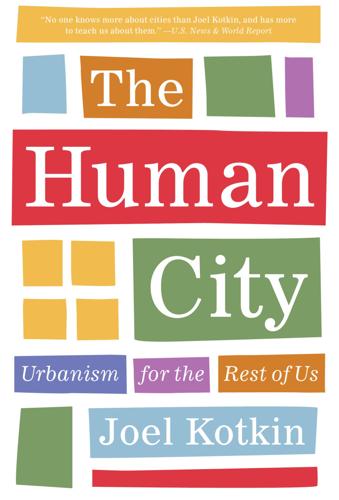
The Human City: Urbanism for the Rest of Us
by
Joel Kotkin
Published 11 Apr 2016
The loss of these industries has accelerated the growth of inequality, with many blue-collar workers in suddenly “hip” neighborhoods such as Williamsburg often finding themselves forced out of the city by a difficult admixture of high rents and reduced opportunities.86 As I touched on in previous chapters, we are beginning to see—in the most successful global cities in particular—an era reminiscent of the Victorian period, when a huge proportion of workers labored in the servile class. Social historian Pamela Cox explains that in 1901, one in four people, mostly women, were domestic servants. This is the world so popularly portrayed in TV shows such as Downton Abbey and Upstairs, Downstairs, but is this the social form we wish to promote?87 Today, as opportunities for middle-class families disappear, more people are earning a living serving the wealthy and their needs as nannies, restaurant employees, dog walkers, and other service workers. This can be seen, for example, in the city of New York, where over one-third of workers labor in low-wage service jobs, a portion that has increased steadily throughout the economic recovery, according to a recent study by the Center for an Urban Future.88 Another key driver of the new global city is the abundance of inherited and rentier wealth.
…
de CASTELLA, Tom. (2011, October 25). “Eight radical solutions to the housing crisis,” BBC News Magazine, http://www.bbc.com/news/magazine-15400477. de LACEY, Martha. (2012, September 25). “The REAL Story of Britain’s servant class,” Daily Mail, http://www.dailymail.co.uk/femail/article-2207935/Downton-Abbey-servants-New-BBC-series-Servants-The-True-Story-Life-Below-Stairs.html. de PAULO, Bella. (2006). Singled Out: How Singles are Stereotyped, Stigmatized and Ignored, and Still Live Happily Ever After, New York: St. Martins/Griffin. de VRIES, Jan. (1984). European Urbanization 1500-1800, London: Routledge.
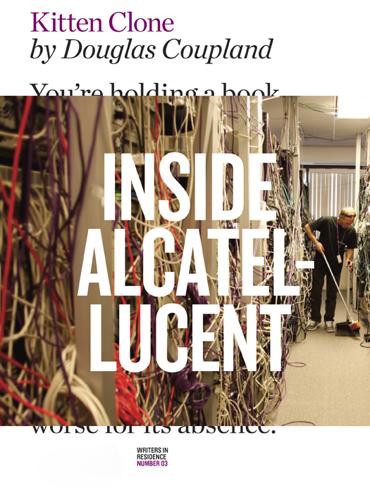
Kitten Clone: Inside Alcatel-Lucent
by
Douglas Coupland
Published 29 Sep 2014
I’ve noticed something else: to people born before 1945, a phone call after about 8:00 in the evening creates a sense of dread—it could only be terrible news. Similarly, a paper letter in one’s postal mailbox from a friend or relative can be actually kind of disturbing: Have they gone off their meds? Is there something psycho inside the envelope? But speed, be it physical or optical—a TGV ride into Paris or Season Two of Downton Abbey shooting into your Dell—is, if nothing else, addictive. We all know the feeling, after using a new computer for a few weeks, of staring with pity at our previous computer, knowing to the very core of our beings that we could never go back to using that old laptop ever, ever, ever again. Speed is irreversibly addictive.
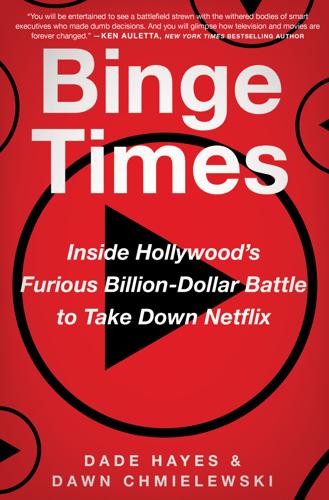
Binge Times: Inside Hollywood's Furious Billion-Dollar Battle to Take Down Netflix
by
Dade Hayes
and
Dawn Chmielewski
Published 18 Apr 2022
The nationwide stay-at-home orders, however, created what NBCU recognized as a once-in-a-century opportunity for media companies, as Nielsen reported a 60 percent spike in streaming across the country. Strauss and Shell hoped to meet this demand by throwing open its film and television vaults. Peacock would offer 7,500 hours of movies and television shows—including dramas like Downton Abbey and Law & Order: Criminal Intent; comedies like Parks & Recreation and 30 Rock; popular films like Jurassic Park, The Bourne Identity, and The Matrix; and the current season of reality shows like Undercover Boss. For an extra $4.99 a month, subscribers would get twice as much to watch, including current prime-time shows such as Law & Order: SVU and the trilogy of Chicago-based dramas, Chicago P.D., Chicago Fire, and Chicago Med; comedies like Saturday Night Live and late-night talk shows, including The Tonight Show with Jimmy Fallon; Spanish-language programs from NBC-owned Telemundo; and a broader selection of films, including Shrek, Ted, and Forgetting Sarah Marshall.
…
See also NBCUniversal acquisition of NBCUniversal, x, 84, 124–32 acquisition of Sky, 96, 128–29, 131–32, 307 Disney and, 126–27, 152, 176 streamatis personae, x TV Everywhere, 83, 84 Xfinity, 101, 123–24, 198, 199, 248 Comedy Central, 144, 221 Coming 2 America, 265, 298 Community, 137–38, 266 Conjuring, The: The Devil Made Me Do It, 305 Connelly, Tim, 116 Consumer Electronics Shows, 56–57, 116 Conway, Ron, 99 Cook, Tim, ix, 6, 100, 103–4, 105, 178–79, 259 Cooper, Morgan, 113 Coppola, Francis Ford, 156 Coppola, Sofia, 103 Cosby Show, The, 212 Cotillard, Marianne, 265 COVID-19 insurance, 275 COVID-19 pandemic, xiii–xx, 31, 110, 188, 192, 230, 244, 249–50, 251, 257, 271–72, 284–85 COVID-19 vaccines, 285 Crackle, 140 Crawford, Joan, 29 Crawford, Katherine, 46 Crazy Rich Asians, 253, 304 Crédit Lyonnais, 299 Criterion Collection, 156–57 Crown, The, 56, 75, 98, 159–60, 184, 237 Crudup, Billy, 6–7, 10, 98, 247 Cruella, 278, 305 Cruise, Tom, 283 Crunchyroll, 156, 221 CSI: Crime Scene Investigation, 143 Cuarón, Alfonso, 32, 156, 233 Cuban, Mark, 23, 255 Cue, Eddy, ix, 10, 100, 101, 102, 133–34, 179–82, 184–85 Cukor, George, 29 Cuoco, Kaley, 282 Curai, 49 Cuse, Carlton, 152 Daily Chill, The, 119 Daily Essentials, 116, 118, 119 Damon, Matt, 295 Dancing with the Stars, 243 Daniel, Kareem, xi, 277–78 Dark, 233 Da Vinci Code, The, 192 Davis, Colin, 114 DAZN, 135, 141 DC Universe, 156 Deadline, xvii, 288, 295 Dean, Howard, 53 Dear Evan Hansen, 213 Dear White People, 278 Death on the Nile, 272 Defending Jacob, 104 DeGroff, Dale, 204 Delrahim, Makan, 63 Del Toro, Guillermo, 113, 156 Demimonde, 223 De Niro, Robert, 11–12, 15–16, 302, 310 Denson, Denise, 87 Desperate Housewives, 79, 80, 82 DeVillier, Lauren, 311 DiCaprio, Leonardo, 12, 31, 156, 260, 310 Dick, Kirby, 186 Dick, Philip K., 295, 296 Dickinson, 104, 179, 245 Die Hart, 118 Diller, Barry, 108–9 Dinklage, Peter, 61, 77 Diop, Mati, 15 DirecTV, 62, 123, 134, 218–20, 289 Discovery, 5, 128 acquisition of Scripps, 131, 306 proposed merger with WarnerMedia, 289–90, 303, 306–8, 313–14 Discovery+, 307–8 Dishmantled, 118 Dish Network, 89, 123 Disney (Walt Disney Company), 5, 78–96, 271–80 acquisition of 21st Century Fox, 63, 95–96, 128–29, 131, 152, 168–70, 306 acquisition of Capital Cities/ABC, 78–83, 107, 122, 126 alliance with Apple, 78, 79–81, 83–84, 173 ClassPass, 311 COVID-19 pandemic and, 271–72, 275–76, 277, 278 deal with Hulu, 63, 88, 95, 131, 145, 150–53, 168, 318 digital wake-up call, 79–84 Go Network, 90–91 Investor Days, 103–4, 167–68, 177, 208, 211, 223, 277, 278 NBCUniversal and, 126–27, 307 Netflix and, 50–51, 79, 87–89, 126, 160, 175–76, 230–31, 234–35, 317–18 streamatis personae, xi streaming, 79–96, 124, 135–36, 167–77, 272–80, 308 TV Everywhere, 83–88 Disney, Walt, 147 Disney+, xviii, 152, 167–77, 196, 216, 230–31, 272–80, 308–9, 317–18 launch difficulties, 241–44 Premier Access, 260, 276–77, 279, 305 subscribers, 175–76, 190, 210–11, 244, 252–54, 260, 279, 305, 317 Disney Consumer Products, 277 Disney Cruise Line, 176 Disney FastPass, 274 Disneyland, xiii, 176, 243, 271–72 DisneyLife, 93–94 Disney Vacation Club, 243 Disney Vault, 273–74, 278 DisneyWar (Stewart), 90 Dockery, Michelle, 104 Dr. Brain, 317 Dr. Death, 204 Dr. Dre, 8, 101–2 Dog Day Afternoon, 36 Dolan, Charles, 66–67, 121–22 Dolan, James, 66 Dolgen, Jonathan, 25 Donovan, John, 154 Don’t Look Deeper, 118 Dornan, Jamie, 204 dot-com bubble, 23, 35, 52, 125 Downton Abbey, 248 Dragnet, 169 DreamWorks Animation, xviii, 108, 109, 110, 112, 193, 195, 251 Driver, Adam, 265 Droga5, 161 Du Maurier, George, 22 Dummy, 109, 113–14, 114 Dunaway, Faye, 207, 295 Dune, 285, 286 Duplass, Mark, 6–7 E!, 128, 202 Eastwood, Clint, 37, 286, 288 eBay, xviii, 112 Eden Productions, 184 Ehrenreich, Alden, 198 Ehrin, Kerry, 9 Eichner, Billy, 243 Eilish, Billie, 245 Einstein, Albert, 38 Eisenberg, Lee, 185–86 Eisner, Michael, xi, 81, 90, 91, 311 Eko, 190 Elba, Idris, 113, 252 Electronic Frontier Foundation, 22 Ellenberg, Michael, 7 Elliott Management, 218 El Mariachi, 266 Emancipation, 260 EMI Music, 181 Emmerich, Toby, 305 Emmy Awards, 4, 13, 32, 61–62, 68, 76, 102, 114, 151, 161, 184, 189, 230, 247, 248, 290, 300 Encore!
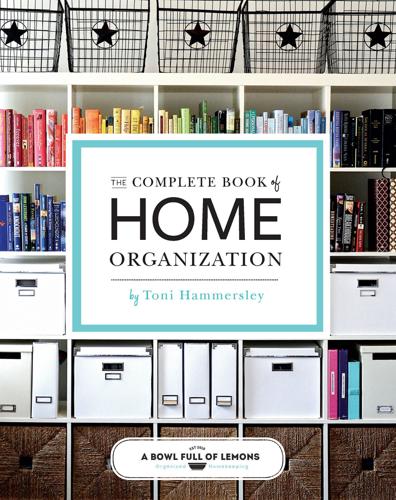
The Complete Book of Home Organization: 336 Tips and Projects
by
Abowlfulloflemons.com
and
Toni Hammersley
Published 5 Jan 2016
Experiment with what works in your home. 057 THROW A DINNER PARTY IN A SMALL SPACE Having a tiny house or even living in a studio apartment shouldn’t stop you from throwing a fun dinner party—whether or not you have a dining room, or even a dining room table. Your friends know you have a small space, and they won’t be expecting a Downton Abbey–style dinner layout. So if you love to entertain, don’t let a small space hold you back! Here are some hints to make it a snap. MAKE ROOM Create a space for the party. This may mean rearranging furniture, or even stashing some pieces out of sight (like hiding a coffee table or a big armchair in the bedroom).
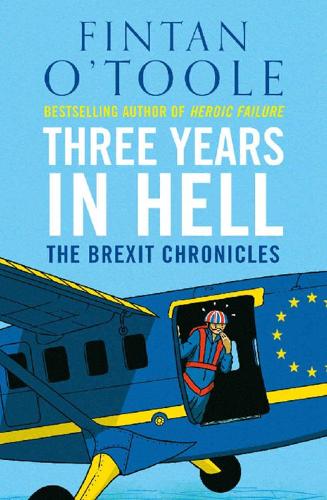
Three Years in Hell: The Brexit Chronicles
by
Fintan O'Toole
Published 5 Mar 2020
He has a streak of Churchill’s brilliant opportunism and reckless charm, but he does not have behind him the national consensus that an existential struggle created behind Churchill and he is, in everything but girth, a lightweight. It is not even clear that the Brexit coalition can itself hold together in any meaningful way. It is, after all, a weird conjunction. Brexit is not so much a peasants’ revolt as a deeply strange peasants’ – and – landlords’ revolt. It is a Downton Abbey fantasy of toffs and servants all mucking in together. But when the toffs, as the slogan goes, ‘take back control’, the underlings will quickly discover that a fantasy is exactly what it is. The disaffected working-class voter in Sunderland, rightly angry about being economically marginalised and politically disenfranchised, will wait in vain for the magical billions that are supposedly going to be repatriated from Brussels to drop from the clear blue skies of a free England.
…
And it benefits younger, healthier, better-off people in cities – most of whom voted for Hillary Clinton. If this is populist, tattoo a gorilla on my chest and call me Conor McGregor. The truth, of course, is that the Trump administration’s policies of transferring unprecedented amounts of money and power from the poor to the ultra-rich are so elitist they make Downton Abbey look like Shameless. Exactly how Brexit will play out is less obvious for now. But there is little doubt that, when the dust settles, many of the JAMs will not be managing at all. Economic insecurity and inequality will rise still further. The nonpartisan Institute for Fiscal Studies reckons real median incomes will not grow at all in the next two years.
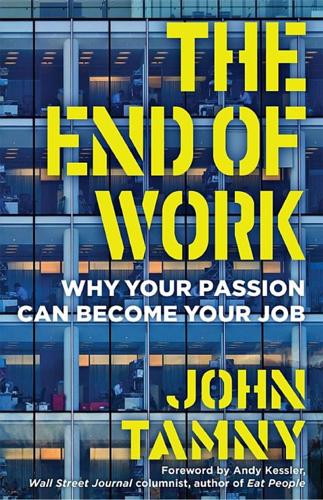
The End of Work: Why Your Passion Can Become Your Job
by
John Tamny
Published 6 May 2018
Henson (Empire—Fox). Of the twelve nominees in that major category, only two were from the four major networks. Of the seven nominees for best comedy, just two were network shows—Modern Family and Black-ish (both ABC properties). It was even worse in the category of best drama. Other than PBS’s Downton Abbey, none of the shows nominated aired on the traditional networks.32 We’re seeing with television what we saw with restaurants: as our society becomes more affluent, stimulating the demand for what were once luxuries—like high-quality television you have to pay for—producers will emerge to meet that demand, catering to all ages and tastes.
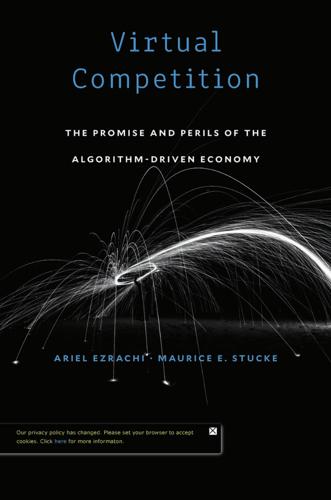
Virtual Competition
by
Ariel Ezrachi
and
Maurice E. Stucke
Published 30 Nov 2016
As the remaining parts of this book explore, variants of these traditional anticompetitive scenarios may develop—with a vengeance. 1 The Promise of a Better Competitive Environment T ODAY, with a few taps on our smartphone, tablet, or computer, we can discover an array of products, reviews, and prices. The Internet has made our world smaller. After watching an entire season of Downton Abbey on Amazon Prime, you could, without leaving your home—whether in Oxford, Mississippi, or Oxford, U.K.—aspire to the British aristocracy, buying your Barbour hunting jacket and Hunter boots from a U.K. merchant, your Range Rover from a dealership several hundred miles away, your Rhodesian Ridgeback from a California kennel, your summer rental in the Lake District from a family through Airbnb, and Wordsworth’s poems and a sketchpad from Amazon.com.
…
Google also dominates through its search engine “direct response” advertising, “which is the kind of ad that pops up when we are searching for an airline ticket, a new laptop or any other purchase.”5 So, as we saw in the preceding chapters, the super-platform may try to influence our decision while we undertake each step in ordering takeout. The Future of Frenemy 193 Now imagine a new technology that can enable us to accomplish so much more with the assistance of artificial intelligence. Our personal assistant reduces the number of steps we take, online and offl ine. Imagine you lived in an estate—like Downton Abbey. You would not want the butler to direct you to the livery of junior servants for each request you make. The butler instead anticipates your wants, and quietly orchestrates the servants to fulfill these tasks. Your shoes are already polished; the coffee with the right amount of sugar and cream is beside the freshly squeezed juice.
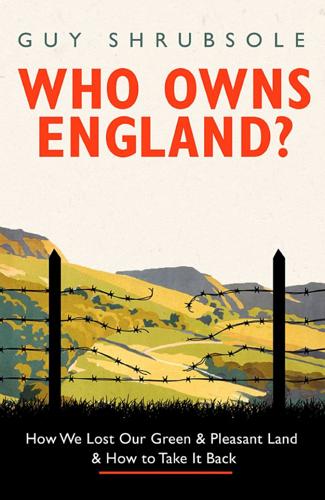
Who Owns England?: How We Lost Our Green and Pleasant Land, and How to Take It Back
by
Guy Shrubsole
Published 1 May 2019
As the new bypass was likely to fill up within a few years, he suggested that a second road should also pass through the estate.’ Other landowners along the route of the road were similarly craven. The Earl of Carnarvon, owner of Highclere Castle to the south of Newbury – made famous as the setting of the series Downton Abbey – told conservationist Charles Clover that ‘he had been behind a bypass for the past 40 years’, but admitted that he ‘did not know how much his son, Lord Porchester, had received for the sale of the site of a service station on the proposed new bypass.’ To Clover, ‘the saga of the Newbury bypass is about more than a road … It raises questions about whether we place sufficient value on our country’s human and natural history.’
…
You can use your ebook reader’s search tool to find a specific word or passage. 38 Degrees 42 57 Whitehall SARL 147 Abbeystead, Lancashire 97 Abdullah, Prince Khalid 123 Abramovich, Roman 125, 127 Abu Dhabi 122 Access to Mountains Act (1939) 251 Acland Committee (1916) 172 Acland, Sir Richard 242 Adams, Richard, Watership Down 257 Addison, Christopher 154, 227 Afolami, Bim 231 agriculture: effect of industrialised practices on 11; farm subsidies 39–40, 106–7, 274, 278, 282, 306–7; organic 12–13; use of pesticides 11–12, 13 Air Ministry 160, 162 Al-Fayed, Mohamed 120–1 Al-Maktoum, Rashid bin Saeed, Sheikh of Dubai 121 al-Maktoum, Sheikh Mohammed bin Rashid, Emir of Dubai 121–2, 123 Al-Tajir, Mahdi 121 al-Yamamah arms deals 124 Albanwise Ltd 37 Albert, Prince 46 Alderley Edge, Cheshire 131 Aldermaston 13 Alfriston, Sussex 240 allotments 223, 224–5, 226, 286 Allotments Acts (1887 & 1908) 30, 225, 286 Alnwick Castle 76 Alton Towers, Derbyshire 100–1 Amazon 191 Anglo-Saxon Chronicle 26 Anstruther, Sir Sebastian 249 Arago Ltd (Jersey) 122, 301 Arat Investments (Guernsey) 122, 303 Argentina 116–17 aristocracy: apparent decline 84–7; benefits of land ownership 79–80; bloodsports 95–8, 106, 108; challenges facing 280; coal mining and fracking 90–1; dilution of wealth and power 113, 119; estimates of land ownership 87–8, 266–7; extent of land ownership 75–7; farming subsidies 106–7; formation and acquisition of estates 77–80, 107, 270–1; hereditary titles 81–3; land owned by dukes 306–7; and male primogeniture 80–1, 281; newcomers 83; parkland 88–9; rental income and urban estates 92–5, 108; as stewards of the landscape 89–90; taxation and death duties 98–106, 107–8 Arlington, Napier Sturt, 3rd Baron 160, 161, 163 arms deals 123–4 Arundel 76 Arundel, Earls of 76 Ashworth, Lindsey 184 Assynt Estate, Sutherland 116 Astor, Charles John 118n Astor family 18, 118 and note Astor, James Alexander Waldorf 118n Astor, Nancy 118 Astor, Robert 118n Astor, William, 4th Viscount 118 Astor, William Waldorf, 1st Viscount 118 Atomic Weapons Establishment 169; Burghfield 13; Orford Ness 170–1 Attlee, Clement 228, 243, 275 Avery, Mark 98, 280 Badanloch, Sutherland 117 Badgworthy Land Company 249, 302 BAE Systems 124, 190 Baggini, Julian 235 Balmoral 46, 47, 51, 97 Balnagown, Easter Ross 121 Bandar, Prince 124 Banks, Catherine 42 Barbour, Mary 227 Barclays Bank 192 Barnett, Anthony 36 Barrington Court, Somerset 240 Barron, Gill 67 Bateman, John: The Acre-Ocracy of England 30; The Great Land-Owners of Great Britain and Ireland 30 Bath, Henry Thynne, 6th Marquess 101 Bathurst, Allen, 9th Earl 103 Bayer 12 the Beatles 212 Beckett, Andy 14–15 Beckett, John 85 Beckett, Matthew 100 Beckett, Sir Richard 248n Bedford, Andrew Russell, 15th Duke 91 Bedford, Ian Russell, 13th Duke 101 Bedgebury Estate, Kent 173 Beeching, Dr Richard 178–9 bees 12, 13 Beke, Dr 28 Bell, Steve 224 Bellingham, Sir Henry 21 Belvoir Castle, Leicestershire 88 Benn, Tony 63 Bentley, Daniel 230 Benyon, Richard 19–21 Berezovsky, Boris 126 Berkhamsted Common 215 Bevan, Aneurin ‘Nye’ 228 Biffa 194 Biological Weapons Convention (1972) 168 Birkenhead 70 Birmingham Back-to-Backs 243 Black Prince (Edward of Woodstock) 58 Blackfriars Holdings Ltd 68 Blagdon Estate, Northumberland 90–1 Blair, Tony 36, 106, 124, 132, 206 Blatchford, Robert: Land Nationalisation 229; Merrie England 229 Blavatnik, Sir Len 135 Bledisloe, Charles Bathurst, 1st Viscount 99 Blickling Estate, Norfolk 242 Bloomberg, Michael 111 Blue Star Line 115 Bodiam Castle, Sussex 241 Bodmin Moor 59 Boles, Nick 231 Bollihope grouse moor, North Pennines 122 Bolton Abbey 97 Bonham-Carter, Victor 173 Borisovich, Roman 128 Boughton, John 227 Bowes Moor, County Durham 168 Boyne, Gustavus Hamilton-Russell, 11th Viscount 248n Brand, Russell 19 Brand, Stewart 41 ‘Breckland exodus’ (1942) 158 Brexit 40, 64, 107, 130, 278 Brideshead Revisited (ITV series, 1981) 105 Briggs, Raymond, When the Wind Blows 143 Bright, John 222 Bristol 78 British Coal 180 British Overseas Territories 129, 274 British Virgin Islands 38, 68, 109, 118, 126, 129, 131 Brodrick, George 30 Brooke, Rupert 155 Brooks, Rebekah 132 Brooks, Richard 188 Brougham, Lord 28 Brown, Lancelot ‘Capability’ 78, 89 Bryant, Chris 88 Buckenham Tofts 158 Bureau of Investigative Journalism 192 Burke’s Peerage 82 Burnt Common, Berkshire 20 Burrell, Sir Charles 260 Burton-upon-Trent 56 Bush, M.L. 92 cadastral maps/surveys 27–8, 273 Cade, Jack 219 Cadogan, Charles, 8th Earl 94 Caesar, Ed 126 Cahill, Kevin 66; Who Owns Britain 4, 86 Callaghan, James 230, 257 Cambridgeshire 226 Cameron, David 20, 118, 132, 146, 176, 181 Cameron, Samantha 118 Campaign for Freedom of Information (1984) 36 Campaign for Nuclear Disarmament (CND) 13 campaigning organisations 307–8 Campbell, Duncan 14, 140, 143; War Plan UK 143 Candy Brothers 111 Cannadine, David 84, 101; The Decline and Fall of the British Aristocracy 84 Cannock Chase, Staffordshire 50 Canute, King 62 CAP see EU Common Agricultural Policy Carlisle 91 Carlisle, George Howard, 13th Earl 105 Carnarvon, George Herbert, 8th Earl 9–10 Carphone Warehouse 131, 248 and note Carroll, Lewis, Alice in Wonderland 9 Carson, Rachel, Silent Spring 167, 257 Castle Howard, North Yorkshire 105 Cayman Islands 18, 103, 274 Census 27, 29 Centre for Policy Studies 276 Chamberlain, Joseph 222–3, 225; The Radical Programme 223 Chamberlain, Neville 156, 195 Chanctonbury Ring, South Downs 251 Channel Islands 37, 38, 46, 68, 103, 119, 121, 122, 123 Charles I 26, 52, 211 Charles, Prince ‘Bonnie Prince Charlie’ 65 Charles, Prince of Wales 58, 59–60, 281 Charter 88 36 Charter of the Forest (1217) 50–1 Charterville, Oxfordshire 221 Chartist Co-operative Land Society 221 Chartist Land Company 221 Chartist Land Plan 220–1 Chartists 220, 222 Chatsworth House, Derbyshire 88, 97 Chelsea Football Club 125 Chesham, John Cavendish, 5th Baron 142 Cheshire 56, 75 Chipping Norton set 132 Cholmondeley, David, 7th Marquess 46, 103 Christophers, Brett 179, 284 Church Commissioners 68–72, 94, 298 Church lands 27, 72–3, 265, 283, 297, 298; financial management of 68–72; glebe land 65–8, 72; historical background 64–5; and housing crisis 72; loss of 66–8; mineral rights and fracking 71–2 Churchill, Winston 1, 2, 3, 24, 33, 139, 140, 141, 157, 158, 160; The People’s Rights 31 City of London 103, 193 City of London Corporation 215, 256 Civil List 52–3, 54 Civitas 230, 276, 308 CLA see Country Land and Business Association ClampK lobby group 125 Clare, John 78 Clarion cycling clubs 251 Clark, Kenneth, Baron 103 Clayton, Steve 226 ClearChannel 193 Clifton-Brown, Geoffrey 21 Cliveden House, Berkshire 101, 118 Clover, Charles 10 Cobden, Richard 222 Cold War 13–15, 24, 34, 36, 133, 137, 143, 147, 148, 159 Cole, Marilyn 120 Coleridge, Samuel Taylor 244 College of Arms 82 College Valley 248 common land 213–17 Common Wealth Party 242 Commons Preservation Society 214, 232, 238 Community Infrastructure Levy 231 Community Land Trusts 287 Community Right to Buy 217, 287 Companies House 37, 41, 196 Compton Wynyates, Warwickshire 102 Conservatives, Conservative Party 20, 29, 31, 32, 39, 42, 95, 104, 105, 118, 176, 206, 209, 226, 230, 231 Constable of the Graveship of Holme 216 Corbyn, Jeremy 224 Cormack, Patrick, Heritage in Danger 104 corporate land ownership 183–7, 283–4; data concerning 187–93, 299–305; effect on housing crisis 197–203; landfill 193–7 Cory Environmental 194 Costain 10 Council for the Preservation of Rural England (CPRE) 173, 231, 276 Country Land and Business Association (CLA) 86–7, 99 and note, 100, 107, 266, 270, 278 Countryside Alliance 106 and note Countryside and Rights of Way (CRoW) Act (2000) 17, 252, 259, 288 County Durham 70–1 County Farms 178, 223, 225–6, 232 County Farms Estate 225 Cowdray Estate 117–18, 303 Cowdray, Michael Pearson, 4th Viscount 91, 118 Cowdray, Weetman Dickinson Pearson, 1st Viscount 117–18 CPRE see Council for the Preservation of Rural England Crag Hall estate, Peak District 41 Cranborne Chase (southern England) 50 Cranborne Manor, Dorset 103 Crichel Down, Dorset 160–3 Criminal Justice Act (1994) 25 Cripps, Stafford 243 Cromwell, Oliver 26, 52, 211, 220 crony capitalists 125–9 CRoW Act see Countryside and Rights of Way Act Crown Estate 72–3, 94, 149, 174, 265, 267, 282; background 46–8; as commercial institution 53–4; and forest law 49–51; land ownership 297, 298; and the Norman Conquest 48–9; and reorganisation of the royals’ finances 54–5; royal residences and parks 61–2; and the seabed 54 and note; Stuart and Georgian holdings 52–3; suggested merging of Duchies into 282; taxes payable 57, 58, 60; and the two Duchies 55–61 Crown Estate Act (1961) 46 The Crown (Netflix series) 88 Culden Faw, Henley-upon-Thames 131 Cunningham, Alex 55 Cunningham, John 122 Curzon, Nathaniel, 1st Marquess 240–1 Cutler, Karen 14 Dacre, Paul 131 Dahl, Roald, Danny the Champion of the World 95 Daily Express 61, 236 Daily Mail 131, 207, 208, 213, 244, 247 Daily News 99 Daily Telegraph 117, 198, 202 Dalton, Hugh 243 Darkest Hour (film, 2017) 141 Dartmoor 59, 149, 157, 248 Davidson, Duncan 131 Davies, Mary 93 Dawson, Robert 27 Debrett’s 82 Defence of the Realm (Acquisition of Land) Bill (1916) 154–5 Defence Science and Technology Laboratory (DSTL) 163, 166 DEFRA see Department for Environment, Food and Rural Affairs Delesius Investments Ltd 127 Department for Culture, Media and Sport 62 Department for the Environment 268 Department for Environment, Food and Rural Affairs (DEFRA) 21, 87, 261 Derby, Edward Stanley, 15th Earl 29, 41, 79 Derby, Edward Stanley, 18th Earl 101 Derby, Edward Stanley, 19th Earl 41 Deripaska, Oleg 126 ‘The Destruction of the English Country House’ (V&A exhibition, 1974) 104 Devon Great Consols 91 Devonshire, Edward Cavendish, 10th Duke 250 Devonshire, Peregrine Cavendish, 12th Duke 91, 97, 102 Dick, Philip K., The Man In The High Castle 140 Dickens, Charles: A Tale of Two Cities 112; Great Expectations 255 ‘Dig for Victory’ 33 the Diggers 78–9, 210–13, 214, 215, 216, 232 Diocesan Boards of Finance 66 Director of Public Prosecutions 34 Domesday Book (1086) 25–6, 43, 49, 64, 76, 77, 269 Domesday Office 32 Doré, Gustav 214 Dorset, Maiden Castle 59 Douglas-Home, Alec 102 Dover 235–7 Dover Immigration Removal Centre 236–7 Downe, Richard Dawnay, 12th Viscount 248n Downton Abbey (TV series) 9 Drax, Richard (Richard Grosvenor Plunkett-Ernle-Drax) 21 Driver, Alasdair 247, 280–1 Drove Committees 216 Dubai, Sheikh of 111 Duchy of Cornwall 55, 58–61, 149, 248, 265, 282, 298 Duchy of Lancaster 51, 55–7, 60–1, 248 and note, 265, 282, 298 Dugdale, Thomas 161 Dungeness 255 Dunn, Chido 127 Dunn, George 226 Durant-Lewis, John 158 Durham 70–1 Durham, Edward Lambton, 7th Earl 81 Dyson, Sir James 39, 130 Earl’s Court Farm Ltd 11 EarthFirst!

England: Seven Myths That Changed a Country – and How to Set Them Straight
by
Tom Baldwin
and
Marc Stears
Published 24 Apr 2024
Just 4,000 families owned more than half the land in England, while 95 per cent of people owned nothing at all. The neat hedgerows and empty moorland that for so many defines the beauty of English countryside are also symbols of the cruelty by which rich landowners enclosed common land and ordered clearances of people’s homes to make way for sheep. For all today’s Downton Abbey nostalgia, the largest estates operated in almost feudal fashion with vast staffs of domestic servants bound by the most rigid and petty class distinctions. Almost a third of all English women in employment were servants, a whole way of life that now exists only in almost parody form within a few households like that of the royal family.27 But the myth of a ‘Merrie’ and little England prevailed nonetheless.
…
Publicity brochures claimed visitors preferred the new look because ‘Blackpool’s gone all continental’.8 For some, this was just another example of the deracinated globalisation they felt had marginalised England’s working class since the days of Margaret Thatcher and Tony Blair. But others saw it as a further commercial opportunity for cultural expropriation. The deck chairs were bought by the Stripes Company, a Cheshire-based business that supplied lawn furniture for the stately home TV drama Downton Abbey. The firm then refurbished Blackpool’s old deck chairs, preserving ‘the integrity of the original patina’, before renting them out and selling them on as heritage items, either with their authentic worn plastic covers into which generations of bottoms had once sweated or with ‘new luxury fabric’.
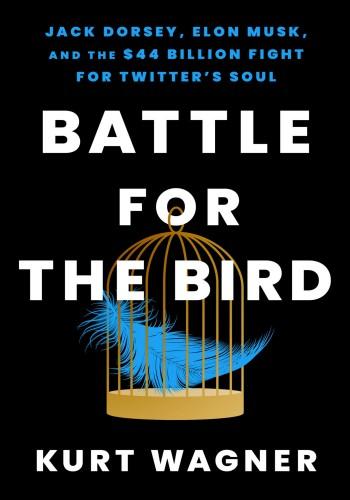
Battle for the Bird: Jack Dorsey, Elon Musk, and the $44 Billion Fight for Twitter's Soul
by
Kurt Wagner
Published 20 Feb 2024
A very slim Kim Kardashian was in attendance after losing sixteen pounds in just three weeks so that she could fit into the actual dress worn by Marilyn Monroe in 1962 when she sang “Happy Birthday” to President John F. Kennedy. The year before at the Met Gala, Congresswoman Alexandria Ocasio-Cortez wore a white dress with the words “Tax the Rich” written in bright red on the back. Compared to the rest of the attendees, Musk looked both sharp and rather boring, “like I’m from Downton Abbey or something,” he said. As the new owner of Twitter, though, there was arguably no one in attendance more intriguing. It had been exactly one week since his $44 billion deal was announced, and Musk held court alongside Maye with a gaggle of red-carpet reporters. “I admire good style so we’re just going to walk around and sort of see the great outfits,” he said.
…
wore a white dress with the words “Tax the Rich” written in bright red on the back: Christi Carras, “AOC Defends Polarizing ‘Tax the Rich’ Met Gala Dress: ‘The Medium Is the Message,’ ” Los Angeles Times, September 14, 2021, https://www.latimes.com/entertainment-arts/story/2021-09-14/met-gala-2021-aoc-tax-the-rich-dress. “like I’m from Downton Abbey or something”: Jada Yuan, “In Austere Times, the Met Gala Returns to ‘Gilded’ Era,” Washington Post, May 3, 2022, https://www.washingtonpost.com/lifestyle/2022/05/02/met-gala-gilded-age-2022/. “I admire good style so we’re just going to walk around and sort of see the great outfits”: NBC New York, “Elon Musk at 2022 Met Gala: ‘I Love Fashion,’ ” YouTube, 2022, https://www.youtube.com/watch?
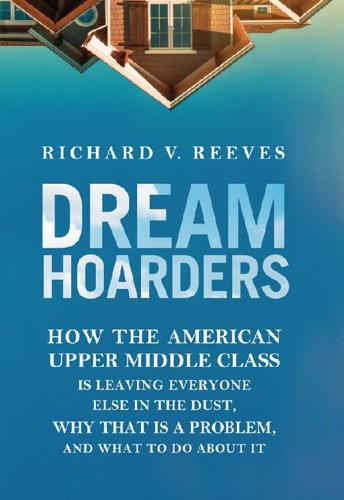
Dream Hoarders: How the American Upper Middle Class Is Leaving Everyone Else in the Dust, Why That Is a Problem, and What to Do About It
by
Richard V. Reeves
Published 22 May 2017
George Orwell noted the lack of “servile tradition” in America; German socialist Werner Sombart noticed that “the bowing and scraping before the ‘upper classes,’ which produces such an unpleasant impression in Europe, is completely unknown.”3 This is one of many reasons socialist politics struggled to take root in the United States. A key attraction of socialist systems—the main one, according to Orwell—is the eradication of class distinctions. There were few to eradicate in America. I am sure that one reason Downton Abbey and The Crown so delight American audiences is their depictions of an alien world of class-based status. One reason class distinctions are less obvious in America is that pretty much everyone defines themselves as a member of the same class: the one in the middle. Nine in ten adults select the label “middle class,”4 exactly the same proportion as in 1939, according to Gallup.
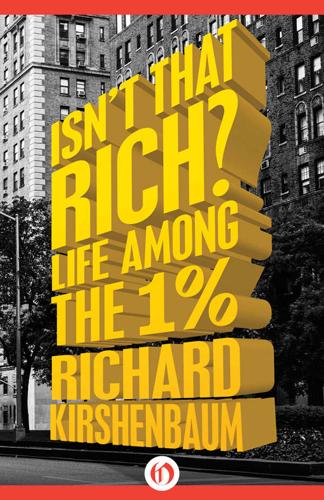
Isn't That Rich?: Life Among the 1 Percent
by
Richard Kirshenbaum
and
Michael Gross
Published 9 Jun 2015
He married her against his mother’s wishes, given that she was a”—she lowered her voice and punctuated the word in a scandalous tone—“nanny. Not that there’s any shame in it, but no mother—especially a European—in my circle wants her son to marry the help.” “Was she a beauty?” I asked, thinking of TV shows I had grown up with like Upstairs Downstairs or the current Downton Abbey. “Healthy in that blond sort of way that young men find attractive. Glowing cheeks, right off the farm in the Midwest. No social background to speak of.” She raised an eyebrow. “Doesn’t sound out of the ordinary.” I lifted my Limoges teacup of Earl Grey as she declined the tapenade on the peppered cracker from the liveried servant.
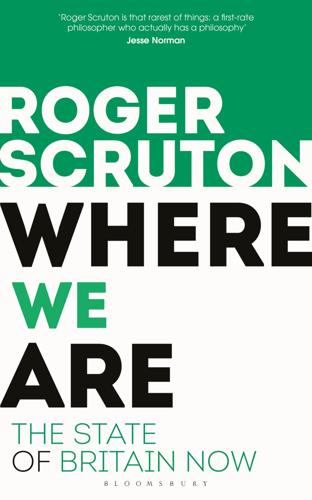
Where We Are: The State of Britain Now
by
Roger Scruton
Published 16 Nov 2017
To those repositories of doctored facts we should add the many series devoted to the British legacy, of which Simon Schama’s reflection on British portraiture (The Face of Britain) provides such a striking instance. The most popular soaps remain those that dwell with affection on the ways in which our country has been settled – East Enders, Coronation Street, Downton Abbey, Dad’s Army, Steptoe and Son – while few recent television dramas have had a success to match the Sherlock Holmes stories updated by Steven Moffat and Mark Gatiss, in which modern London is re-immersed in its Victorian mystery. Everywhere in popular culture, from the detective novels and spy thrillers to the set-piece musicals such as Oliver!
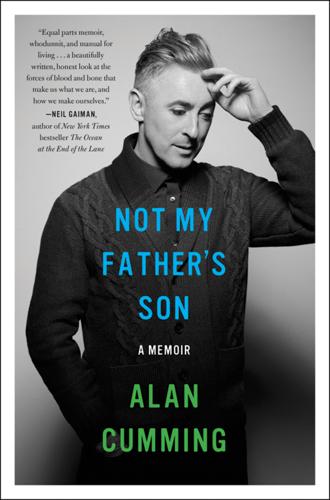
Not My Father's Son: A Memoir
by
Alan Cumming
Published 6 Oct 2014
We lived in Nursery House, so called because it looked out on a tree nursery where seedlings were hatched and nurtured to replace the trees that were constantly felled and sent back to the sawmill that lay up the yard behind us. My father was in charge of the whole process, from the seeds all the way to the cut lumber and everything in between, as well as the general upkeep of the grounds. It was all very feudal and a bit Downton Abbey, minus the abbey and fifty years later. I answered the door to men who referred to my father as “The Maister.” There were gamekeepers and big gates and sweeping drives and follies but no lord of the manor, as during the time we lived there the place was owned by, respectively, a family shipping company, a racehorse owner’s charitable trust, and then a huge insurance company.
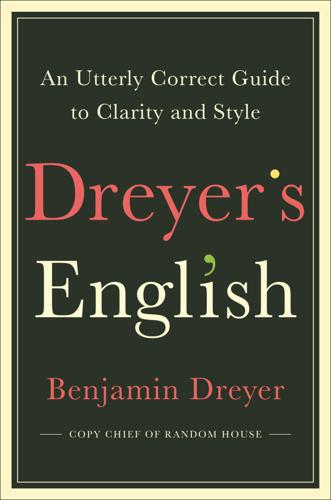
Dreyer's English: An Utterly Correct Guide to Clarity and Style
by
Benjamin Dreyer
Published 15 Jan 2019
) *3 Let’s please allow that I’m using the term “fiction” here to include as well the various flavors of narrative nonfiction that spring from a writer’s memory banks, rather than the kind of formal reportage that coalesces from years of archival research and sheaves of notes. *4 As a rule, the consumption of beverages is not as interesting as many writers seem to think it is. *5 It was a point of ongoing perturbation for me that two characters on the Downton Abbey series were both—pointlessly, so far as I could discern—named Thomas and that both their surnames began with a B. *6 I’ve bookmarked timeanddate.com. *7 Google “sunrise sunset” and you’ll be led not only to a number of useful sites but to Eddie Fisher’s plaintive rendition of the hit song from Fiddler on the Roof
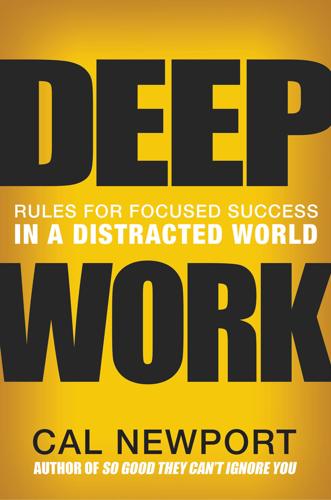
Deep Work: Rules for Focused Success in a Distracted World
by
Cal Newport
Published 5 Jan 2016
It’s also true, however, that some periods offer more advantages than others. As Brynjolfsson and McAfee point out, postwar Europe was an example of a bad time to be sitting on a pile of cash, as the combination of rapid inflation and aggressive taxation wiped out old fortunes with surprising speed (what we might call the “Downton Abbey Effect”). The Great Restructuring, unlike the postwar period, is a particularly good time to have access to capital. To understand why, first recall that bargaining theory, a key component in standard economic thinking, argues that when money is made through the combination of capital investment and labor, the rewards are returned, roughly speaking, proportional to the input.
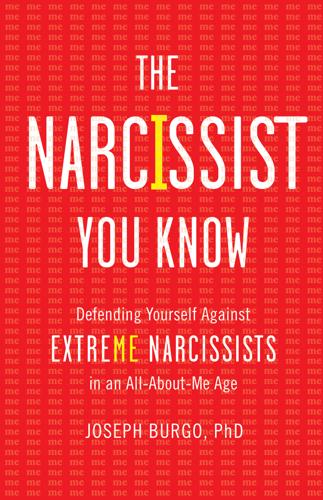
The Narcissist You Know
by
Joseph Burgo
It bothered him that so many people misused the word aggravate to express annoyance when it actually means “to intensify or make worse.” He took pride in speaking correctly and at times could seem pretentious. Though he had never been to Great Britain, he was a devoted Anglophile, with ideas about the English culled largely from Victorian novels and programs on public television such as Downton Abbey. Jesse felt he had been born in the wrong era, the wrong country, and the wrong class. During high school, he had begun to study French and continued during his first year in college. He regarded the ability to speak that language as a sign of sophistication. He also made a point of pronouncing French words imported into English with the correct native accent: rendezvous, hors d’oeuvre, amateur, et cetera.
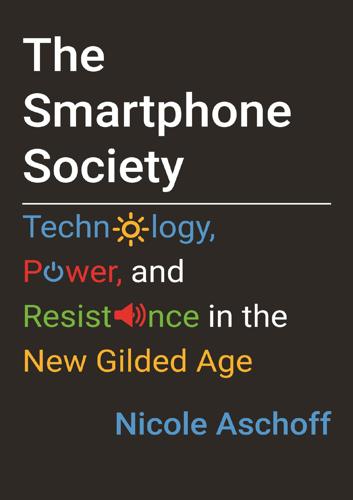
The Smartphone Society
by
Nicole Aschoff
Wealthy people have been hiring poor people to scrub their toilets and mow their lawns for a long, long time, but something is different today. Norms have shifted. Apps, and the positive ideas associated with them, have erased the stigma of hiring someone to assemble your IKEA haul, walk your dog, or wait in line for you at the new brunch place. It’s like Downton Abbey, the wildly popular BBC show about the trials and tribulations of a rich, late-Belle Époque English family and their servants, except the hired help don’t live in your house. Instead of ringing a bell for service, you tap an app. A maid, masseuse, taxi driver, personal shopper, whatever you want—“there’s an app for that.”
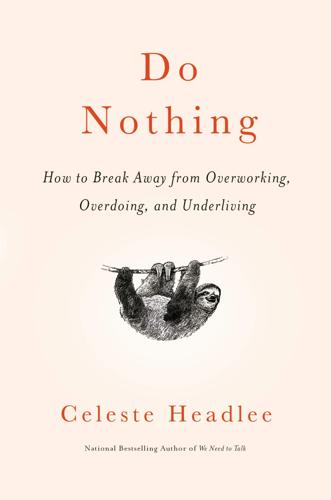
Do Nothing: How to Break Away From Overworking, Overdoing, and Underliving
by
Celeste Headlee
Published 10 Mar 2020
According to data from the Economic Policy Institute, pay for non-management workers increased by less than 12 percent between 1978 and 2016. On the other hand, CEO pay jumped by more than 800 percent if you include stock options. We marvel at the luxury enjoyed by English dukes and German barons of bygone eras, but the top earners now live more lavishly than the Crawley family in Downton Abbey. The only difference is the income gap is wider today between CEOs and their workers than it was between the fictional Earl of Grantham and his valet. So, after the industrial age took hold, workers put in more hours, became less likely to own their tools, and were less invested in the end product than they had been at the dawn of the nineteenth century.
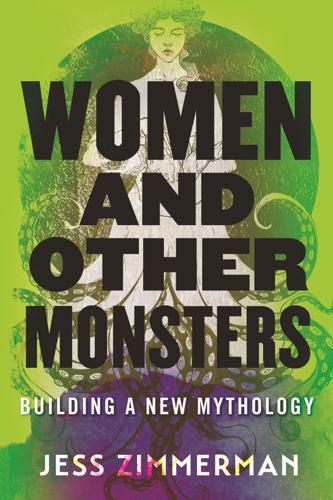
Women and Other Monsters: Building a New Mythology
by
Jess Zimmerman
Published 9 Mar 2021
An exquisite nineteenth-century cameo, displayed in the same case, showed a perfect, precise neoclassical profile—which is to say, she looked a bit like Graham Chapman, but that was the style at the time. Apart from a coil of snake at the crown of her head, like a fascinator, and another knotted scarflike beneath her chin, she had no visible markers of monstrousness. You’d easily mistake her for a proper young lady with Bohemian hair and odd taste in accessories—the youngest Downton Abbey daughter, maybe. A Siren on one oil vessel from the sixth century BCE sported a full beard, though Sirens were generally coded as female, and had no arms; its head sat atop an awkward, turkey-like bird body. Catty-corner was a 1910 French woodcut in which a Siren, despite having developed bear arms and a fish tail to go with her wings, was still depicted as a beautiful bare-breasted feminine figure with a crown of flowing hair.
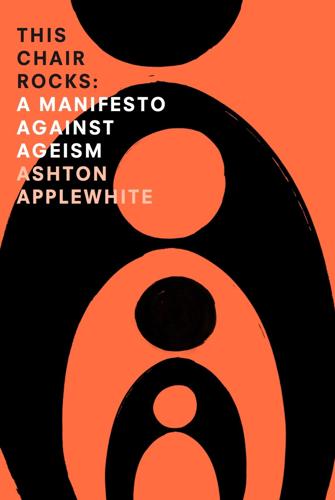
This Chair Rocks: A Manifiesto Against Ageism
by
Ashton Applewhite
Published 10 Feb 2016
That’s a funny sort of disservice we do to ourselves, because the practical experience for a lot of women is that getting older is actually pretty wicked.”25 (As in “wicked good.”) Older models remain a tiny minority, but they’re more common than they used to be, with Ellen DeGeneres as the face of Cover Girl, Diane Keaton fronting for L’Oreal, and the dames of Downton Abbey. Known for their provocative ads, in 2014 American Apparel used sixty-two-year-old, gray-haired Jacky O’Shaughnessy to model lingerie with the tag line “Sexy has no expiration date,” and didn’t Photoshop her neck and midriff into wrinkle-free perfection. The Helen Mirrens and Judi Denchs of the world are forging a footpath that needs to become a highway.
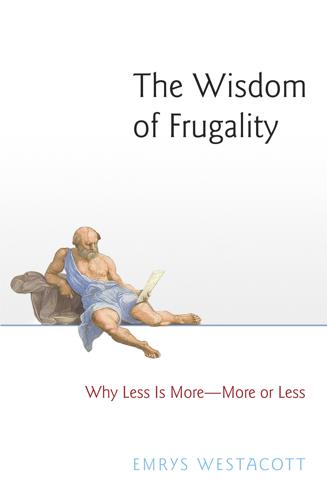
The Wisdom of Frugality: Why Less Is More - More or Less
by
Emrys Westacott
Published 14 Apr 2016
They typically feel that they are in some sense represented by the collective and naturally wish to appear in a good light, generous rather than parsimonious, grand rather than grubby. There are other situations, too, where extravagance can be viewed as fulfilling a duty. The aristocrat of old (think Downton Abbey) who oversaw a large estate including a huge house, a large household, agricultural lands, extensive stables, and a pack of hounds may well have felt an obligation to provide employment to house servants, laborers, grooms, and gamekeepers. No one really needs a valet, any more than one needs a pack of hounds.
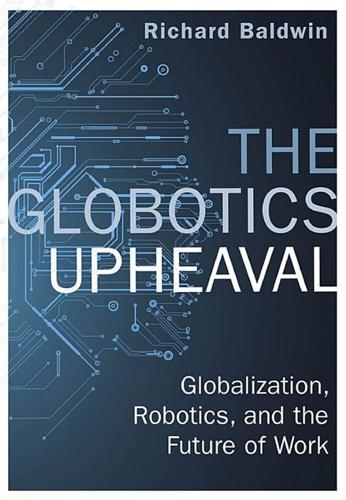
The Globotics Upheaval: Globalisation, Robotics and the Future of Work
by
Richard Baldwin
Published 10 Jan 2019
Things made cheaply by globots will cost less for humans and this will make us materially better off. The globotics revolution could mean soaring productivity that could finance a breakthrough to a new nirvana, a better society that offered fulfilling work and fostered more caring-and-sharing attitudes. Think of Downton Abbey where all the servants are globots. Adding breakthroughs in medicine and bioengineering into the mix means that our lives could be very long as well. Combining these three streams of guesses about the future suggests another stream of guesses. The result could be a new localism—a trend that should reinforce local, social, family, and community ties.
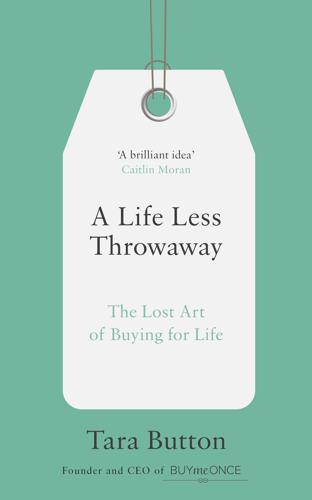
A Life Less Throwaway: The Lost Art of Buying for Life
by
Tara Button
Published 8 Feb 2018
Thirty years old, tall, dark and slim as a runner bean, he takes off his vintage fawn coat and hangs it carefully on the back of the plastic chair; underneath he’s wearing a tailored tweed jacket, waistcoat, vintage watch fob, high-collared shirt, slim tie and tie-pin. Horn-rimmed glasses and perfectly waxed hair complete a look which I can only describe as Buddy Holly goes to Downton Abbey. He has managed to transcend trends and has been dressing this way since I met him almost a decade ago. We order and I ask him the first of my questions. ‘So how did this all begin?’ ‘It was a gradual progression. I always loved old stuff and I was being myself through collecting stamps, old postcards and fossils, but I just wore what my friends wore, mainly tracksuits.
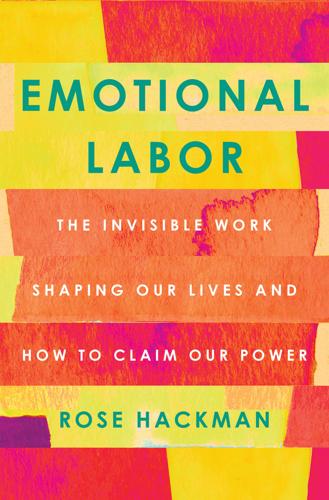
Emotional Labor: The Invisible Work Shaping Our Lives and How to Claim Our Power
by
Rose Hackman
Published 27 Mar 2023
Feminist Andrea Dworkin, in her provocative and still remarkably contemporary 1987 book Intercourse,17 points out that women being forced into the two vastly oversimplified categories of virgins or whores face an impossible choice. Virgins, or good girls, are considered full humans but lack power, while sex objects gain some power but face a reduction in their full humanity—with their full humanity never again recoverable. “Damaged goods,” bafflingly, is not just an expression deployed by a fictional 1920s Downton Abbey England, it is still an expression deployed toward women whose supposed market value has gone down due to perceived sexual activity. The obsession with differentiating good girls from bad girls extends to all quarters. I have long noticed, with dismay, that hating women in this way is one of the last totally socially acceptable forms of sexism.
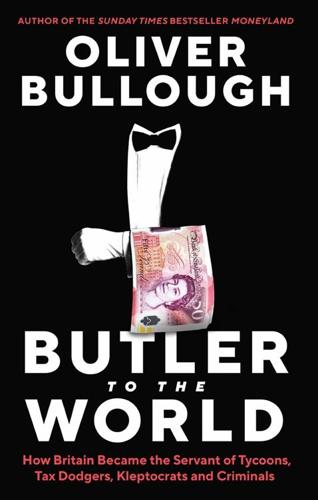
Butler to the World: How Britain Became the Servant of Tycoons, Tax Dodgers, Kleptocrats and Criminals
by
Oliver Bullough
Published 10 Mar 2022
And what I began to realise when talking to Andrew is how Britain is so much more invested in this business than all those other places. Financial skulduggery isn’t just something that happens in the UK; there has been a concerted and decades-long effort to encourage it to do so. This is hard to comprehend, because it is so at variance with Britain’s public image: as the country of Harry Potter, Queen Elizabeth II and Downton Abbey; a place defined by irony, tradition and substantial breakfasts. Mob bankers are vulgar, and if there’s one thing we know about Britain, it’s that it’s not vulgar. But the facts are the facts. However bad other countries are, Britain has for decades been worse. It operates as a gigantic loophole, undercutting other countries’ rules, massaging down tax rates, neutering regulations, laundering foreign criminals’ money.
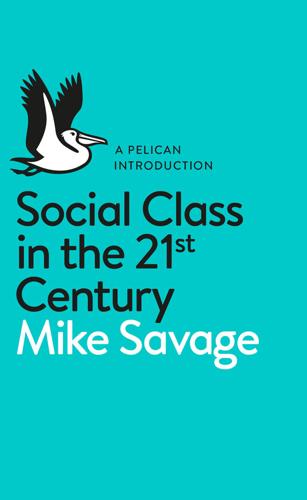
Social Class in the 21st Century
by
Mike Savage
Published 5 Nov 2015
It is easy to be confused here by the prominence of old idioms and the relics of aristocracy which abound. The success of the National Trust and the ‘exhibitionary complex’ which places stately homes at the heart of British leisure habits exemplifies this ongoing fascination with the landed classes. Television shows from Brideshead Revisited to Downton Abbey continue to deploy a ‘gentry’ aesthetic, which circulates through brands such as Laura Ashley, Burberry, Hunter, Barbour and Jack Wills, which are still able to command a distinctive presence. The traditional private school and stately home continue to serve as default sites for so much English novel writing (recent examples being by J.
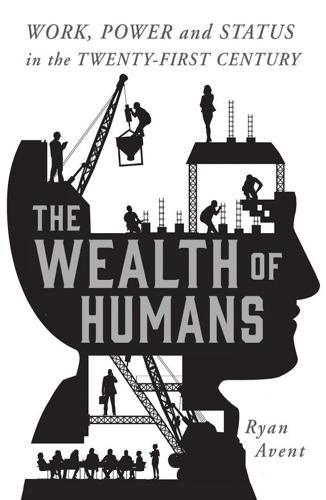
The Wealth of Humans: Work, Power, and Status in the Twenty-First Century
by
Ryan Avent
Published 20 Sep 2016
The more labour is available at very low pay, the more extensive this low-pay service economy can become. In fact, we have a very good idea what mass employment in low-skill service work looks like, thanks to examples in poorer economies, where crowds of attendants work at dubious productivity levels in hotels and restaurants, and in the eighteenth and nineteenth century, when domestic payrolls, Downton Abbey-style, absorbed large numbers of workers. Low wages can also boost employment by discouraging firms from automating. Industrial manufacturing in parts of China and India uses many more workers than similar processes would in Europe or Japan, where labour costs are much higher. When wages are low enough it doesn’t make sense to replace cashiers with an automated checkout, or to use robots in logistical tasks in warehouses.

The Age of Stagnation: Why Perpetual Growth Is Unattainable and the Global Economy Is in Peril
by
Satyajit Das
Published 9 Feb 2016
Having been a leading player, Britain regarded such a position as a national right and took many years to recognize the benefits of the EU. Even today it remains equivocal, having chosen not to adopt the single currency. Britain plans to hold a referendum in 2017 on its continued membership of the EU. In the British TV series Downton Abbey, Cora Crawley wants to know whether she and her mother-in-law are friends. The dowager countess would prefer that they be allies, which, she argues, is much more effective. In the evolving world order, a similarly pragmatic approach will be required for nations to prosper. The shift in global trade and capital movements is also affected by changes in geopolitical relationships.
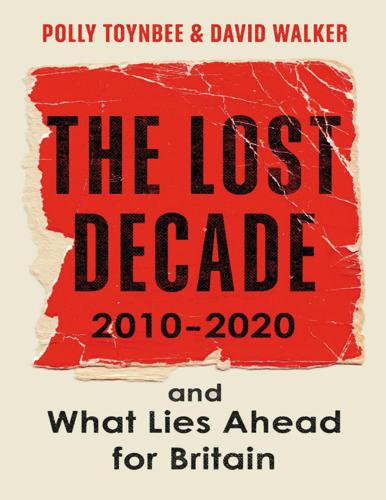
The Lost Decade: 2010–2020, and What Lies Ahead for Britain
by
Polly Toynbee
and
David Walker
Published 3 Mar 2020
Plays, shows and other writing abounded with treatments of the contemporary themes of identity, ethnicity and gender. ‘Culture’ can’t be easily linked to the economy or public affairs. Time is important, and the cultural capital laid down under Labour in the noughties lasted throughout the subsequent decade. The relationship between austerity and art is not linear. You can plot the popularity of Downton Abbey or Peaky Blinders against economic and societal trends (or, in the latter case, against Birmingham’s sense of identity), but the fit isn’t neat. In sports, women’s cricket, football and rugby rose in prominence over the decade, paralleling the response to #MeToo, but a gender pay gap persisted.
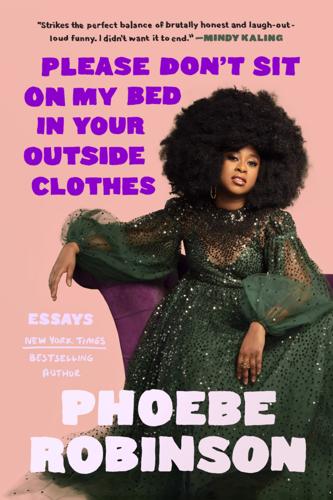
Please Don't Sit on My Bed in Your Outside Clothes: Essays
by
Phoebe Robinson
Published 14 Oct 2021
Emotions are just on a need-to-know basis and, apparently, how one feels about anything that’s going on personally or professionally is not anything loved ones need to know? So when I started dating Baekoff, I must’ve seemed like I was a walking emotional open flesh wound with a fresh application of Neosporin as I kept him up to speed on every single thing I was feeling. Meanwhile, for me, he’d often come off like a tight-lipped Downton Abbey downstairs servant too scared to tell me that he accidentally sneezed on the tray of Yorkshire puddings for the Christmas party I’m hosting. Obviously, for things to work between Bae and me, we had to find some common ground. I’ve learned that I don’t need to express all of my emotions and opinions all of the time; meanwhile, he has realized that behaving like an at-risk youth who needs me to get my Michelle Pfeiffer in Dangerous Minds on so he can open up to me for five minutes has made a bitch tired.
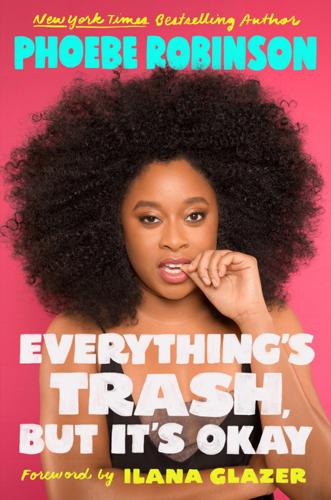
Everything's Trash, but It's Okay
by
Phoebe Robinson
Published 15 Oct 2018
A few times a month, I’ll be taking a shower and discover a few hairs from my head sticking out from between my booty cheeks like baguettes popping out of a basket on a Parisian person’s bicycle. How. Does. This. Happen? I just don’t understand. I assumed the hair from my head and my butt had minimal contact, but little did I know that my body is hella like Downton Abbey, with my head being aristocratic while my butt is more servant status and the two are interacting all the time! I’m not sure how to fix this nuisance, I just thought that on behalf of ladies everywhere (and maybe some dudes), I’d start a dialogue in hopes that we can come together and think-tank this issue and figure something out.
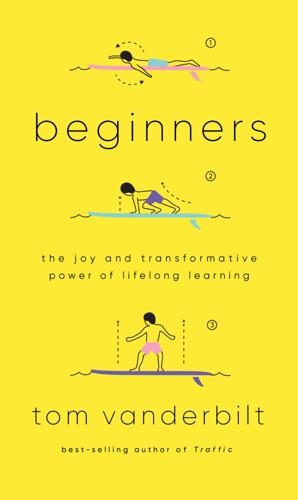
Beginners: The Joy and Transformative Power of Lifelong Learning
by
Tom Vanderbilt
Published 5 Jan 2021
a journey of not knowing: These thoughts are drawn from an interesting talk, “Cultivate Beginner’s Mind,” by Myogen Steve Stucky, the former abbot of the San Francisco Zen Center. Talk accessed at sfzc.org. “You never intend to go”: See Norman Rush, Mating (New York: Vintage Books, 1992), 337. “steep learning curve”: For an interesting discussion of the evolution of the phrase, see Ben Zimmer, “A Steep ‘Learning Curve’ for ‘Downton Abbey,’ ” Vocabulary.com Blog, Feb. 8, 2013, www.vocabulary.com. “unskilled and unaware of it”: J. Kruger and D. Dunning, “Unskilled and Unaware of It,” Journal of Personality and Social Psychology 77, no. 6 (1999): 1121–34. additional research later showed: Dunning and Carmen Sanchez crafted an experiment in which people had to diagnose victims of a zombie outbreak.
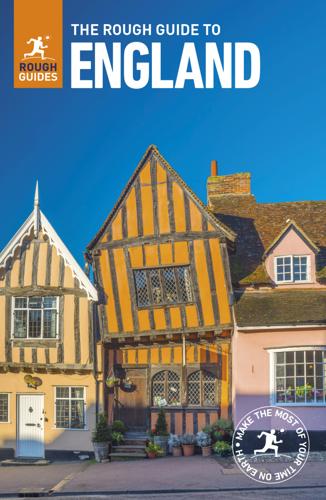
The Rough Guide to England
by
Rough Guides
Published 29 Mar 2018
Lovely, big rooms that combine period decor with modern touches such as widescreen TVs, above a fine bar/restaurant, and right opposite the cathedral. The street can be noisy at night. £120 The Real Downton Abbey Tucked away in the northern reaches of Hampshire, twenty miles north of Winchester, Highclere Castle (9.30am–5pm: Easter, early April & May bank hol weekends daily, mid-July to mid-Sept Mon–Thurs & Sun; castle, exhibition and gardens £22, castle and gardens £15, gardens £7; 01635 253210, highclerecastle.co.uk) will be very familiar to fans of ITV’s hit period drama, Downton Abbey, which was filmed here. Home to Lord Carnarvon and his family, the house is approached via a long drive that winds through a stunning 5000-acre estate, and is surrounded by beautiful gardens designed by Capability Brown.
…
Home to Lord Carnarvon and his family, the house is approached via a long drive that winds through a stunning 5000-acre estate, and is surrounded by beautiful gardens designed by Capability Brown. Inside the house, Downton Abbey aficionados will enjoy loitering in the Drawing Room and the Library, scene of many a drama and quivering stiff-upper-lip of Lord Grantham and his family, while upstairs you can peer into the bedrooms of the Crawley girls. In the castle cellars, an Egyptian Exhibition celebrates the real-life fifth Earl of Carnarvon, who, in 1922, discovered the tomb of Tutankhamun with Howard Carter, and who funded many of Carter’s expeditions. Since the house is still a family home and is also sometimes closed for filming, its opening hours vary from month to month and year to year; call or check the website for details.

The End of Secrecy: The Rise and Fall of WikiLeaks
by
The "Guardian"
,
David Leigh
and
Luke Harding
Published 1 Feb 2011
Each extremity projected on to him superhuman powers of good or evil. The script became even more confused in December when, as part of his bail conditions, Assange had to live at Ellingham Hall, a Georgian manor house set in hundreds of acres of Suffolk countryside. It was as if a Stieg Larsson script had been passed to the writer of Downton Abbey, Julian Fellowes. Few people seem to find Assange an easy man with whom to collaborate. Slate’s media columnist, Jack Shafer, captured his character well in this pen portrait: “Assange bedevils the journalists who work with him because he refuses to conform to any of the roles they expect him to play.
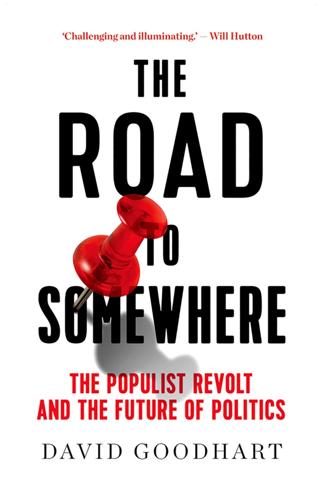
The Road to Somewhere: The Populist Revolt and the Future of Politics
by
David Goodhart
Published 7 Jan 2017
But when, fifty years later, between a third and a half of one’s generational peers are going to university or working in the better-rewarded, high productivity top 40 per cent of the economy, it becomes inevitable, perhaps, that people will start to look down on more basic jobs—especially, given Britain’s ‘Downton Abbey’ folk memory, those that involve serving the richer and better educated.5 And the growing centrality of educational attainment to the allocation of high status jobs—combined with a dominant assumption about the virtues of meritocracy and upward social mobility—has made it more likely that the people in the bottom half of the income spectrum and the cognitive ability spectrum will now feel unsuccessful rather than merely unlucky or unambitious.
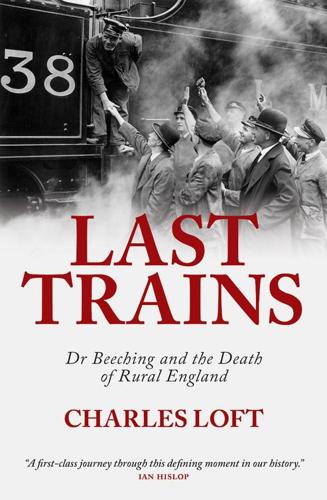
Last Trains: Dr Beeching and the Death of Rural England
by
Charles Loft
Published 27 Mar 2013
Artist Frank Newbould and filmmaker Ismail Merchant, respectively seeking a backdrop for the wartime poster Your Britain – Fight for it Now and an imagined Edwardian idyll for A Room with A View, both chose this part of the world. It is the England of Tibby Clarke and Dr Beeching, East Grinstead neighbours. Other Englands are available, of course; but Horsted Keynes station is in the process of becoming the default image of the rural steam railway, as the local station for Downton Abbey, Eel Marsh House, Windy Corner, The Railway Children and Miss (Beatrix) Potter, among others.† The real Horsted Keynes station lies on the former Lewes and East Grinstead railway, once the least used part of a web of railways belonging to the London Brighton and South Coast Railway (LBSCR) based around a line which, diverging from the Brighton main line at Croydon, ran south-east to Oxted and eventually divided into three routes heading south towards the sea.
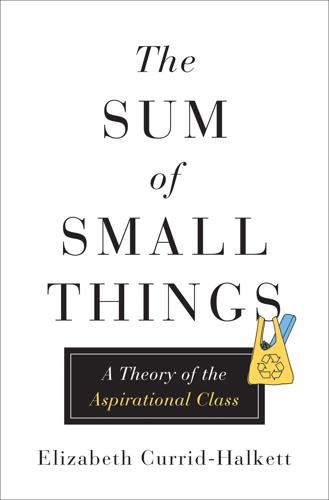
The Sum of Small Things: A Theory of the Aspirational Class
by
Elizabeth Currid-Halkett
Published 14 May 2017
“What appears as a natural, simple quality,” Khan remarks, “is actually learned through repeated experiences in elite institutions.”13 While the 1920s Gilded Age elites and today’s “nouveau riche” (think of the stereotyped Russian oligarchs or Hollywood celebrities) may make great efforts to distinguish themselves in overt ways from everyone else, members of the aspirational class use discretion to separate themselves. Consider that even the wealthiest aspirational class kitchens often decorate with copper pots, rustic Stickley dining tables, and Aga-like stoves that resemble the stoves used in the kitchen of Downton Abbey, rather than the upstairs formal baroque style of English aristocrats. Casualness in all facets of life has become a part of aspirational class habitus. In this respect, the aesthetics of the aspirational class are in line with those of bobos. As David Brooks writes in his book Bobos in Paradise, “Educated elites are expected to spend huge amounts of money on things that used to be cheap … We prefer to buy the same items as the proletariat—it’s just that we buy rarefied versions of these items that members of the working class would consider preposterous.
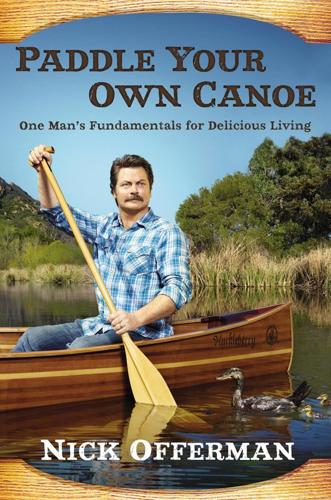
Paddle Your Own Canoe: One Man's Fundamentals for Delicious Living
by
Nick Offerman
Published 30 Sep 2013
Experiences like this one certainly must have nurtured any developing feminine or “sensitive” side I possessed, so perhaps I entered high school looking for ways to round out the testosterone contingent in my hormonal congress. In the 1980s there was really not much to do in a small Midwestern town. This recreational vacuum made team sports an incredibly important and prevalent part of our everyday lives. We worshipped the Chicago Cubs with a fervor now reserved for things like Downton Abbey. My older sister, Laurie, and I would compete on car rides in the arena of baseball statistics, quizzed by Dad at the wheel, which we could call up from our encyclopedic mind-vaults like Rain Man. Keith Moreland triples in 1982? Two. Fergie Jenkins’s last wild pitch? Nineteen eighty-three. Easy.
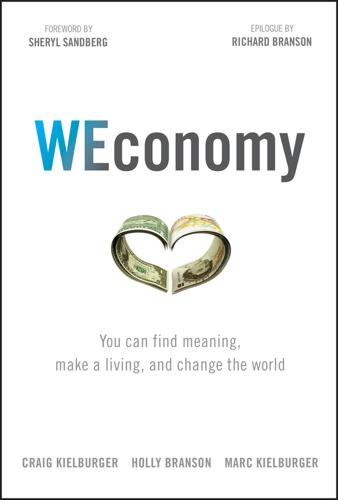
WEconomy: You Can Find Meaning, Make a Living, and Change the World
by
Craig Kielburger
,
Holly Branson
,
Marc Kielburger
,
Sir Richard Branson
and
Sheryl Sandberg
Published 7 Mar 2018
I've used the words Be Brave and Be Bold throughout this book, but it is at the very start of your journey when these words are most apt. I have been extremely fortunate to meet the incredible author Dr. Brené Brown (her books Rising Strong and Daring Greatly are definitely worth checking out if you haven't). Brené tells of a quote she found (while Googling the time period Downton Abbey was set in) that changed her life. I'd like to share it with you here, in this section, in the hope that it inspires company bosses and graduate trainees alike to Be Brave and Be Bold when it comes to embracing Purpose in the day to day working of your company. Theodore Roosevelt (26th President of the United States): It is not the critic who counts; not the man who points out how the strong man stumbles, or where the doer of deeds could have done them better.
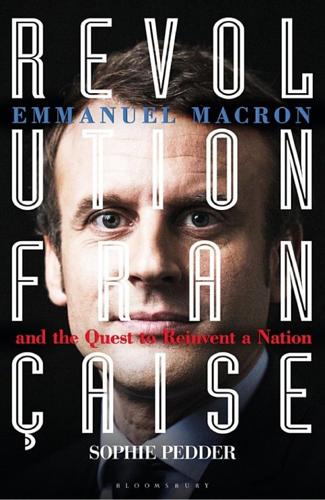
Revolution Française: Emmanuel Macron and the Quest to Reinvent a Nation
by
Sophie Pedder
Published 20 Jun 2018
‘We were average parents,’ Jean-Michel Macron told Macron’s biographer Anne Fulda, describing it as ‘a banal life’.3 ‘Of course it was a privileged background, but it depends what you mean by privileged,’ Renaud Dartevelle, a close school friend of Macron’s from the age of ten, told me. I had tracked him down in the southern suburbs of Paris, where he now teaches history in a high school. He had learned English by watching Downton Abbey. ‘I come from the same kind of background,’ Dartevelle said. ‘His grandparents came from poor backgrounds; my grandparents did too. And that was not uncommon among this kind of bourgeoisie in Amiens. La Providence is not a school only for the very few.’ When we met, Dartevelle was keen to underline this point about Macron.
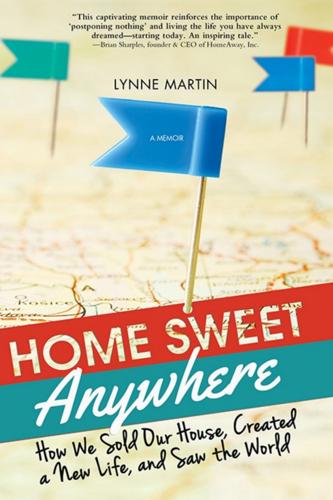
Home Sweet Anywhere: How We Sold Our House, Created a New Life, and Saw the World
by
Lynne Martin
Published 14 Apr 2014
We took a train to see Windsor Castle and particularly enjoyed the kitchens, which have functioned forever and still serve Betty and Phil (that would be Queen Elizabeth and Prince Philip, for those of you not in the inner circle) when they’re home. Another morning, Tim drove us through traffic, fog, and rain to reach Highclere Castle, the magnificent estate where the BBC films its popular television series Downton Abbey. The castle, which sits in the middle of five thousand acres, is the most stately and beautiful home either of us had ever seen. We reveled in its understated opulence. In person, the home, with its priceless paintings and antiques, far exceeded its appearance on the series. As the sun began to appear later in the morning, and we toured the glorious gardens, Tim remarked, “I’ve really loved seeing this place.
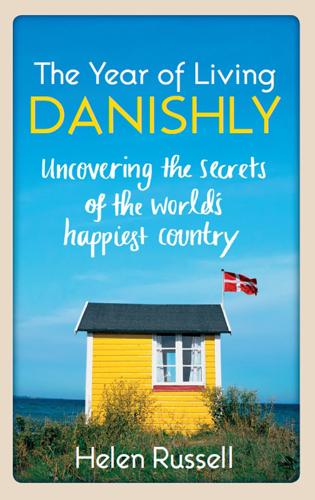
A Year of Living Danishly: My Twelve Months Unearthing the Secrets of the World's Happiest Country
by
Helen Russell
Published 14 Sep 2015
Judgey Face tells us that everyone in Denmark ripped out their tubs a decade ago to go for a more up-to-date look. (‘Plus showering is more hygienic,’ she asserts.) This is a setback to my happiness project. How can anyone, let alone a whole nation, be happy without baths? Lego Man, understanding my pain, promises that we can always look online for a free-standing version à la Downton Abbey and adds this to his ever-growing list of things he’s decided we need for our new Danish digs. By the end of the great house hunt, day one, I start to wonder whether this great emphasis on having a clean, clear, sleek designer home plays a part in the Danes’ chart-topping quality of life. Curious to find out more, I track down Anne-Louise Sommer, director of the Design Museum Denmark, and enlist her expertise.

Mindf*ck: Cambridge Analytica and the Plot to Break America
by
Christopher Wylie
Published 8 Oct 2019
In social sciences, a “latent variable” is an element that is influencing a result, but one you haven’t yet observed or measured—a hidden construct that’s floating just out of view. So what is the hidden construct here? One problem was that, at a basic level, I couldn’t visualize a Lib Dem voter. I could visualize Tories, who—in the most general sense—were either posh, rich, Downton Abbey types or working-class, anti-immigrant types. Labour voters were northerners, union members, council estate dwellers, or public-sector types. But who were the Lib Dems? I couldn’t imagine a path to victory if I couldn’t imagine who’d be marching with us on that path. So, in the late spring of 2011, I started traveling around Britain to find out.

Indelible City: Dispossession and Defiance in Hong Kong
by
Louisa Lim
Published 19 Apr 2022
The same hierarchy ruled the curriculum, which was startlingly Victorian. We started the day reciting the Lord’s Prayer, and spent interminable hours copying sentences in curly cursive handwriting and reciting poetry to hone our British accents. Even today, most of us could probably snag a walk-on part on Downton Abbey. Our headmistress, Miss Doreen Handyside, could have leaped fully formed from the pages of a Roald Dahl book. A champion golfer, she was spherical in shape, with a head of tightly curled ringlets, and she used her golf swing to great effect to swat naughty little boys on their palms with a ruler.
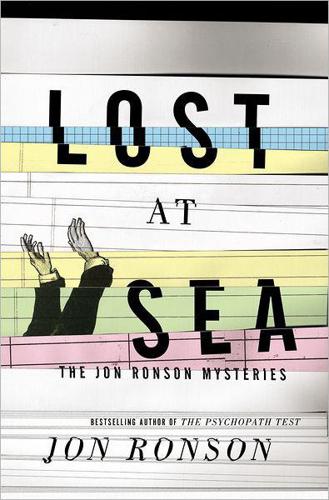
Lost at Sea
by
Jon Ronson
Published 1 Oct 2012
“But”—he glances at Rebecca—“that would cost gas and food and a bed-and-breakfast stay, so maybe we’ll stick around here, save the gas money, and get a hotel room for a couple of days.” “You can’t afford to drive across the state?” I say in a startled screech. I sound like the Dowager Countess from Downton Abbey. In fact, last night in New York City, I got to see something Frantz has never seen: the inside of a Capital Grille restaurant. (I’m guessing Dennis and Rebecca have never been to one, either.) It was delicious and I didn’t even think about what it cost. There were stag heads and sculptures of horses and fine oil paintings of generic earls and lords and foxhunts.
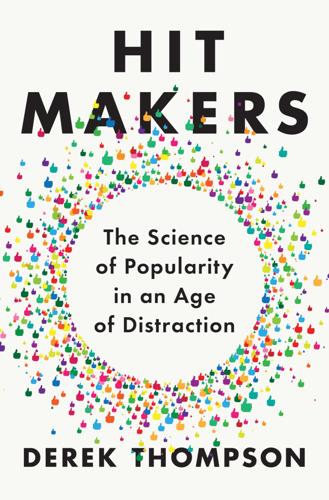
Hit Makers: The Science of Popularity in an Age of Distraction
by
Derek Thompson
Published 7 Feb 2017
This made it a perfect home for dramas and crime procedurals that relied on several cliffhangers per episode (to extend viewership throughout the commercials) and pat endings. But streaming television, which is often commercial-free, rewards audiences who watch for several hours at a time. People don’t have to stop after one episode of House of Cards on Netflix or Downton Abbey on Amazon Video; they can watch as much as they want. Combining the aesthetic of film, the episodic nature of traditional television, and the “binge” potential of a novel or Wagnerian opera, the near future of television isn’t bound by the straitjacket of one-hour blocks. It’s “long-form”—or, perhaps, any-form.
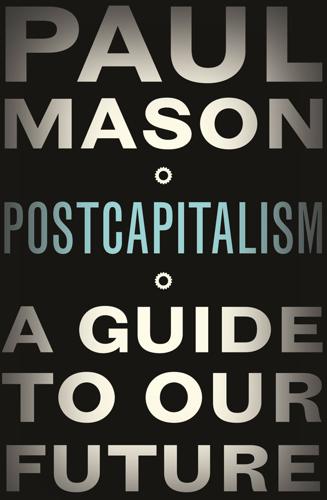
Postcapitalism: A Guide to Our Future
by
Paul Mason
Published 29 Jul 2015
Widespread access to the finance system suited everybody: liberal politicians in the USA could point to the growing number of poor, black and Hispanic families with mortgages; bankers and finance companies got rich from selling loans to people who could not afford them. Plus it created the vast service industry that’s grown up around the wealthy – the florists, yoga teachers, yacht builders and so on, who provide a kind of fake-tanned Downton Abbey for the rich of the twenty-first century. And it suited the ordinary Joe, too: after all, who is going to turn down cheap money? But financialization created inherent problems; problems that triggered the crisis, but were not resolved by it. While paper money is unlimited, wages are real. You can go on creating money for ever but if a declining share of it flows to workers, and yet a growing part of profits is generated out of their mortgages and credit cards, you are eventually going to hit a wall.
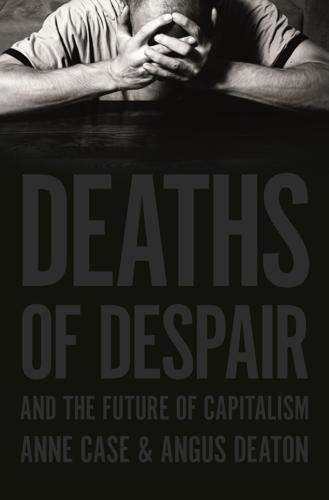
Deaths of Despair and the Future of Capitalism
by
Anne Case
and
Angus Deaton
Published 17 Mar 2020
The hospital is a nonprofit whose CEO, Dr. Steven Corwin, was paid $4.5 million in 201429 (the CEO of North Shore University Hospital was paid twice as much).30 New York Presbyterian ran a beautifully produced series of video stories, which were aired on public television immediately before the immensely popular Downton Abbey series, each documenting an extraordinary recovery that could only have happened at New York Presbyterian.31 These advertisements were aimed at inducing employees to demand that the hospital be included in their insurance plan, giving the hospital increased negotiating power with the insurance companies, which helped to raise their prices and earn Corwin his salary.
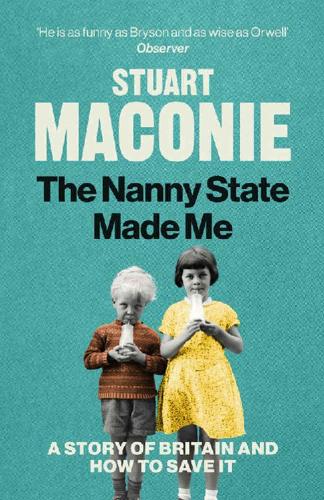
The Nanny State Made Me: A Story of Britain and How to Save It
by
Stuart Maconie
Published 5 Mar 2020
Entering Paul McCartney’s childhood council-house home at 20 Forthlin Road, Allerton, Merseyside, American visitors are often visibly shocked by how tiny it is and how plain, spartan even. John Lennon’s was slightly bigger and thus he’s routinely and wrongly labelled as ‘middle class’. But his dad was an itinerant galley hand and he was brought up by an aunt in a modest Liverpool street. Posher than Macca, maybe, but it’s hardly Downton Abbey. But from these tiny, unassuming houses on drab streets, from terraced streets across the north, or unlovely boroughs of London, from mill towns and ports, factories and coalfields, were to come the working-class kids who would shake the world with every shake of their heads. In the arts generally – music, theatre, literature certainly – it’s clear that cuts to benefits, the decline of the art school (where many a luminous layabout found room to bloom), the removal of grants and the growth of intern cuture are making it increasingly a playground for the comfortably off.
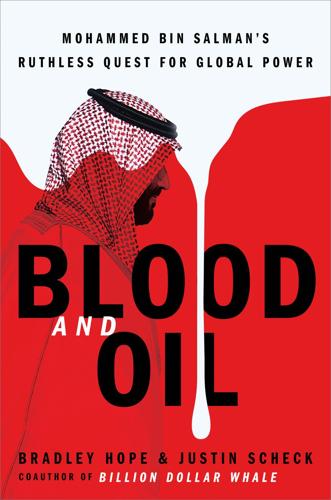
Blood and Oil: Mohammed Bin Salman's Ruthless Quest for Global Power
by
Bradley Hope
and
Justin Scheck
Published 14 Sep 2020
Few Qataris better exemplify the absurdly rich lifestyle of the Al Thanis than Hamad bin Abdullah Al Thani, Tamim’s first cousin, who has the jaunty look of a 1920s robber baron. After a life spent frolicking in museums while living on French estates and in high-class hotels, Hamad forged an existence that could only be compared to the one depicted in the television series Downton Abbey. After buying an old city mansion in London, he refurbished it to its early-twentieth-century grandeur, with seventeen bedrooms and a staff of domestic servants who changed into white ties and coattails at 6 p.m. promptly. Queen Elizabeth II, the United Kingdom’s reigning monarch, visited for supper on several occasions.
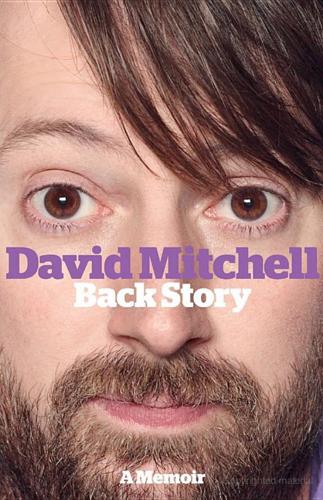
David Mitchell: Back Story
by
David Mitchell
Published 10 Oct 2012
People say, ‘If you’re not moving forwards, you’re moving backwards.’ Well, I’m not moving forwards any more. For the first time in a long while I’m standing still. Picture Section The ageing process is terribly cruel. The child of a thousand nervous faces You’d have to be a sneering Downton Abbey sceptic to spot the anachronisms in my beloved ‘eighteenth-century king’ get-up. Today, His Majesty is holding the royal secateurs. If you want to look cool, you first have to feel cool. You then have to do a lot of other things. Despite the smile, I am bitterly aware that this outfit is humiliatingly baggy.
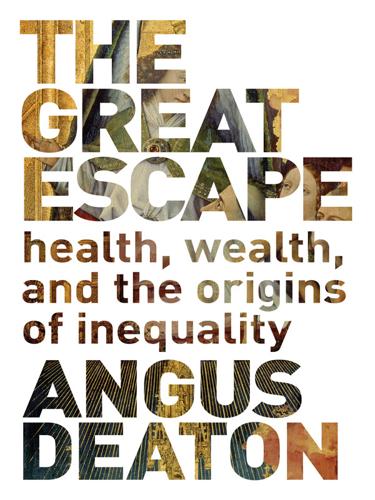
The Great Escape: Health, Wealth, and the Origins of Inequality
by
Angus Deaton
Published 15 Mar 2013
The much richer people who have been doing really well (on which more below) also want services, from restaurant workers, daycare workers, nannies, doulas, dog walkers, cleaners, and personal shoppers all the way to private chefs, chauffeurs, and pilots. In this respect, we have recreated something like the old European aristocracy, in which great landowners employed armies of retainers—Downton Abbey in the Hamptons or Palm Beach.18 To the extent that these service groups remain at the bottom of the distribution, earnings and jobs have been polarized, expanding at the very top and at the very bottom, but not at all in the middle.19 Politics and Inequality Politics has affected wages among low-paid workers.
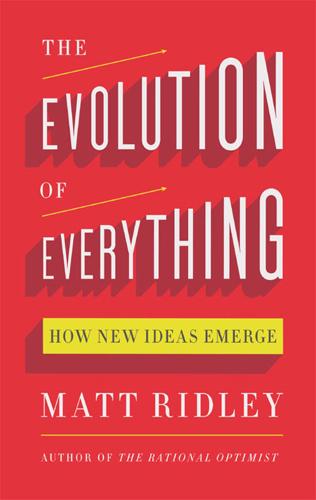
The Evolution of Everything: How New Ideas Emerge
by
Matt Ridley
On the history of government, Micklethwait, John and Wooldridge, Adrian 2014. The Fourth Revolution. Allen Lane. On the politics of Adam Smith, see Rothschild, Emma 2001. Economic Sentiments: Adam Smith, Condorcet and the Enlightenment. Harvard University Press. On Hamilton and Jefferson, see Will, George 2014. Progressives take lessons from ‘Downton Abbey’. Washington Post 12 February 2014. On British liberal thinking, Martineau, Harriet 1832–1834. Illustrations of political economy. Also Micklethwait, John and Wooldridge, Adrian 2014. The Fourth Revolution. Allen Lane. On free trade, Bernstein, William 2008. A Splendid Exchange: How Trade Shaped the World.
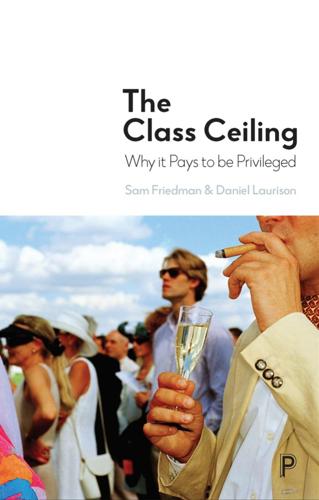
The Class Ceiling: Why It Pays to Be Privileged
by
Sam Friedman
and
Daniel Laurison
Published 28 Jan 2019
However, Mia explained that her entire career had revolved around playing a very one-dimensional type of character. It began, she explained, when she played a heroin-addicted mother in a big-budget film: After that I’ve always, always got cast as working-class victims. Always. Put it this way, if Downton Abbey was on then I would certainly be below stairs [laughs]. I swear to god I have lost children about 15 times onscreen; the battered wife, the junkie or someone who has lost a child because of their badness or carelessness. What was significant about Mia’s typecast is that it was clearly classed and gendered.
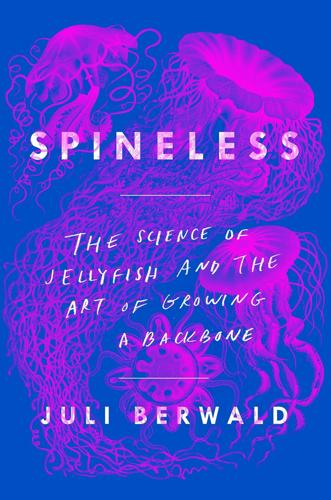
Spineless: The Science of Jellyfish and the Art of Growing a Backbone
by
Juli Berwald
Published 14 May 2017
Back in 1874, a young English biologist by the name of George John Romanes had been spending a lot of time watching the contractions of damaged jellyfish bells himself. However, he didn’t come to them through the purchase of a few moon jellies and a Kickstarter aquarium. When he was just two years old, George’s family inherited a large sum of money, propelling them from a modest Canadian lifestyle into one more similar to that of the Crawleys of Downton Abbey. His parents only sporadically sent George and his siblings to school, instead letting them discover what interested them in the museums, beaches, and fields of England and Europe. When he was about eighteen, someone finally decided to get George a regular tutor and discovered that he was very smart.
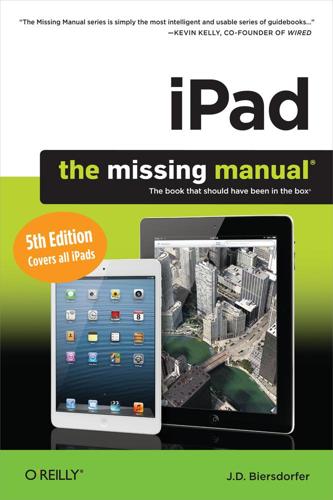
iPad: The Missing Manual, Fifth Edition
by
J.D. Biersdorfer
Published 21 Nov 2012
When you get the file in iTunes, sync your iPad as described on the previous page. Once it’s on your iPad, it looks just like a regular iBook. Read an iBook Of COURSE, READING AN iBook isn’t the same as cracking open the spine of a leather-bound volume while you relax in an English club chair. But really—who reads books that way anymore (except characters on Downton Abbey)? Reading books in the 21st century can involve anything from squinting through Boswell’s Life of Johnson on a mobile phone to gobbling down the latest Danielle Steel epic on the oversized Kindle DX e-reader. Then there’s the iPad way. Tap open a book in your Library, and then tap one of its pages to see these controls: Library.
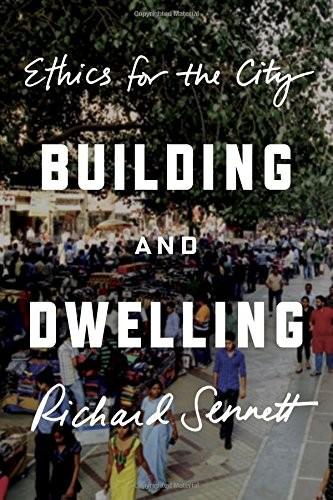
Building and Dwelling: Ethics for the City
by
Richard Sennett
Published 9 Apr 2018
Perhaps there is a general rule at work: as the political economy rushes forwards, architectural taste looks backwards. True, not only Chinese seek the reassurance offered by the simulation of a proven brand; the Poundbury enclave sponsored by Prince Charles is currently a hot property spot because so many people are drawn, as to the fictional Downton Abbey, to a romantic version of the ‘real’ England. Yet in China, as is not true in Britain, there is a relentless push to move forwards. In Shanghai, Madame Q loathed commercial appropriations of the past, out of nationalist sentiment about the ‘Chinese mission’. Despite her sufferings at the hands of the regime, she still was an idealist of sorts – like those prisoners in the Russian gulag who clung to the belief that ‘if only Stalin knew’ they would be freed.
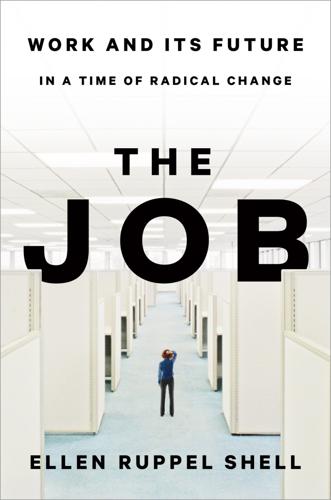
The Job: The Future of Work in the Modern Era
by
Ellen Ruppel Shell
Published 22 Oct 2018
“The barbarian is lazy and differs from the educated man in his dull and solitary brooding,” he wrote, “for practical education consists precisely in the need and habit of being occupied.” Yet while the gentry might have been occupied in Victorian times, it was not generally with what many of us today would call an occupation. Aristocrats harbored no ambition to be “employed,” and many looked down on those who did. (Fans of the addictive PBS costume drama Downton Abbey saw Richard Clarkson, a physician, patronized by the aristocracy as a sort of high-class servant, as was the teacher Sarah Bunting.) Indeed, leisure historian Benjamin Hunnicutt has shown that through most of human history progress meant “opening up a life beyond pecuniary—to family, community, the life of the mind”: that is, toiling no more than absolutely necessary to sustain a decent life.
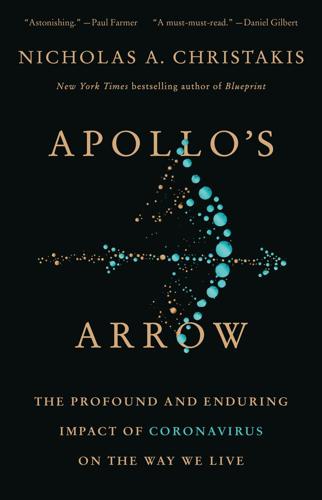
Apollo's Arrow: The Profound and Enduring Impact of Coronavirus on the Way We Live
by
Nicholas A. Christakis
Published 27 Oct 2020
The patient’s chest and abdomen became distended. Some of the patients died rapidly and directly from the virus, but more often, it was the secondary bacterial pneumonia that killed them. In short, it was nothing like the ridiculously glamourous death from the Spanish flu shown in an episode of Downton Abbey. The origin of the 1918 pandemic is not clear, but we know it was an H1N1 type of influenza. Reports from the time indicated that there were often simultaneous outbreaks in humans and pigs, but it’s unclear which species gave it to which. The natural reservoir for influenza viruses is thought to be wild waterfowl, but humans are not often susceptible to catching the disease directly from birds.
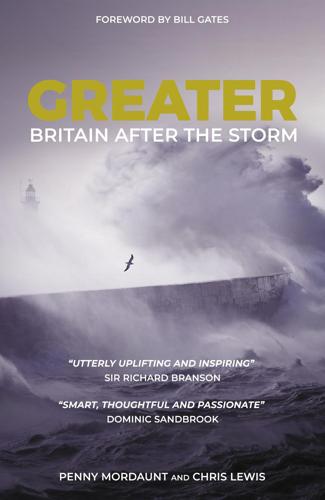
Greater: Britain After the Storm
by
Penny Mordaunt
and
Chris Lewis
Published 19 May 2021
It may be a bit slow and it may be a bit dull … but it suits us all right and always will.’18 And by Michael Anderson in The Dam Busters and Yangtse Incident (both stoic, dutiful and self-sacrificing and featuring real wartime para Richard Todd). It should be noted that Anderson’s only films about the future were dystopics like 1984, made in, err, 1956, and Logan’s Run, made in 1976. The obsession with the past continues on TV today, with Downton Abbey, The Durrells, The Last Post, Home Fires and The Crown being notable examples of rose-tinted, revisionist, retro-representation. At the top of the list of TV programmes that symbolised the British phlegmatic approach was proto-consumer rights show of the early ’70s That’s Life! In many ways, it was ahead of its time.
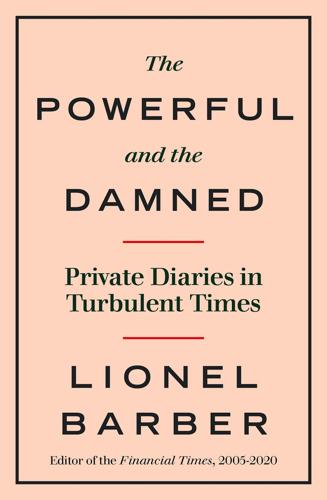
The Powerful and the Damned: Private Diaries in Turbulent Times
by
Lionel Barber
Published 5 Nov 2020
In the reception line, Obama and the First Lady Michelle greet myself and Victoria warmly. Cameron looks at me and exclaims: ‘What are you doing here?’ Well, I say, we’re guests of the White House. Over pre-dinner drinks, I survey the other guests: Harvey Weinstein, the Hollywood mogul; Sir Richard Branson, the Virgin billionaire; Vogue editor Anna Wintour; Downton Abbey actors Hugh Bonneville and Elizabeth McGovern; actors Idris Elba and Carey Mulligan; Apple’s super-designer Sir Jonathan Ive; and, last but not least, George Clooney. Clooney and I met in New York at a private showing of his movie Good Night, and Good Luck based on the life and work of Ed Murrow, the CBS news anchor.
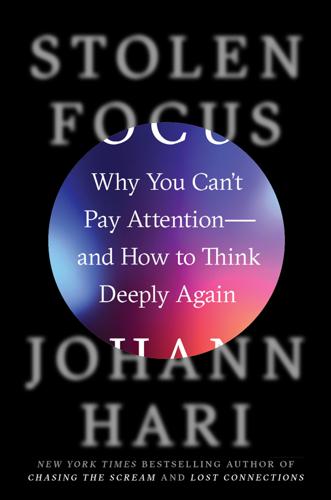
Stolen Focus: Why You Can't Pay Attention--And How to Think Deeply Again
by
Johann Hari
Published 25 Jan 2022
One of the founders told me their goal was to create a completely new model, from scratch, of how a school could be. It left out almost everything we think of as schooling. More than fifty years later, I arrived at their creation. It is named Sudbury Valley School, and from the outside, it looks like a raddled Downton Abbey—a big, roomy, old-fashioned mansion, surrounded by woods and barns and creeks. It feels like you are stepping into a clearing in a forest, with the scent of pine trees filling every space you enter. An eighteen-year-old student named Hannah offered to show me around and explain how the school works.
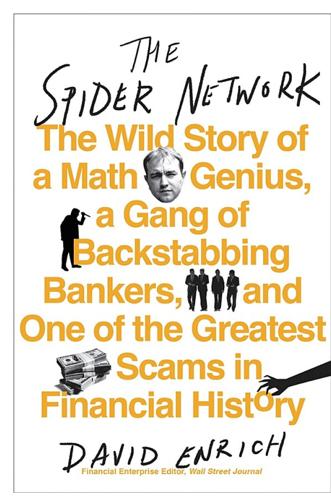
The Spider Network: The Wild Story of a Math Genius, a Gang of Backstabbing Bankers, and One of the Greatest Scams in Financial History
by
David Enrich
Published 21 Mar 2017
* * * Once a year, many of the world’s leading financial regulators gathered at a sprawling estate in the English countryside. About two hours by car outside London, Wiston House was built in the late sixteenth century on a property that spanned six thousand acres of rolling hills and farmland. The majestic stone mansion was straight out of Downton Abbey. Wiston House now served as an elaborate conference center, and a British government agency charged with organizing meetings to enhance global unity was one of the main outfits that used the space. Among its events was the annual regulatory shindig. Gretchen Lowe was unhappy when she arrived.
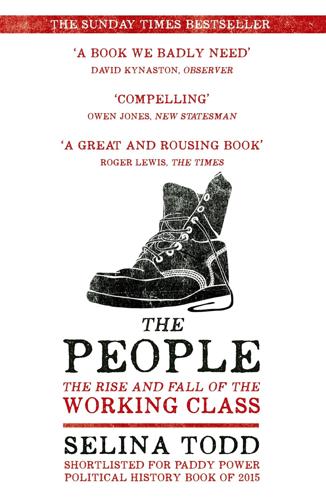
The People: The Rise and Fall of the Working Class, 1910-2010
by
Selina Todd
Published 9 Apr 2014
Her father, Fred Hirst, was a welder and her mother, Jean, had left the dole queues of inter-war Scotland with her best friend Nancy for the high life of shop work in Woolworths in Leeds. The Hirsts lived in Hunslet, the same industrial district from which Richard Hoggart, author of The Uses of Literacy, hailed. But their experience didn’t reflect the romantic idyll of respectability described by Hoggart, nor the stable society of Downton Abbey. The story I heard was one about the increasing economic and political clout of the working class – especially during and after the Second World War, when factory workers and soldiers became ‘the people’, and increasingly central to political debate and British culture. But it was also a story about fighting for everything you got, whether by escaping from domestic service in the 1920s; making sure you were in a reserved occupation so you didn’t have to fight ‘their’ war in the 1940s; or throwing orange peel and jeering at Winston Churchill when he appeared on cinema screens in the early 1950s, because it was Labour who had ensured that the ‘people’s war’ brought about a ‘people’s peace’ of welfare and full employment.
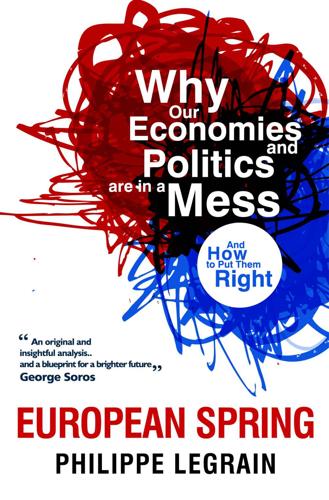
European Spring: Why Our Economies and Politics Are in a Mess - and How to Put Them Right
by
Philippe Legrain
Published 22 Apr 2014
Lives were much shorter: life expectancy at birth was fifty-nine years in Denmark, fifty-two in Britain, forty-three in Germany and thirty-five in Albania.519 People were much poorer: income per person in Britain, the richest country in Europe, was lower than Jamaica’s today.520 Electricity, cars and the telephone were novel luxuries: remember the first season of Downton Abbey. Since even the richest did not have access to technologies that we take for granted, such as antibiotics, airplanes and television, their living standards were lower than today’s poor in many respects. By 1934, Europe was in the grips of the Great Depression, with millions unemployed and scarcely a social safety net (although the school leaving age in Britain had risen to fourteen).
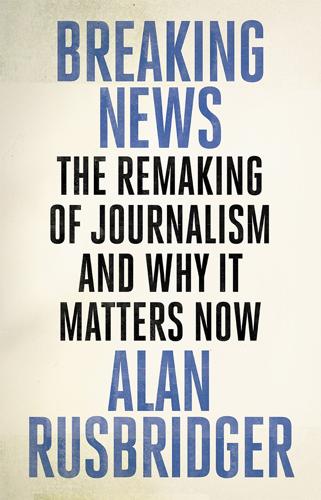
Breaking News: The Remaking of Journalism and Why It Matters Now
by
Alan Rusbridger
Published 14 Oct 2018
Each extremity projected onto him superhuman powers of good or evil. The saga became even more confused in December 2010 when, as part of his bail conditions, Assange had to live at Ellingham Hall, a Georgian manor set in hundreds of acres of Suffolk countryside. It was as if a Stieg Larsson novel had been passed to the writer of Downton Abbey, Julian Fellowes. But – despite the tensions and the shouting matches and the disappearances and the threats and the silences – we produced some rather important reporting. As Sarah Ellison’s Vanity Fair piece on the subject concluded: ‘Whatever the differences, the results have been extraordinary.
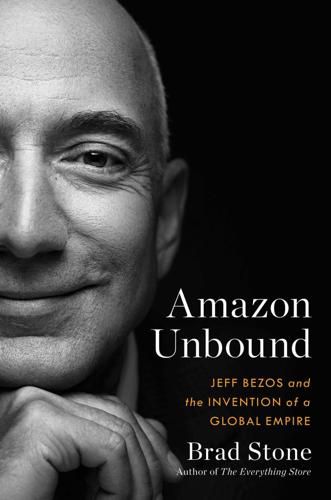
Amazon Unbound: Jeff Bezos and the Invention of a Global Empire
by
Brad Stone
Published 10 May 2021
During the meeting, they debated whether Amazon had ever spent that much on anything in its twenty-year history, including the new headquarters they were building a few blocks away from South Lake Union in Seattle’s Denny Triangle neighborhood. They did the deal and didn’t stop there. Amazon licensed the hour-long drama Justified from Sony Pictures, Downton Abbey from PBS, Orphan Black from BBC America, and countless other popular shows. Netflix struck a wide-ranging deal with Disney for its Marvel and Pixar films and animated classics, as well as with ABC for shows like Scandal and The CW for Gossip Girl. In 2014, Amazon had forty thousand titles in its video catalog; Netflix had sixty thousand.
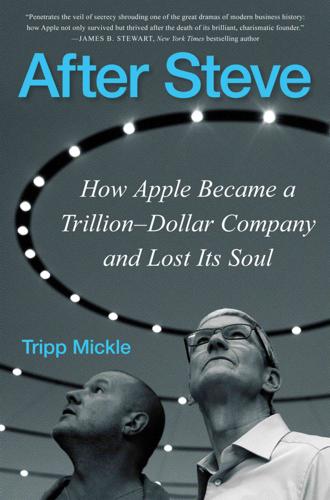
After Steve: How Apple Became a Trillion-Dollar Company and Lost Its Soul
by
Tripp Mickle
Published 2 May 2022
They were joined by entertainment agents and producers, who filled the atrium of Caffè Macs with the kind of boisterous, showy small talk customary at movie premieres and TV screenings. The gathering was so star-studded that everyone in the room looked familiar. A walk to grab a bite of food might take you past Jennifer Garner or Ewan McGregor. A trip to the bar might put you side by side with Breaking Bad actor Aaron Paul or Downton Abbey actor Michelle Dockery. Socializing with the famous was familiar to most of the guests. What was unfamiliar was socializing alongside celebrities on an isolated corporate campus a mile from a Residence Inn and a Bed Bath & Beyond. The surroundings evoked some mild irritation among the Hollywood crowd.
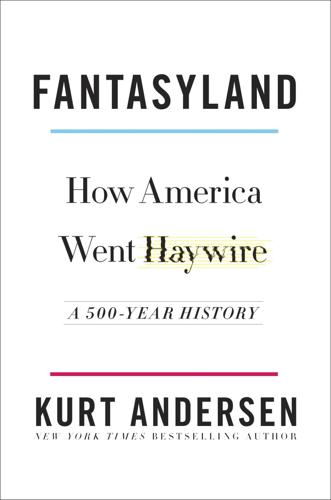
Fantasyland: How America Went Haywire: A 500-Year History
by
Kurt Andersen
Published 4 Sep 2017
As this output seeped and then gushed into everyday life, the old willing suspension of belief was joined by unconscious suspension of disbelief, all the unreality that we tend to forget is unreal. By that I mean everything from a brand-new Mediterranean villa in Wichita or an eighteen-room log cabin in Scottsdale, each with a lawn meant to evoke Currier & Ives or Downton Abbey, to the shopping centers simulating the simulations of Main Street USA and EPCOT, to surgically fictionalized faces and bodies. Now there are casinos in forty of the fifty states (and other kinds of legal gambling in almost all the rest) where people sit for hours or days at a time magically thinking they’re a moment away from becoming rich.
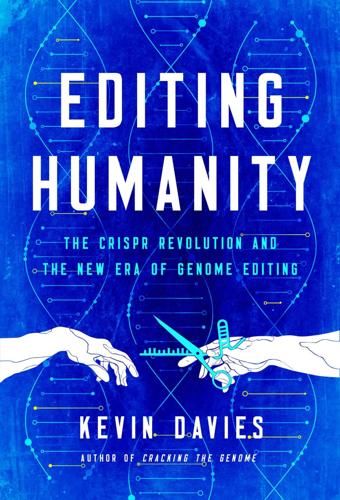
Editing Humanity: The CRISPR Revolution and the New Era of Genome Editing
by
Kevin Davies
Published 5 Oct 2020
And, as Church predicts, once we can do it for a single gene, we will develop safe methods to extend this in parallel, multiplexing edits at multiple genes simultaneously. * * * In early 2019, I was invited to attend an unusual conference at the Ditchley Estate, a quintessential English stately home reminiscent of Downton Abbey just outside Oxford, ostensibly to discuss the intersection of gene editing and artificial intelligence (AI). During World War II, Winston Churchill spent weekends there (Checkers, the official retreat of the prime minister, was too recognizable for the Luftwaffe). After a welcoming reception with tea and biscuits, forty of us took our seats at a long boardroom table in the old library.

Lonely Planet Wales (Travel Guide)
by
Lonely Planet
Published 17 Apr 2017
The adjoining 'gilt room' is blanketed in goldleaf and paintings of bare-breasted mythological figures; you're invited to recline on the day bed in order to get a better look. In another parlour there are period costumes to try on and board games to play. The decor of the upstairs bedrooms jumps forward in time to the 1930s, when Evan Morgan was hosting his fabulous parties at Tredegar. For the full Downton Abbey experience, head 'below stairs' to explore the preserve of the Morgan's numerous servants. St Woolos CathedralCHURCH (%07933 627594; www.newportcathedral.org.uk; Stow Hill; h7.45am-5.30pm Mon-Fri, 10am-6pm Sat, to 8pm Sun) A steep 10-minute walk uphill from the main shopping strip leads to Newport's ancient cathedral.
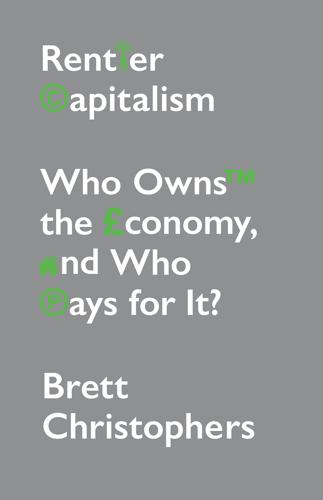
Rentier Capitalism: Who Owns the Economy, and Who Pays for It?
by
Brett Christophers
Published 17 Nov 2020
Can Uber drivers be self-supporting contractors in a 1099 economy rather than stable workers in an employment economy, or are they just extremely vulnerable gig workers? And, more broadly, as Ruth Collier asks, what will be the consequences for mass politics and political structures? Are we generating labor market flexibility, or a precariat that resembles a cyberized Downton Abbey replete with a small elite composed of the platform owners and a new and sizable underclass?77 There has certainly been robust resistance to the immiseration of gig economy workers, much of it centred on precisely this question of employment status.78 Moreover, there have been some noteworthy, headline-grabbing wins.
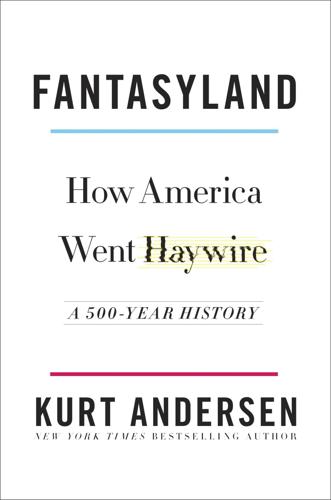
Fantasyland
by
Kurt Andersen
Published 5 Sep 2017
As this output seeped and then gushed into everyday life, the old willing suspension of belief was joined by unconscious suspension of disbelief, all the unreality that we tend to forget is unreal. By that I mean everything from a brand-new Mediterranean villa in Wichita or an eighteen-room log cabin in Scottsdale, each with a lawn meant to evoke Currier & Ives or Downton Abbey, to the shopping centers simulating the simulations of Main Street USA and EPCOT, to surgically fictionalized faces and bodies. Now there are casinos in forty of the fifty states (and other kinds of legal gambling in almost all the rest) where people sit for hours or days at a time magically thinking they’re a moment away from becoming rich.

Lonely Planet Wales
by
Anna Kaminski;Hugh McNaughtan
Ground-floor highlights include the sumptuous grand dining room and adjoining ‘gilt room’, blanketed in gold-leaf and with paintings of bare-breasted mythological figures. The decor of the upstairs bedrooms fast-forwards in time to the 1930s, when Evan Morgan was hosting his fabulous parties at Tredegar. For the full Downton Abbey experience, head ‘below stairs’ to explore the preserve of the Morgans’ numerous servants. The house was temporarily closed at the time of research; grounds remain open. 4Sleeping & Eating Priory Hotel & RestaurantHISTORIC HOTEL££ (%01633-421241; www.thepriorycaerleon.co.uk; High St; d from £95; pW) This 12th-century Cistercian monastery is now one of the fanciest addresses to stay at in Caerleon, with 27 rooms done gracefully in classic contemporary style and muted blues, pale pinks and beiges.

Lonely Planet Colombia (Travel Guide)
by
Lonely Planet
,
Alex Egerton
,
Tom Masters
and
Kevin Raub
Published 30 Jun 2015
Every generously spacious room dabbles in a different design scheme, but period furniture (some original to the historic mansion), four-poster beds, porcelain sinks and thick wooden writing desks are just some of the details on display here. The stylish staff is decked out in purple-accented butler-type fare (think Latin Downton Abbey!) and the by-reservation-only restaurant serves a menu created by Harry Sassoon, one of Bogotá's most famous chefs. oCasa DecoBOUTIQUE HOTEL ( MAP GOOGLE MAP ; %282-8640; www.hotelcasadeco.com; Calle 12C No 2-36; s/d incl breakfast from COP$190,000/229,000; iW) A 21-room gem run by an Italian emerald dealer (no pun intended), this discerning option is a serious step up from the sea of hostels surrounding it.
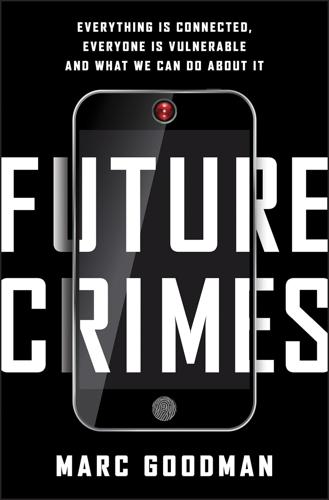
Future Crimes: Everything Is Connected, Everyone Is Vulnerable and What We Can Do About It
by
Marc Goodman
Published 24 Feb 2015
We read the news on Web sites run by CNN, the New York Times, and ESPN. We check our bank balances at Citibank and Wells Fargo. We shop at Amazon and Macy’s. We pay our ConEd and Comcast bills, make appointments with our doctors, and check our health insurance with Blue Cross. We watch House of Cards on Netflix and Downton Abbey on Hulu. And that’s just the beginning. Take a moment to think about how you used your smart phone today. Eighty percent of us check our mobile phones for messages within fifteen minutes of waking up. Did you provide a quick status update today to your friends on Facebook? You’ll probably get a “Like” or two or maybe a funny comment from a friend.
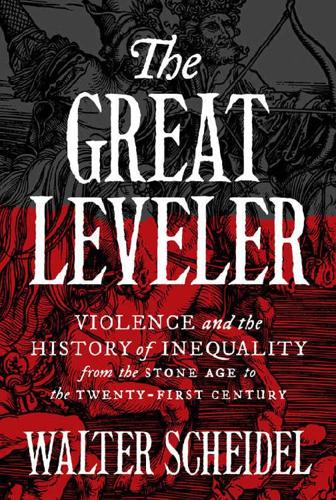
The Great Leveler: Violence and the History of Inequality From the Stone Age to the Twenty-First Century
by
Walter Scheidel
Published 17 Jan 2017
Variation in the coercive power of rulers and capital owners allowed plague to raise real wages in some societies but not in others; the world wars flattened the distribution of market incomes in some economies but encouraged ambitious redistributive schemes in others; Mao’s revolution wiped out “landlords” but promoted inequalities between cities and countryside. But there was always one Big Reason behind every known episode of substantial leveling. There was one Big Reason why John D. Rockefeller was an entire order of magnitude richer in real terms than his richest compatriots one and two generations later, why the Britain of Downton Abbey gave way to a society known for universal free healthcare and powerful labor unions, why in industrialized nations around the globe the gap between rich and poor was so much smaller in the third quarter of the twentieth century than it had been at its beginning—and, indeed, why a hundred generations earlier ancient Spartans and Athenians had embraced ideals of equality and sought to put them into practice.

Britain at Bay: The Epic Story of the Second World War: 1938-1941
by
Alan Allport
Published 2 Sep 2020
It would be equally true of the battle against Nazi Germany two years later once the totalitarian Soviet Union became Britain’s ally. The British at war had the luxury of remaining ‘free’ because others did not. 3 A DIFFERENT KIND OF NATION Mention ‘Thirties Britain’ today and you will generally evoke two strikingly contrasting images. One is of a patrician world of aristocrats and servants, a Downton Abbey vision of the pre-war past, all Rolls-Royces and village fêtes and chambermaids, in which the British ruling class continued to enjoy much the same leisured authority and power it had possessed for all the previous 900 years. The other image is of the 1930s as the ‘devil’s decade’ – of Auden’s ‘Smokeless chimneys, damaged bridges, rotting wharves and choked canals’, of squalor, poverty and discontent, of the unemployed marching in futile anger and despair hundreds of miles from the slums of Jarrow to London to protest to Parliament against their plight.
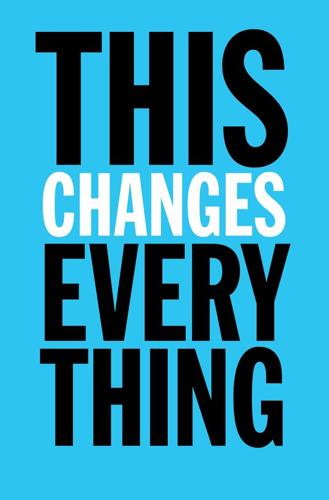
This Changes Everything: Capitalism vs. The Climate
by
Naomi Klein
Published 15 Sep 2014
For the rest of the afternoon, our tense discussions about the ethics of blocking the sun are periodically interrupted by loud cheers coming from next door. The reason for the cheering is, we are told, a corporate secret, but the team from Audi is obviously very happy about something—next season’s models, perhaps, or maybe sales figures. The Royal Society regularly rents out Chicheley Hall for corporate retreats and Downton Abbey–inspired weddings so the fact that these two meetings are taking place cheek-by-jowl in a country mansion is, of course, pure coincidence. Still, separated by nothing more than a thin sliding wall, it’s hard not to feel that the angsty would-be geoengineers and the carefree German car sellers are in conversation with each other—as if, more than anything, the reckless experiments the people in our room are attempting to rationalize are really about allowing the car people in the next room to keep their party going.

The Rough Guide to New York City
by
Rough Guides
Published 21 May 2018
Television Any American will find on TV in New York mostly what they find at home, plus several multilingual stations. Channels 13 and 21 are given over to PBS (Public Broadcasting Service), which has earned the nickname “Purely British Station” for its fondness for British drama series (think Downton Abbey), although it excels at documentaries by the likes of Ken Burns and educational children’s shows. The seventy-plus stations available on cable in most hotel rooms may be a bit more fascinating for foreign travellers; most cable channels are no better than the major networks (ABC, CBS, NBC and Fox), although a few of the specialized channels can be fairly interesting.
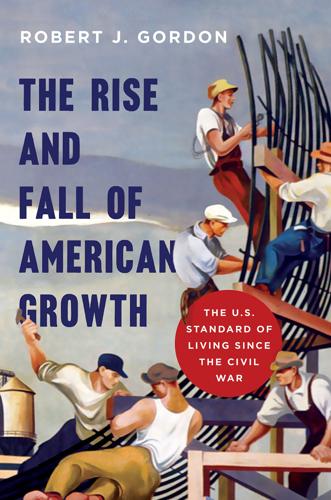
The Rise and Fall of American Growth: The U.S. Standard of Living Since the Civil War (The Princeton Economic History of the Western World)
by
Robert J. Gordon
Published 12 Jan 2016
The small percentage of women who entered the labor market found themselves cordoned off into female occupations, working to manufacture apparel or as clerks, nurses, or school teachers. They were usually paid half of male wages. Employment in the market was more common for younger women who had not yet married, and this employment was primarily in domestic service, which occupied fully 8 percent of the labor force. This world of Upstairs, Downstairs and Downton Abbey created for many women jobs that were not dangerous as male blue-collar jobs but shared with them the unforgiving discipline of fixed and long hours of work and daily rites of subservience. The chapter traces how working conditions improved over time along multiple dimensions. The share of farm workers declined, hours of manufacturing workers declined, and workforce discipline became less tyrannical as workers protested and as the endless supply of immigrants was cut off by restrictive quotas in the early 1920s.
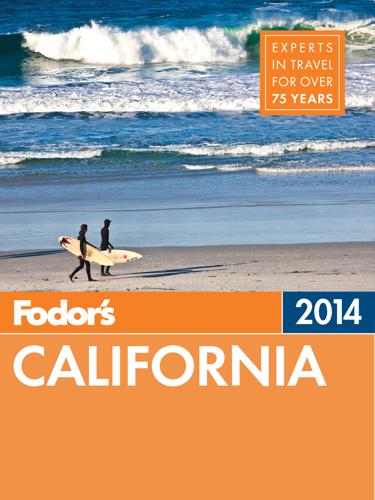
Fodor's California 2014
by
Fodor's
Published 5 Nov 2013
It’s easy to stroll this area on foot, stopping into big-name luxury jewelers and department stores such as Barneys New York and Cartier. Beverly Hills All Saints Spitalfields. The British store recently invaded Robertson Boulevard, bringing with it a rock and roll edge mixed with a dash of Downton Abbey. Look for furry vests, tough shoes, skull embellishments, and denim and khaki skirts, which, worn correctly, let them know you’re with the band. | 100 N. Robertson Blvd., Beverly Hills | 90048 | 310–432-8484 | www.us.allsaints.com. Beverly Center. This is one of the more traditional malls you can find in L.A., with eight levels of stores, including Macy’s, Bloomingdale’s, and the newer addition: luxury retailer Henri Bendel.